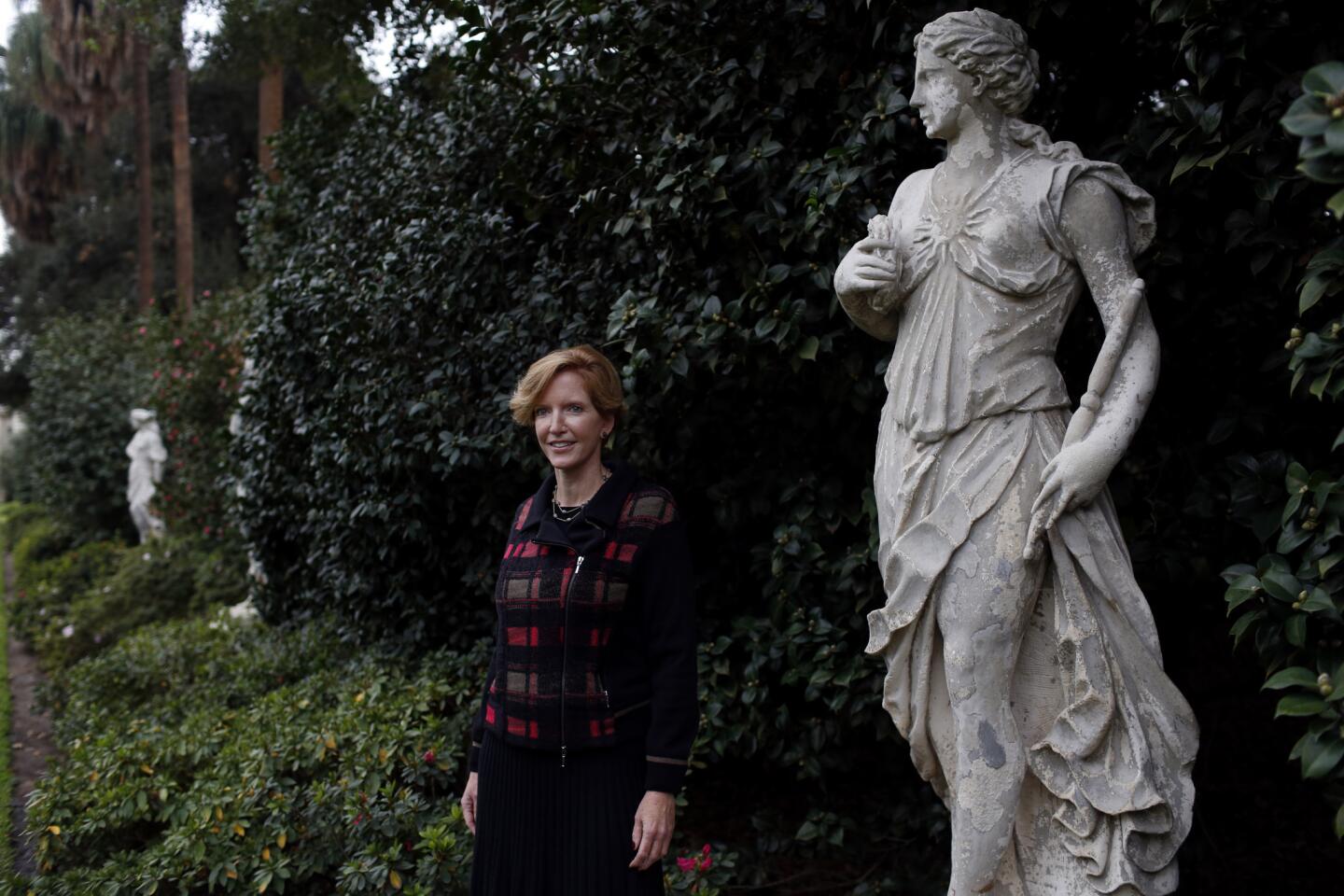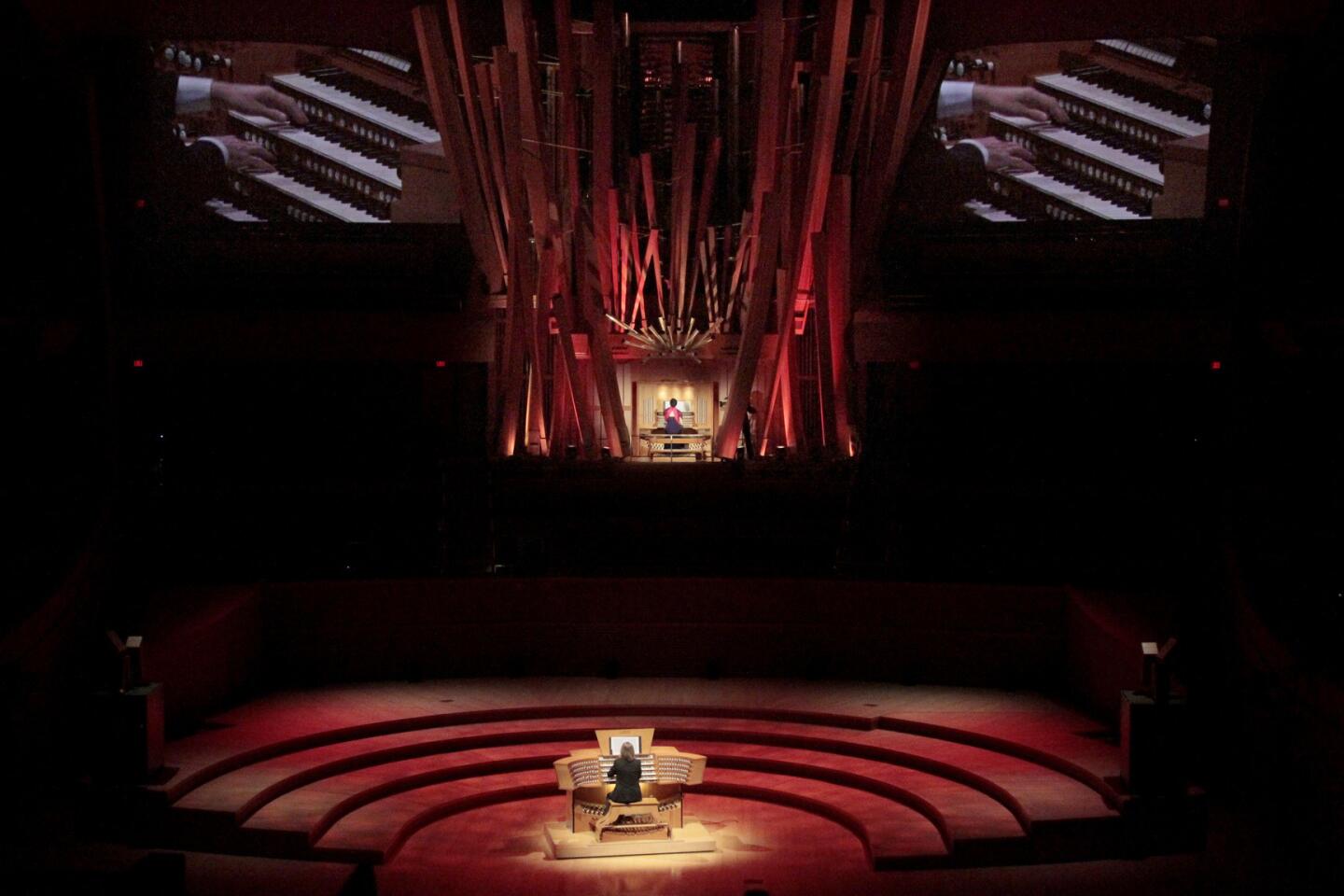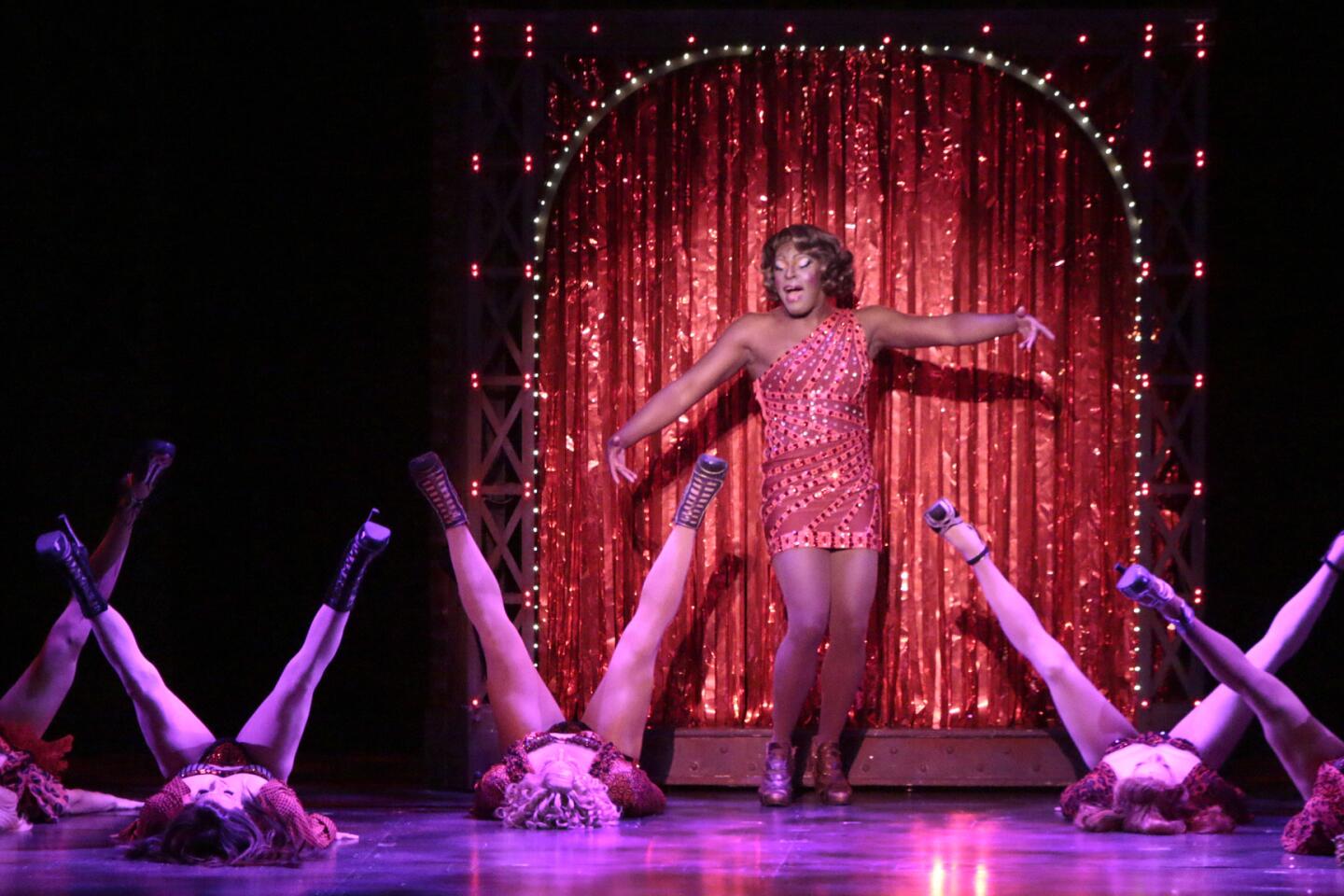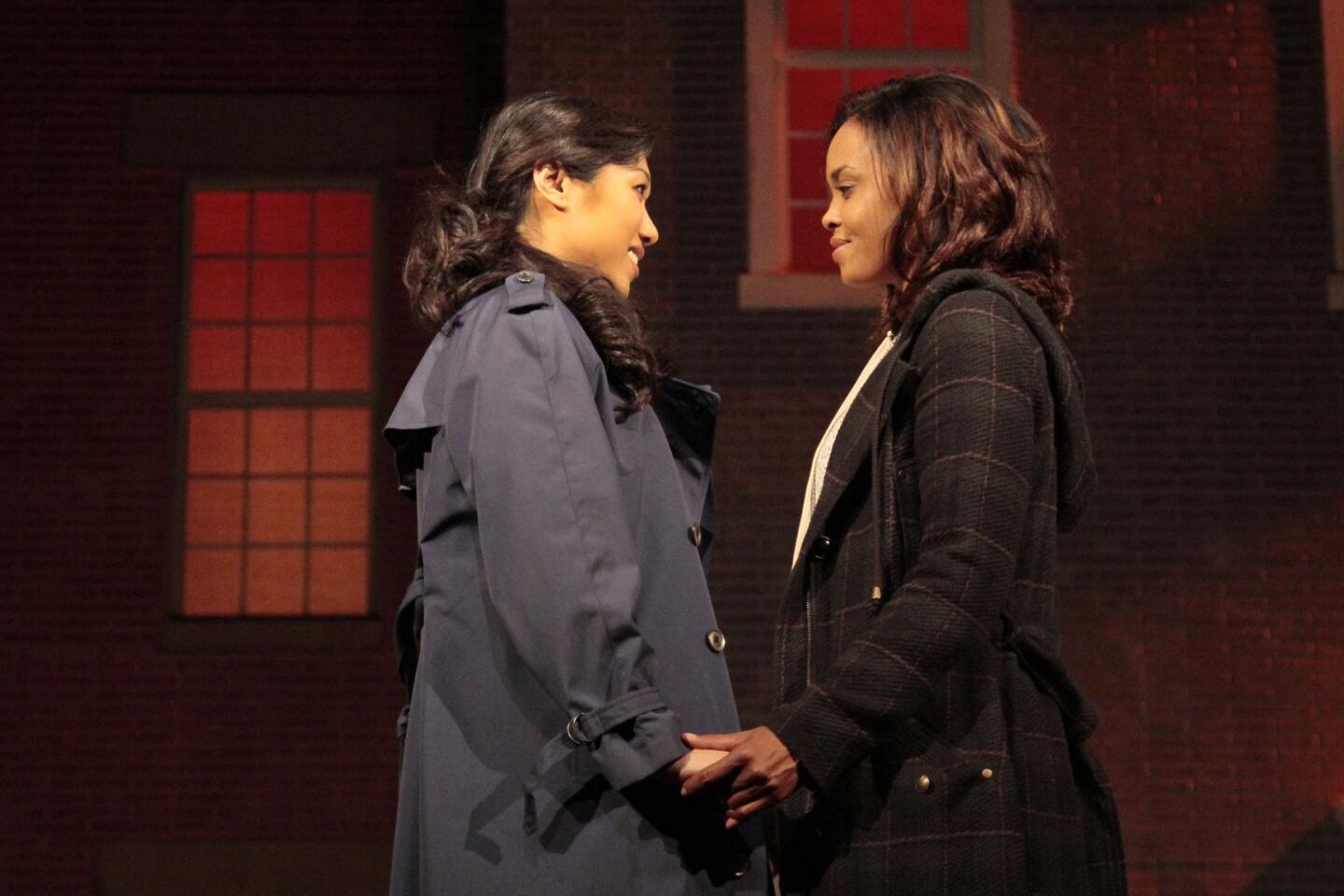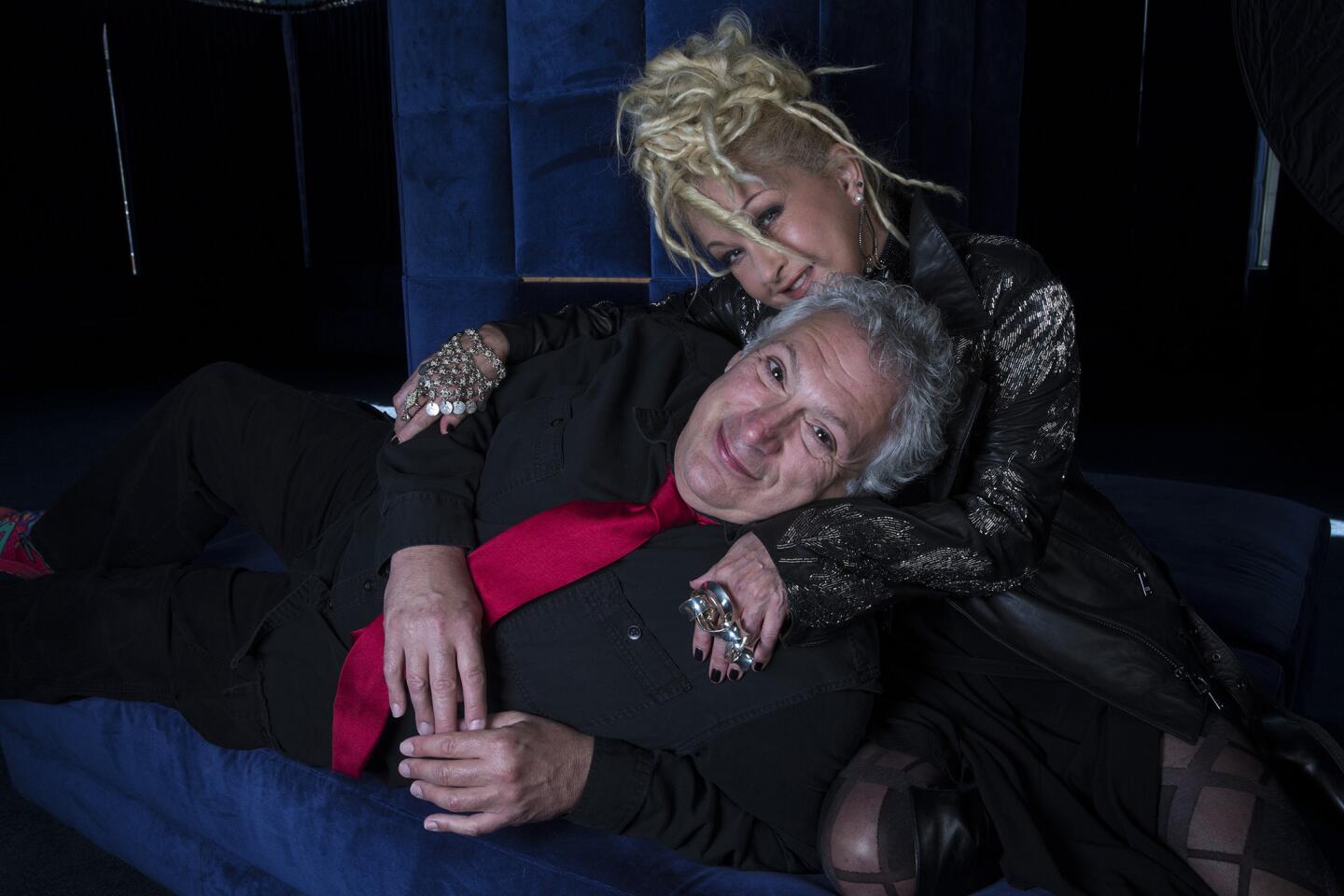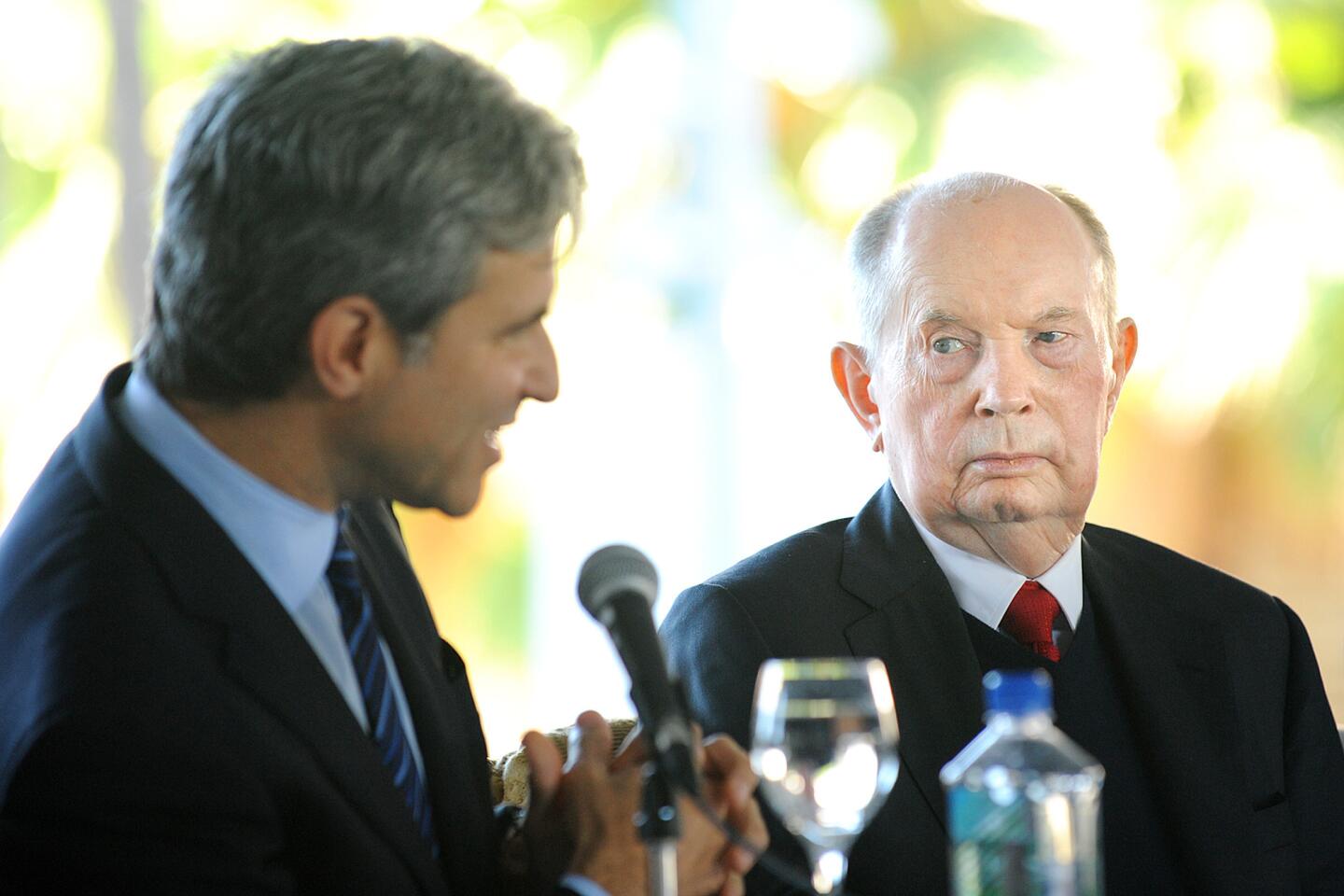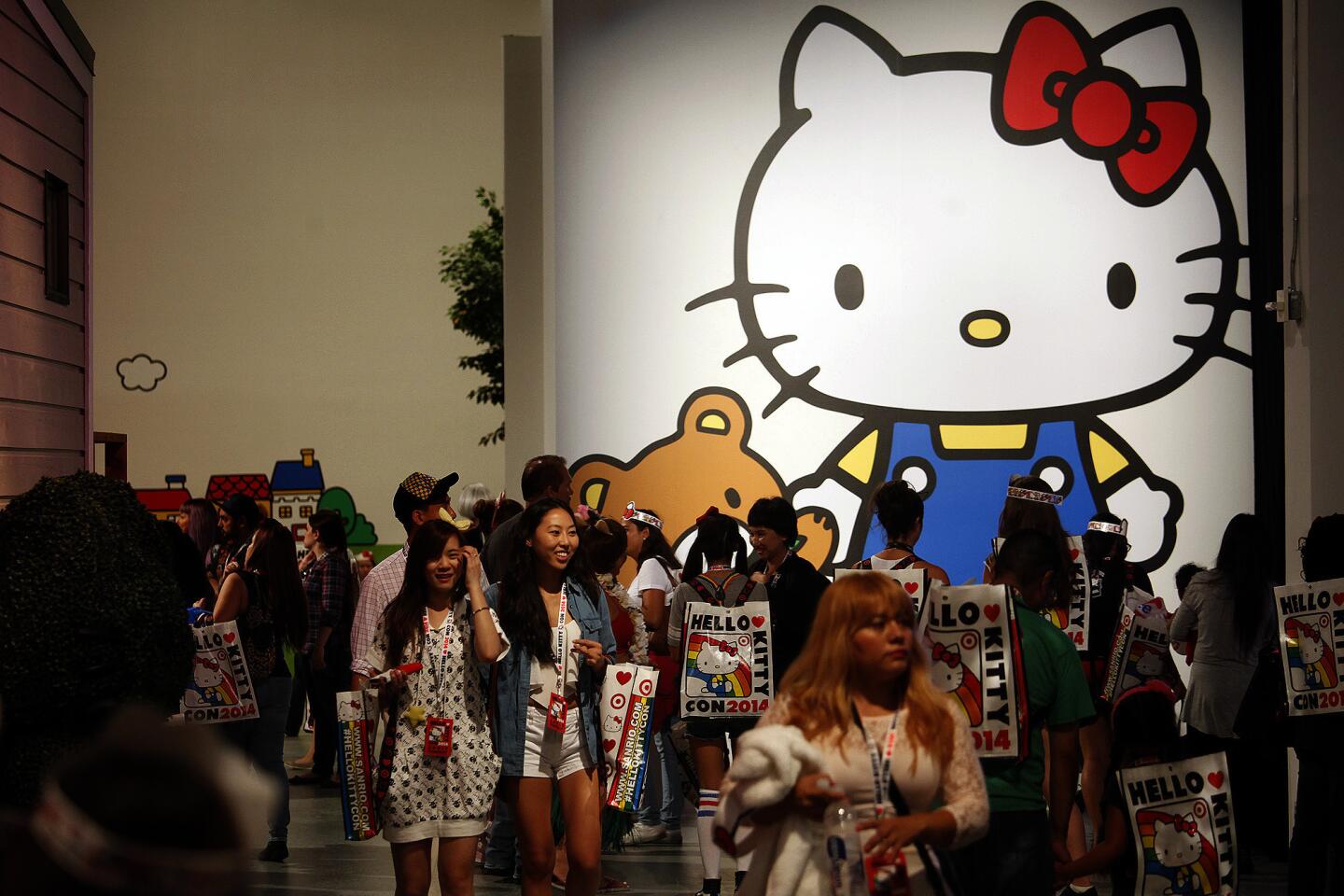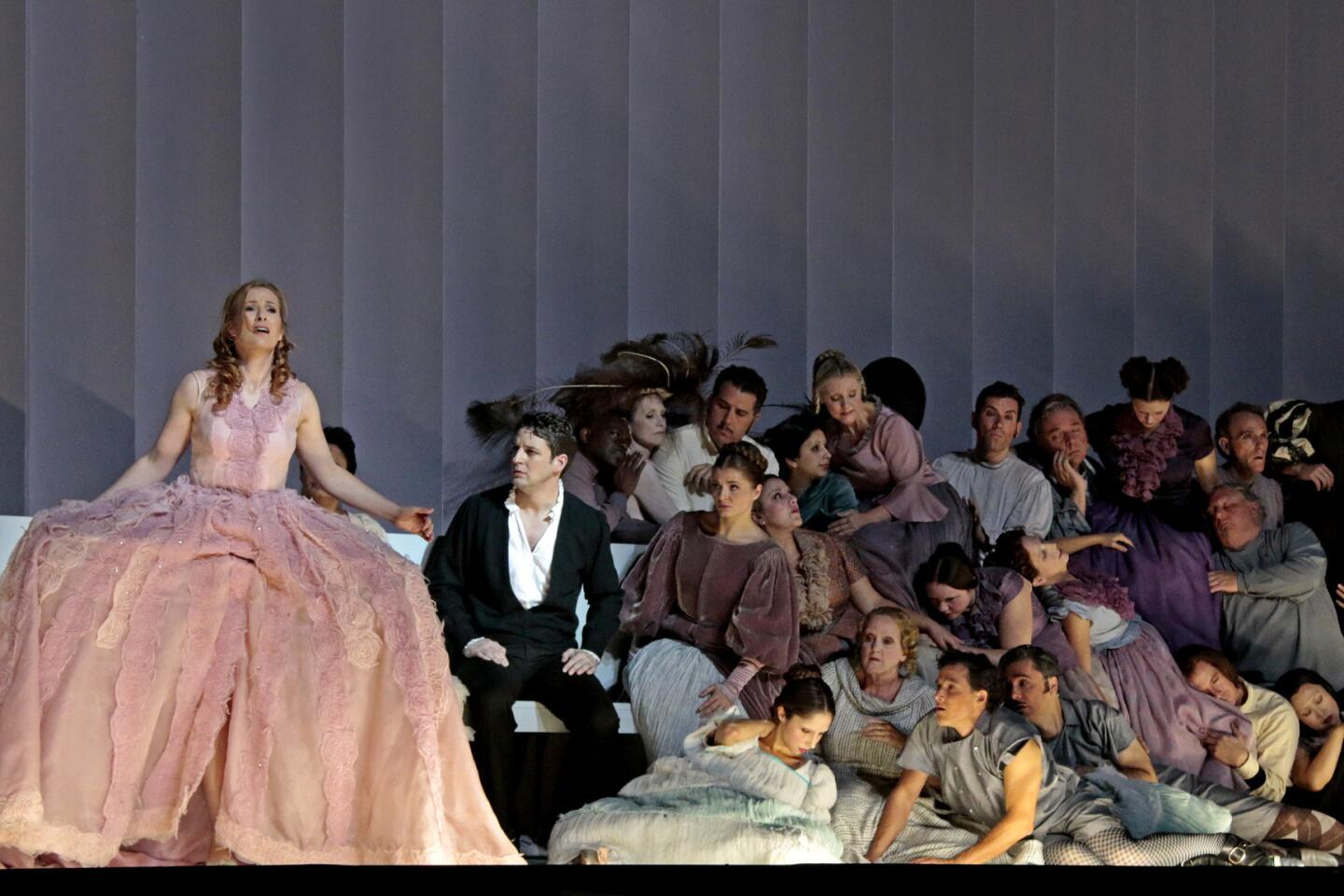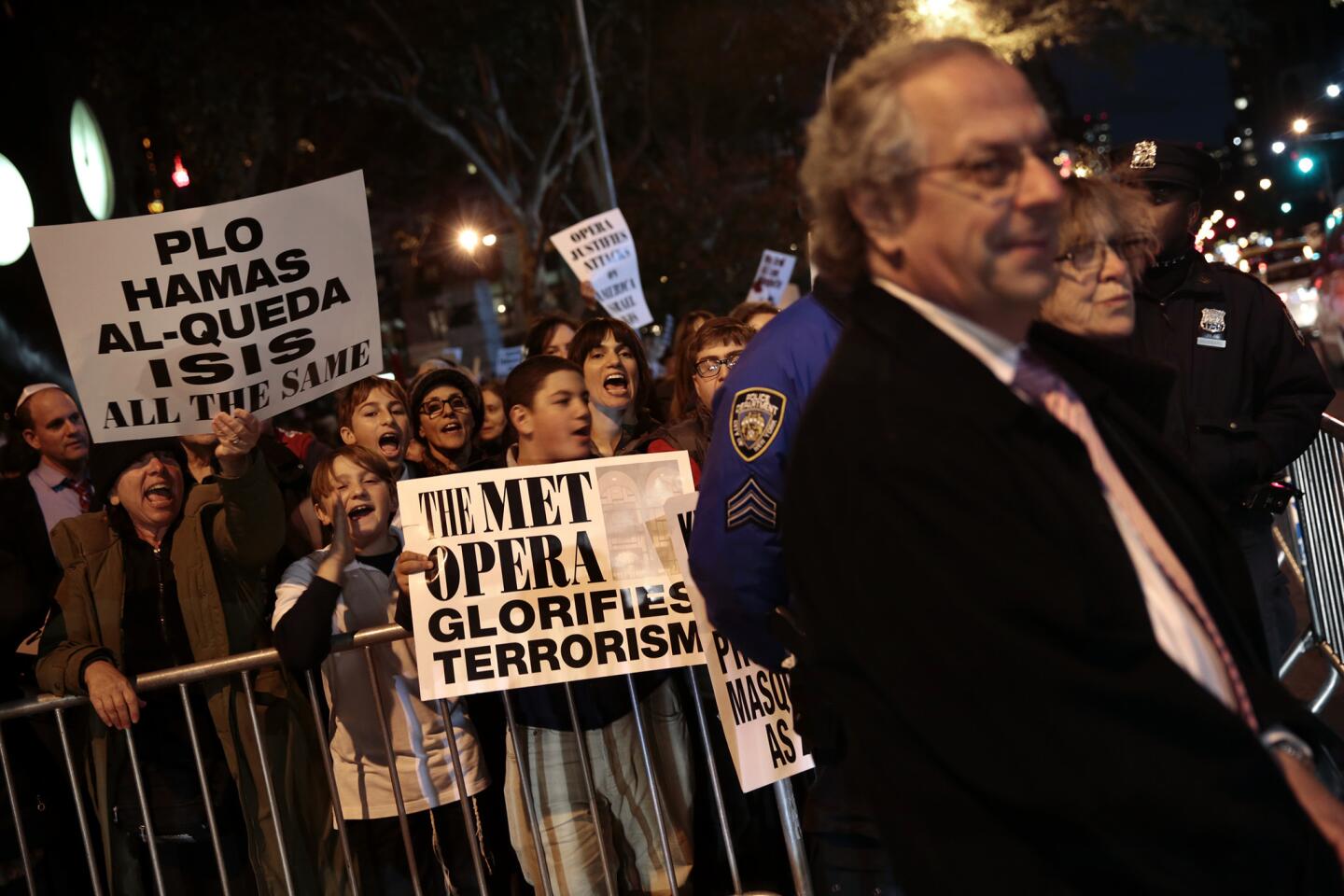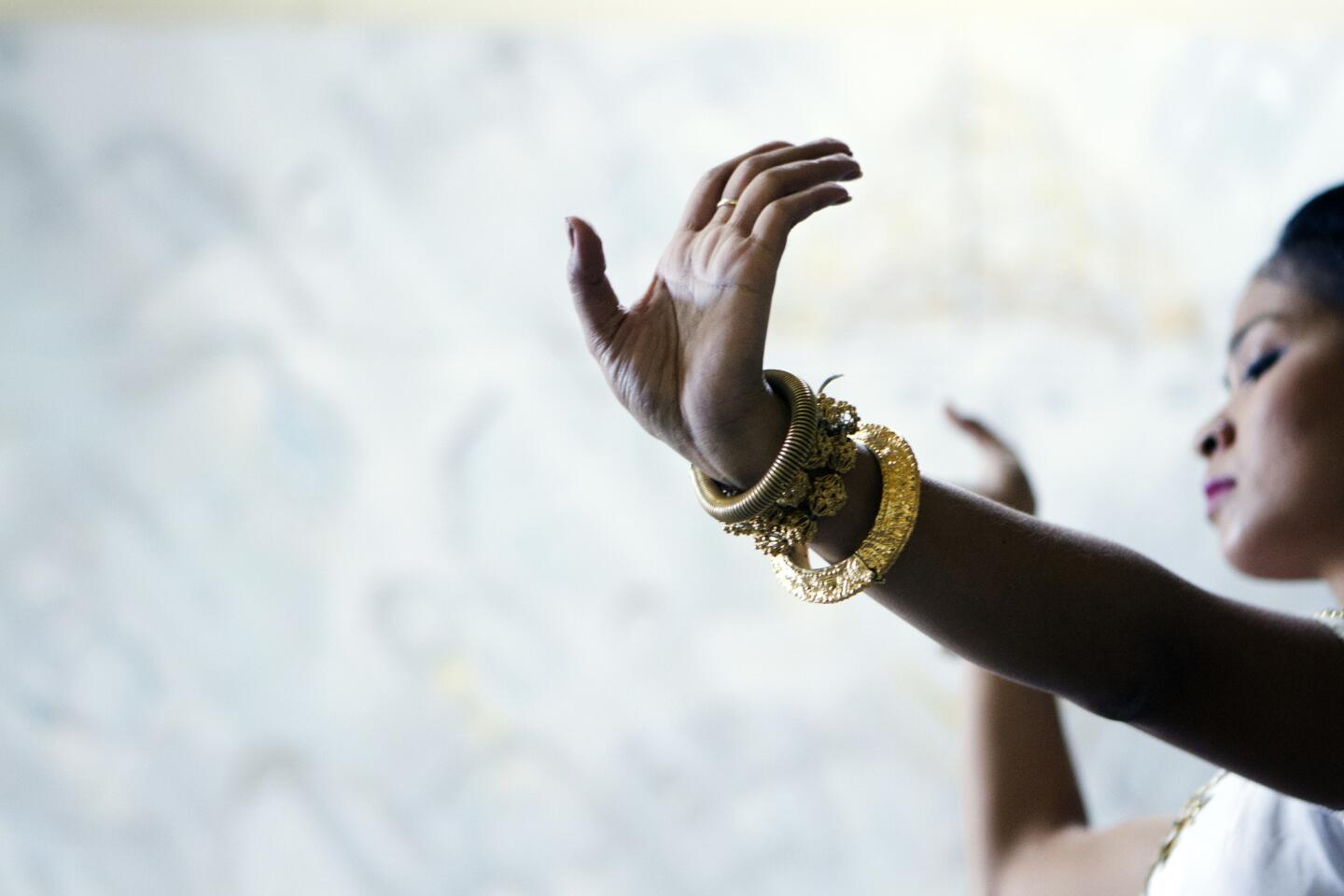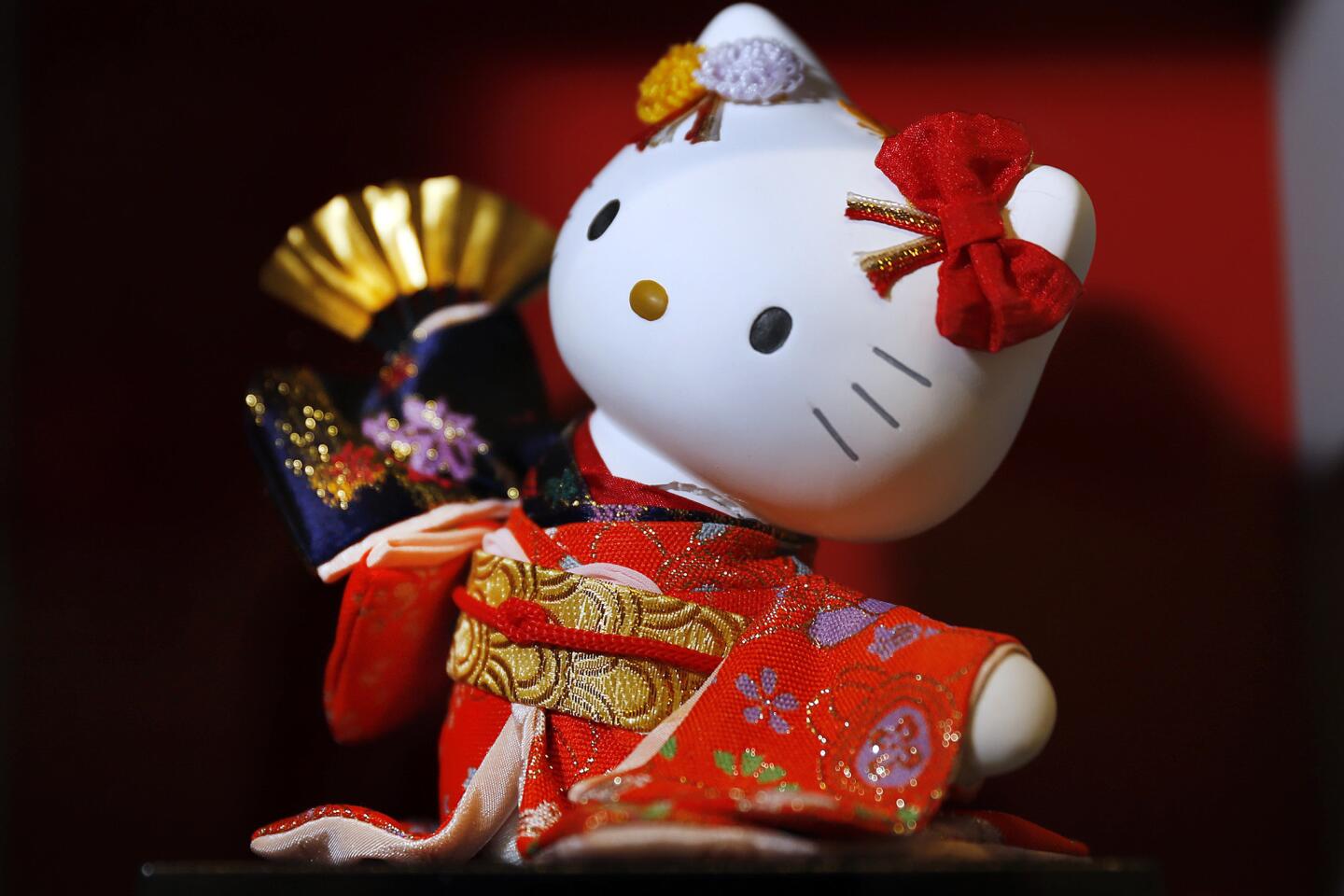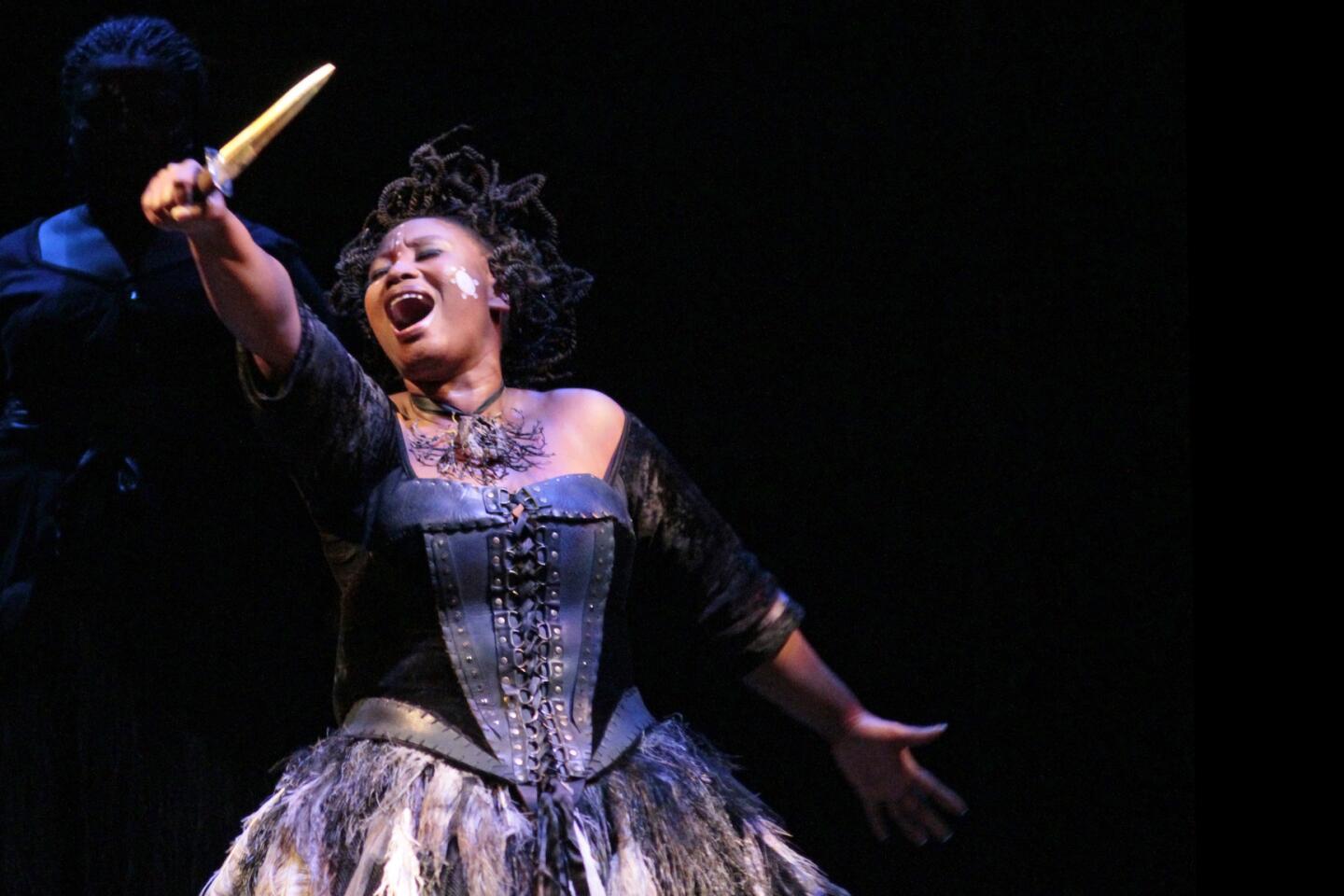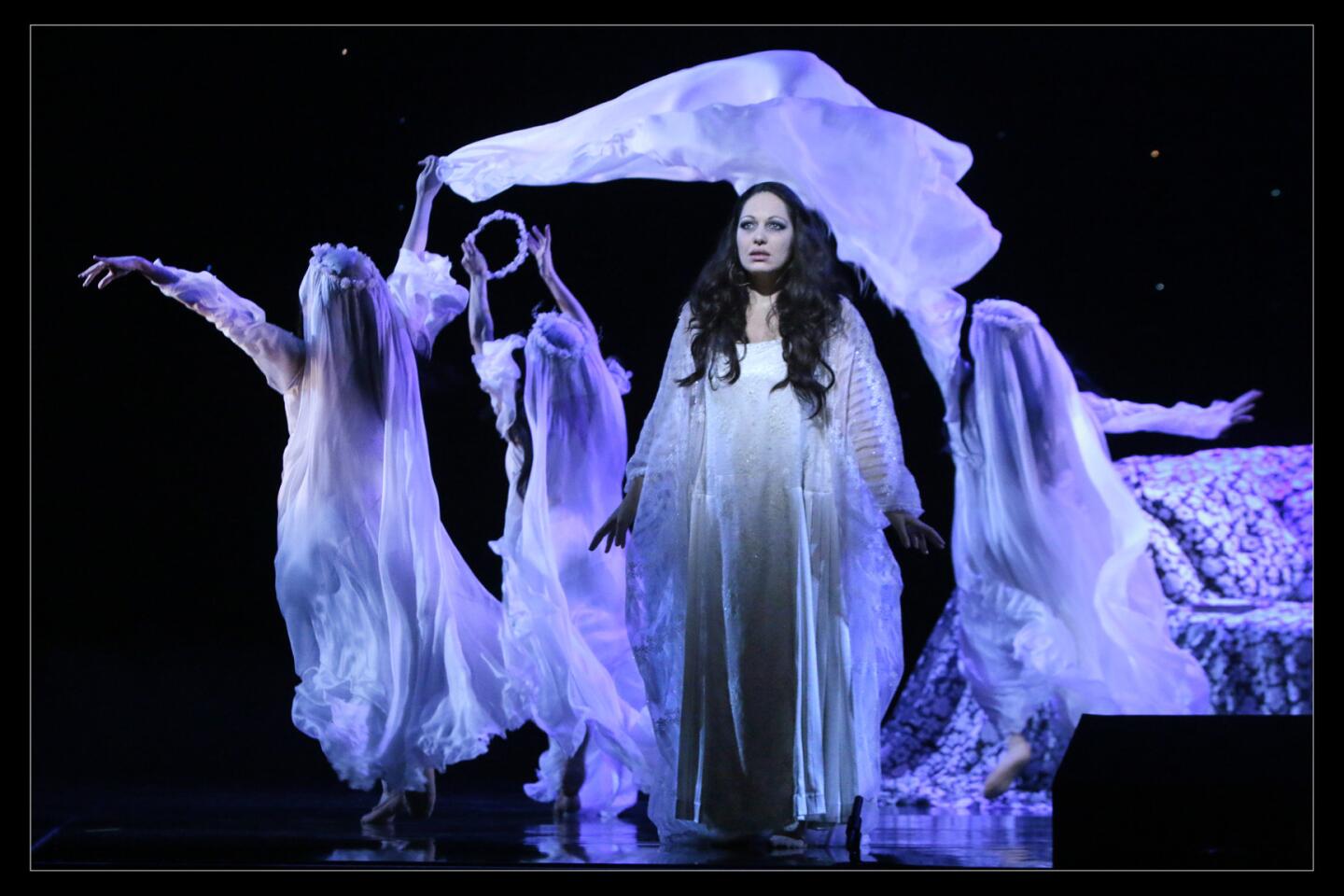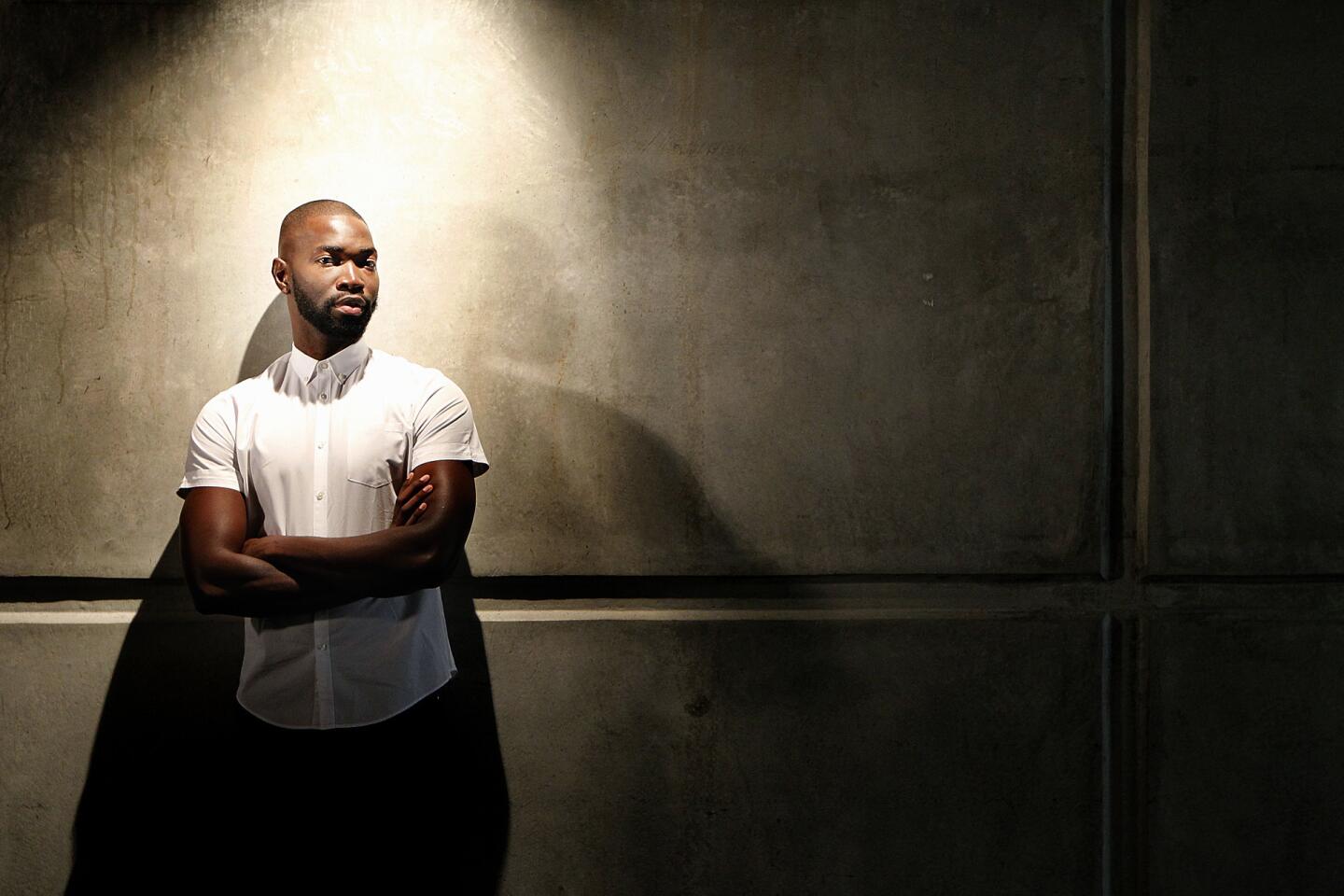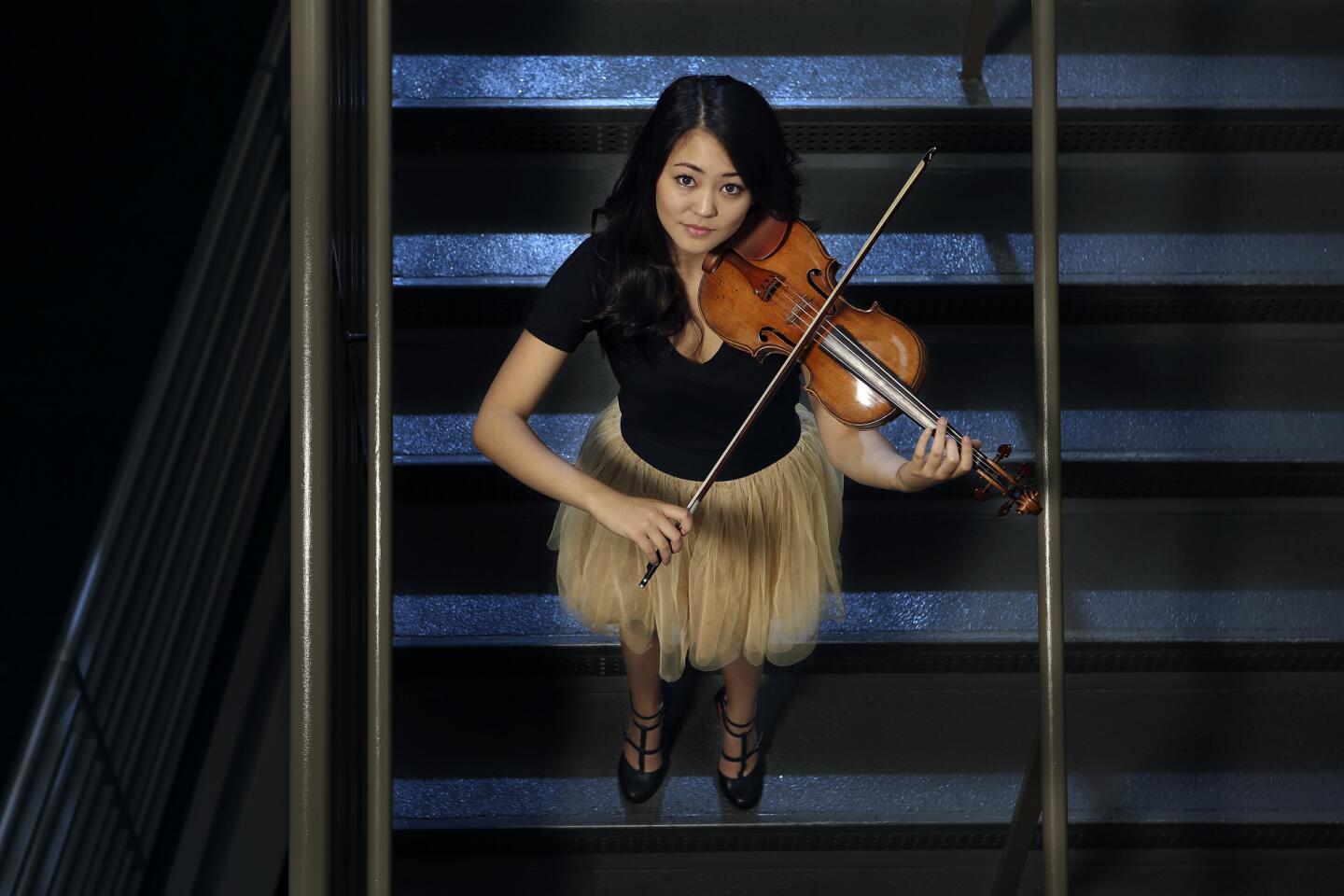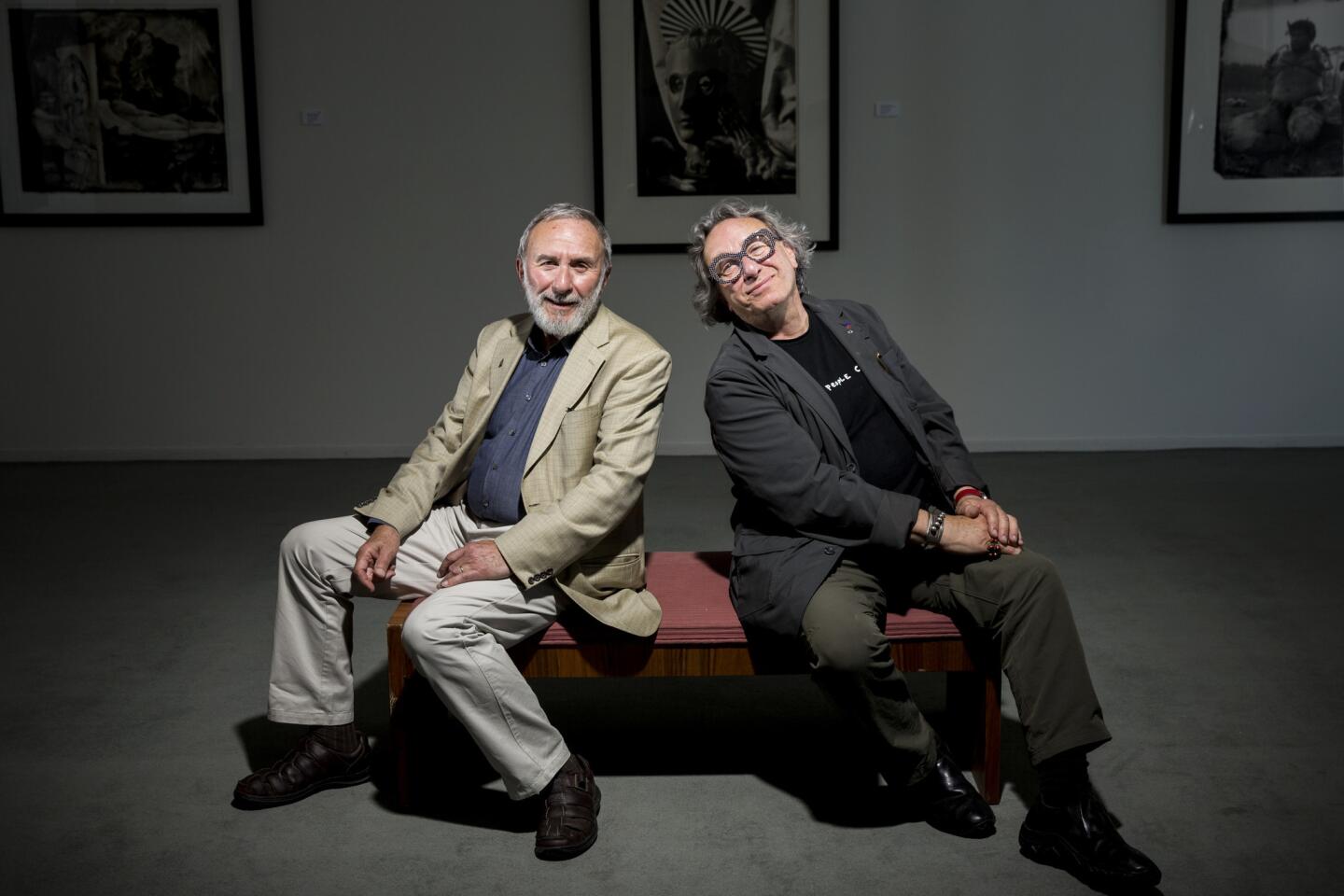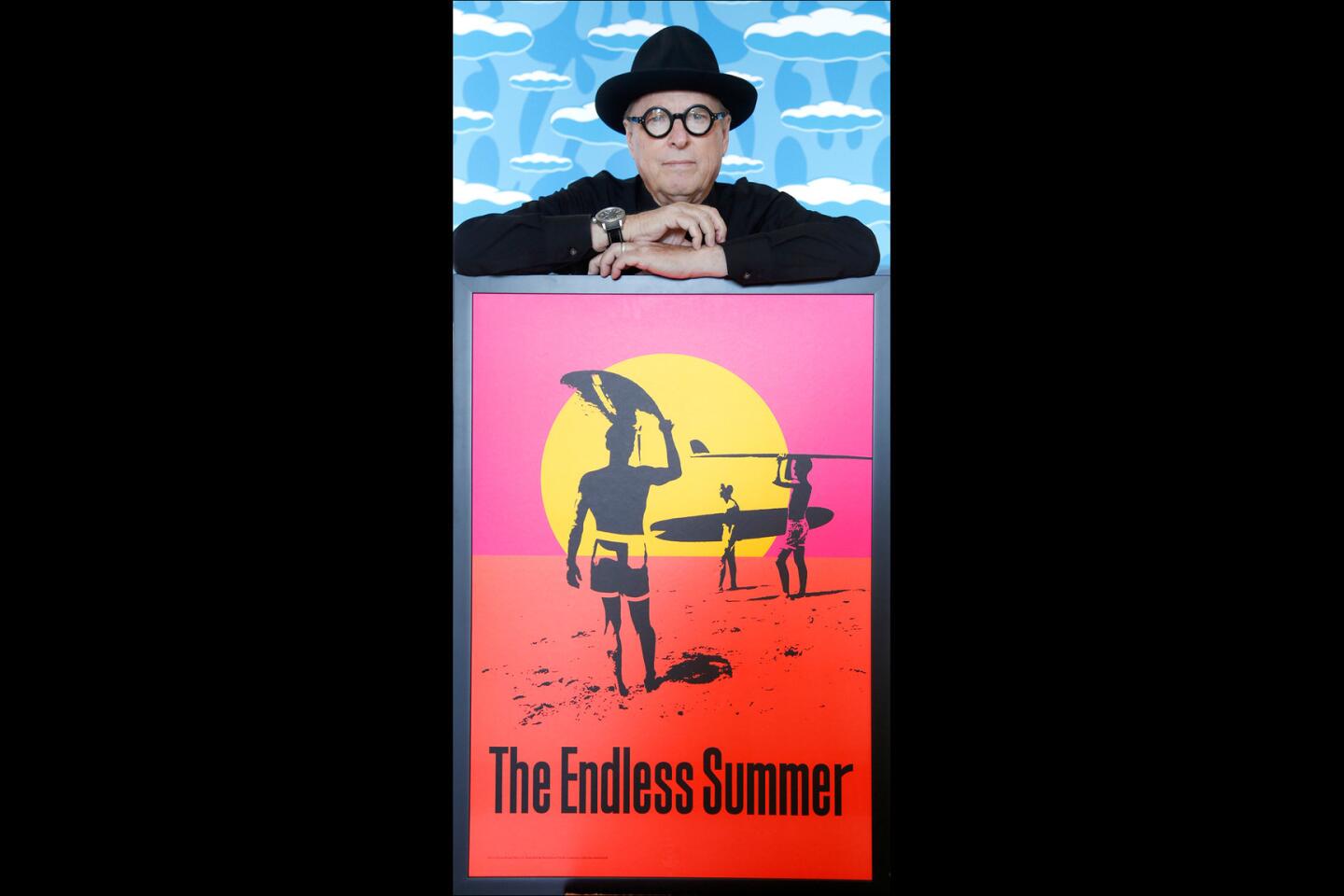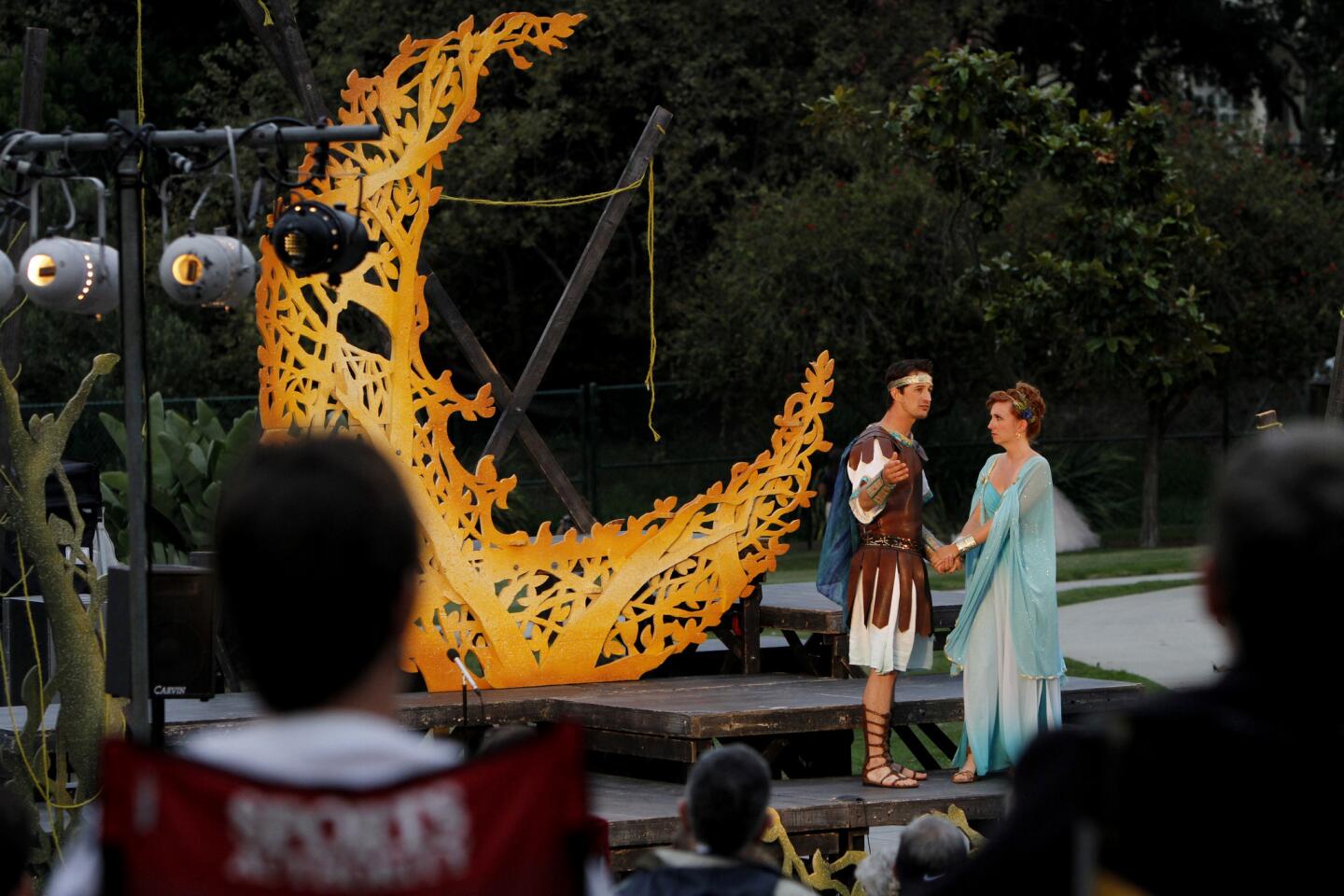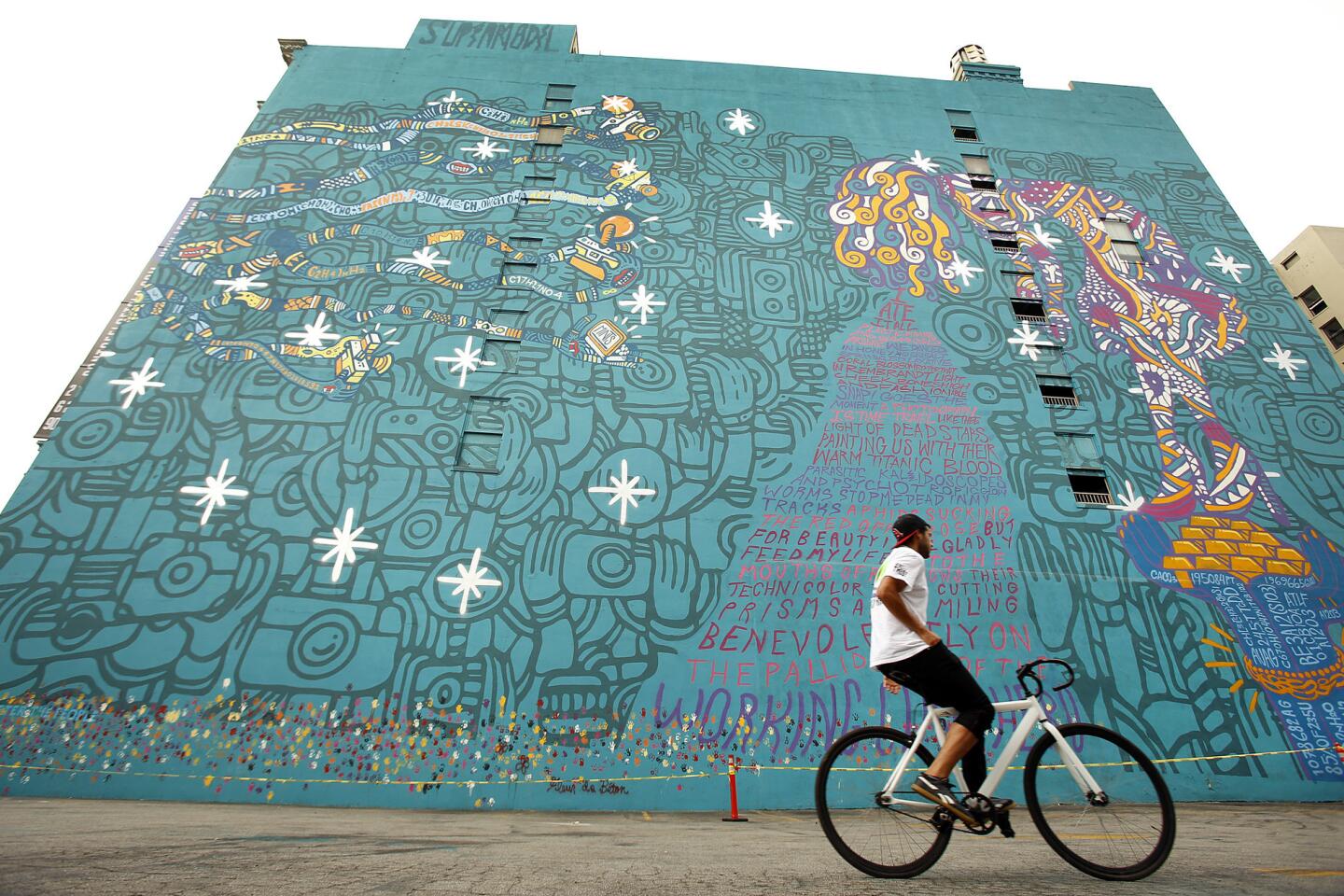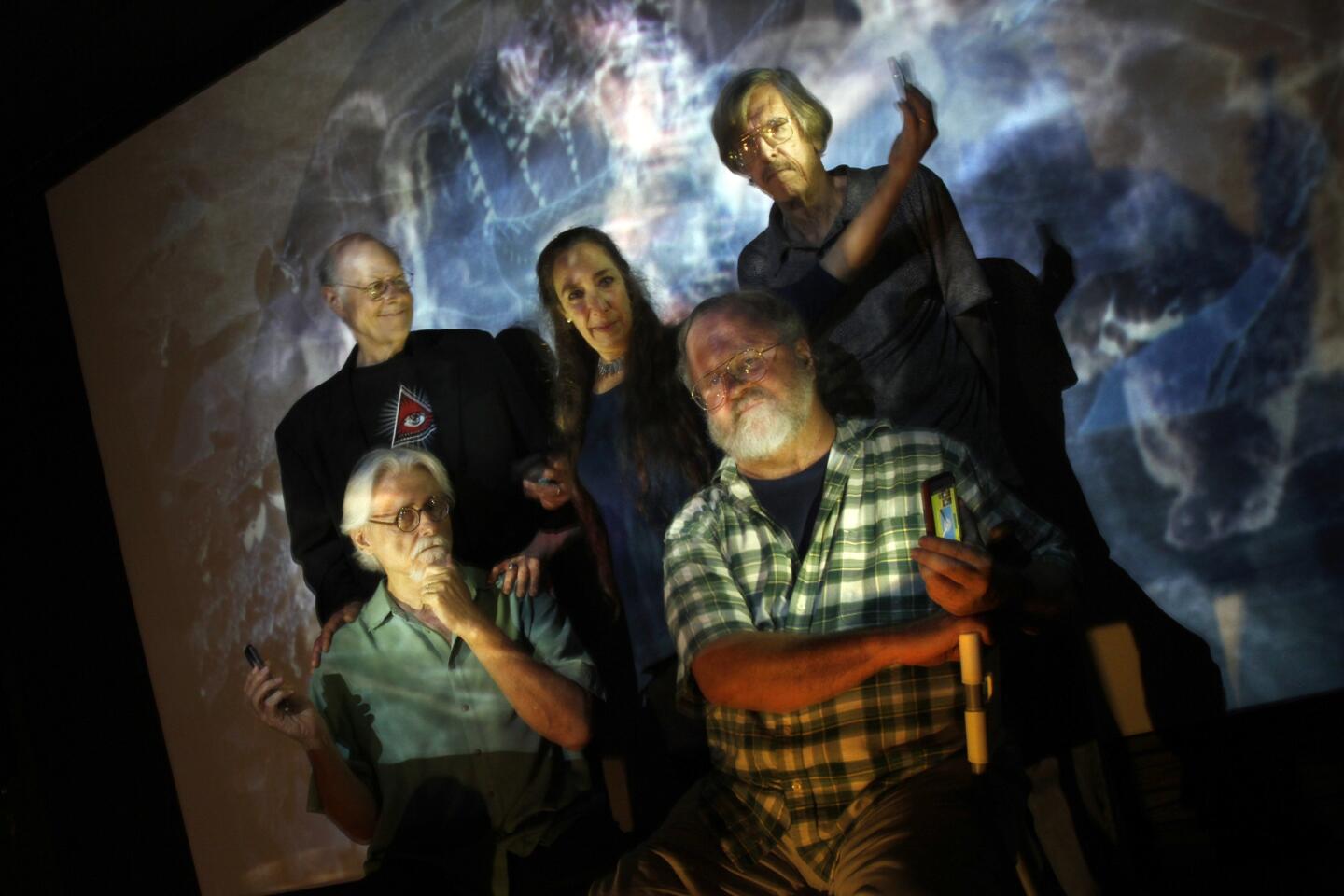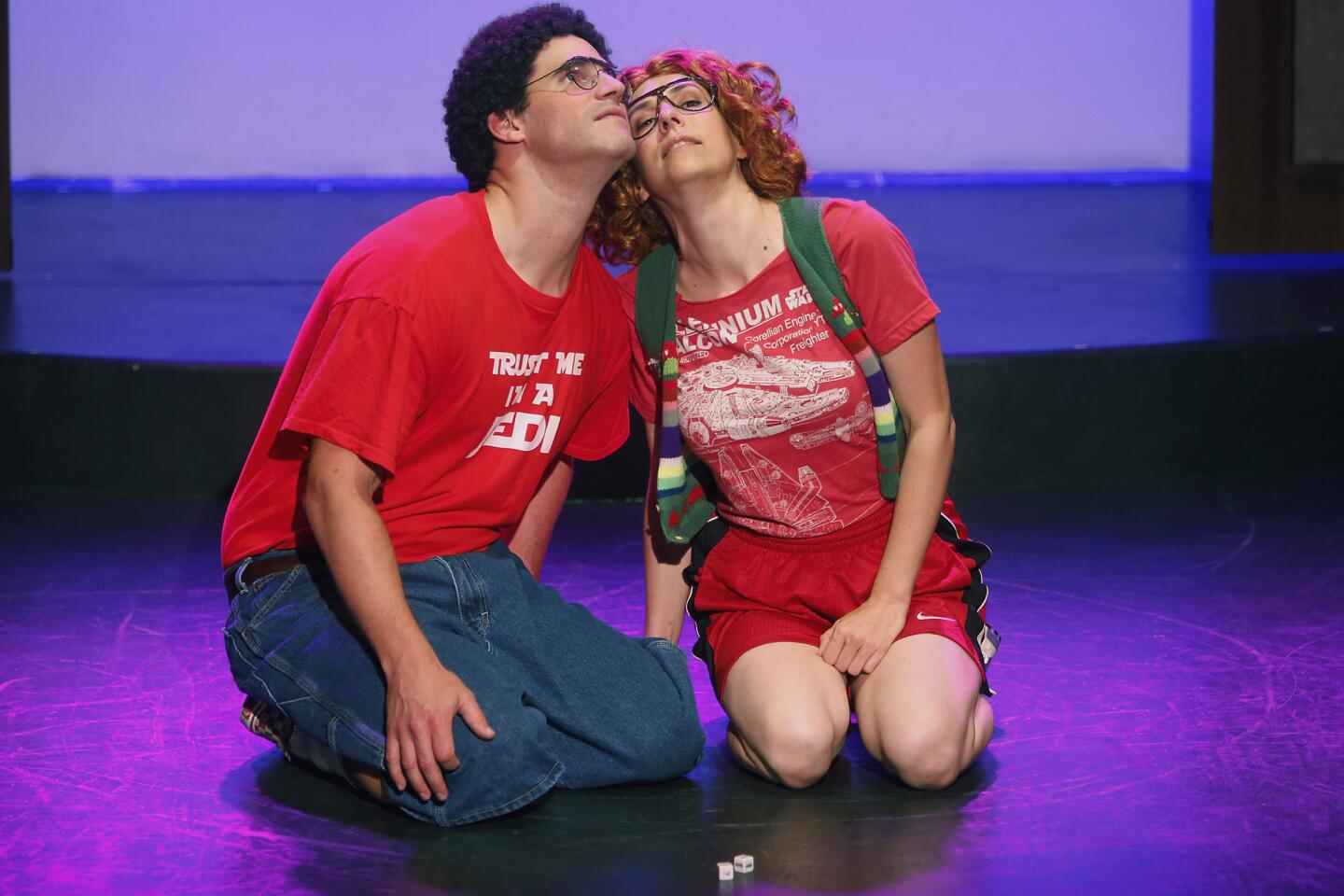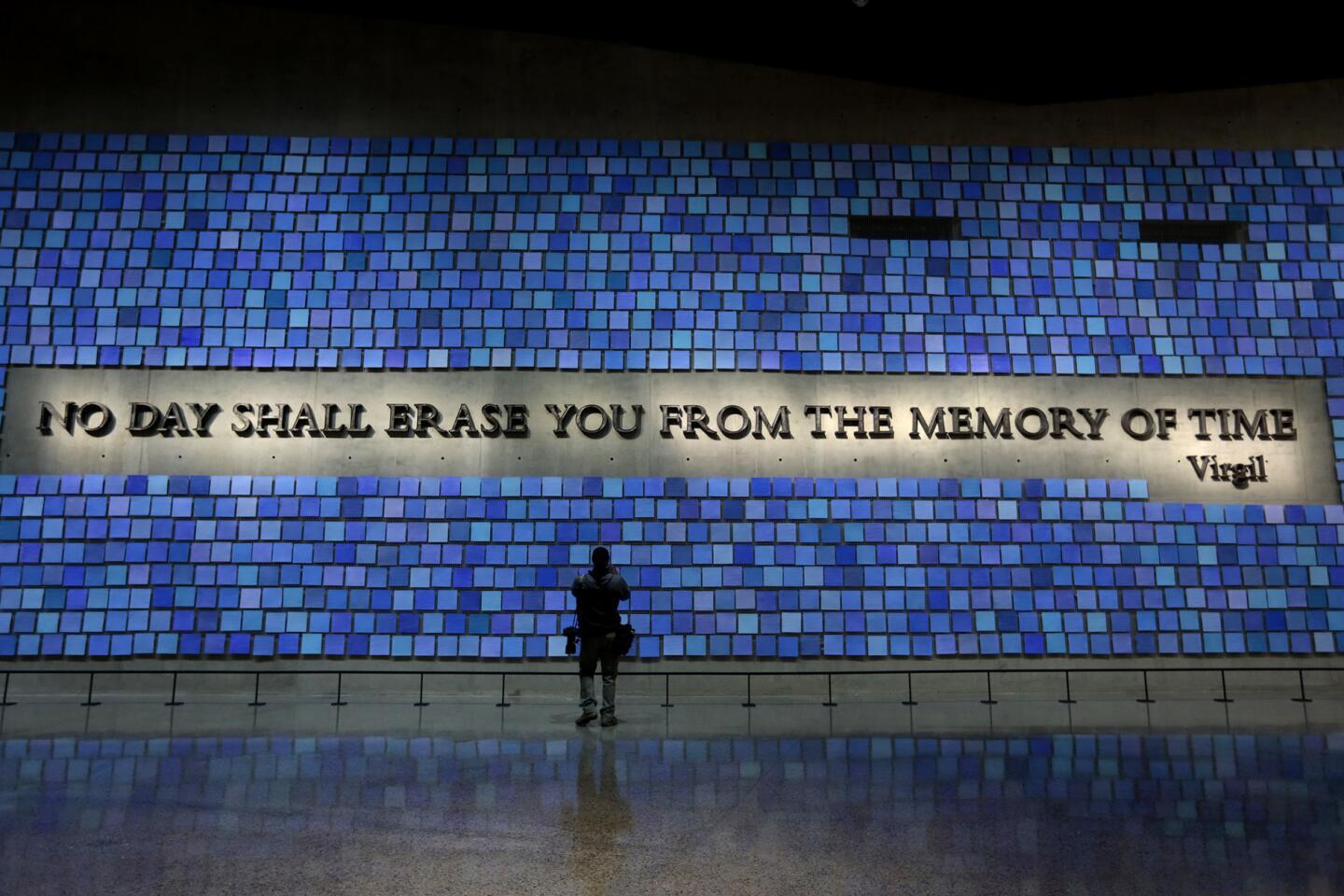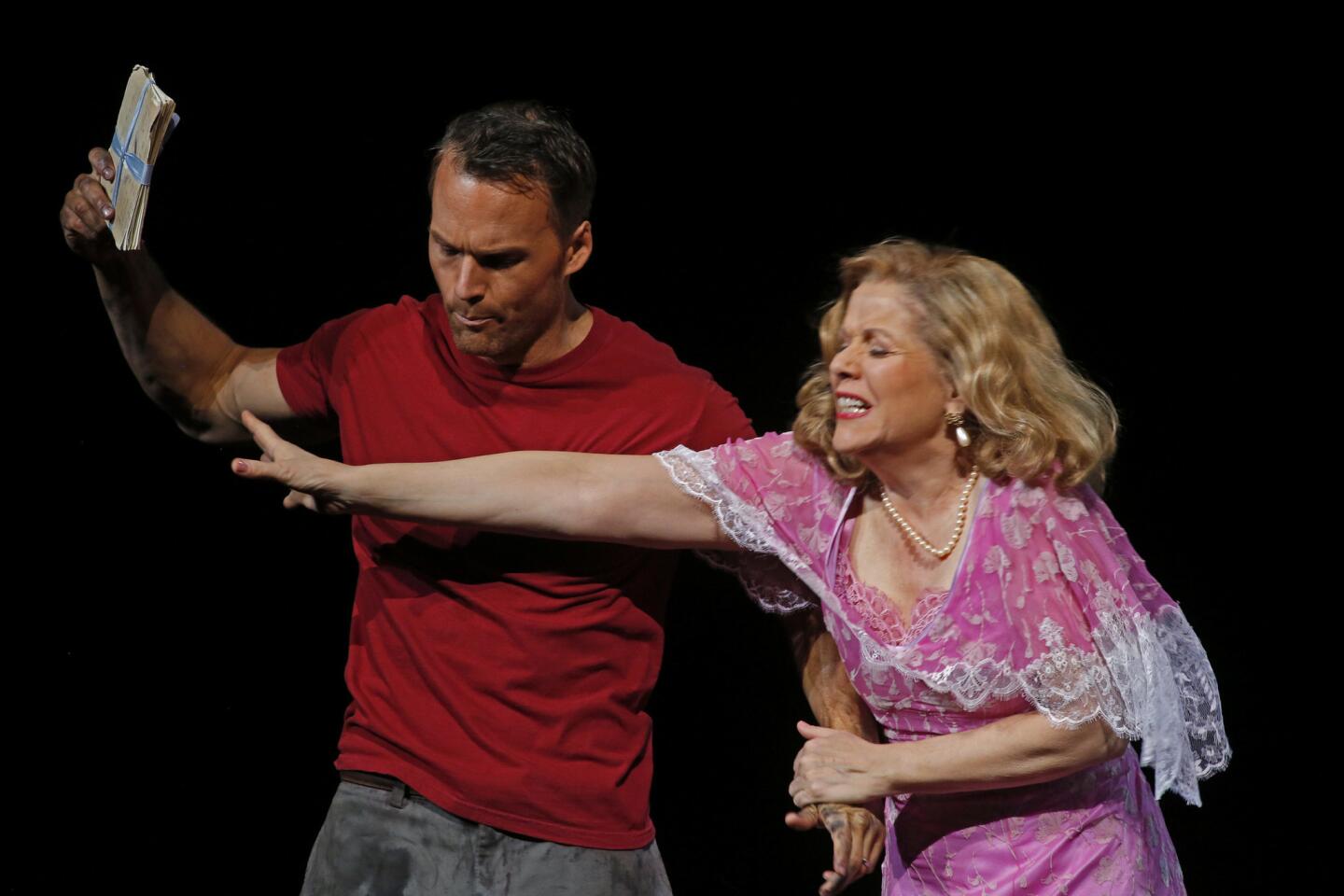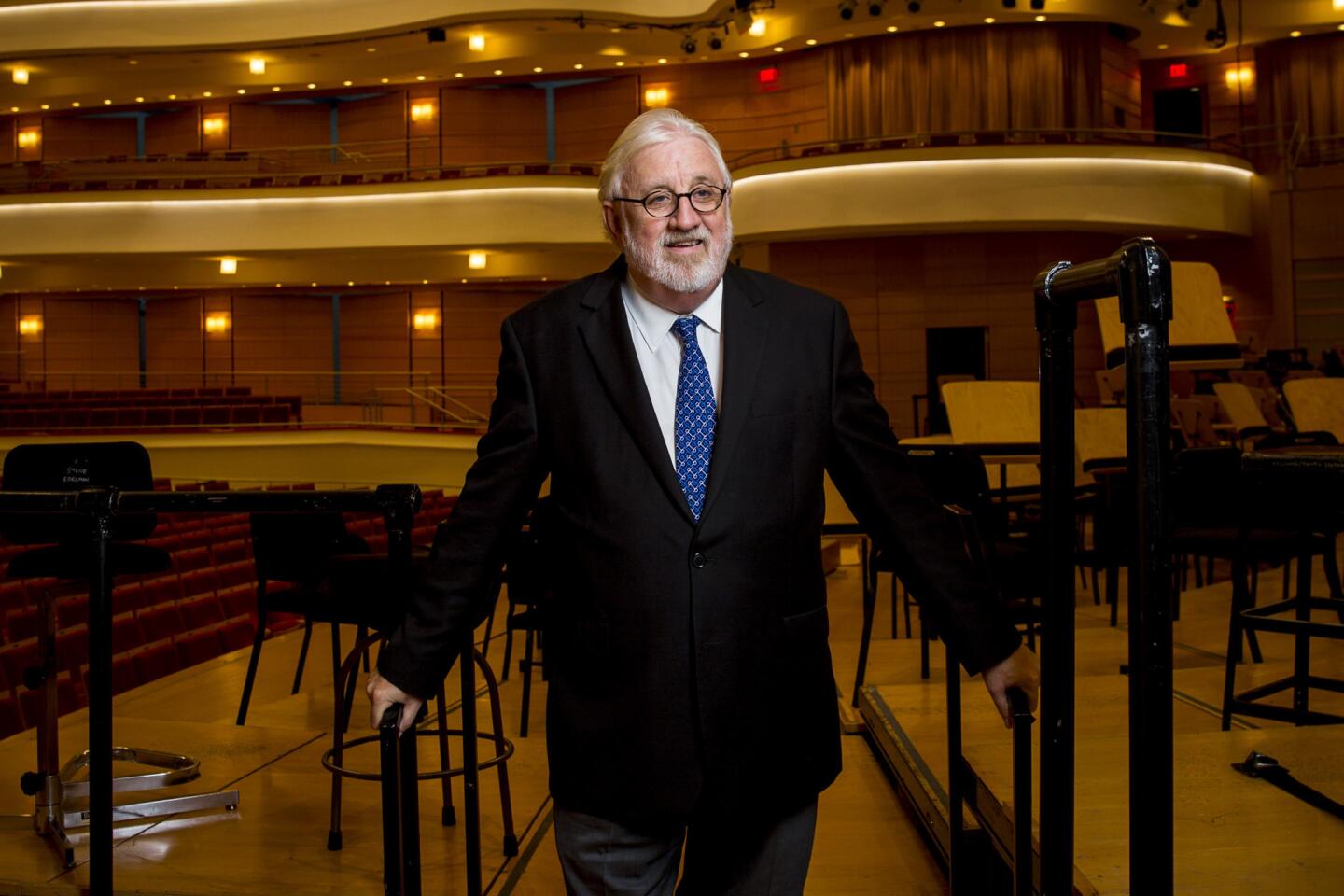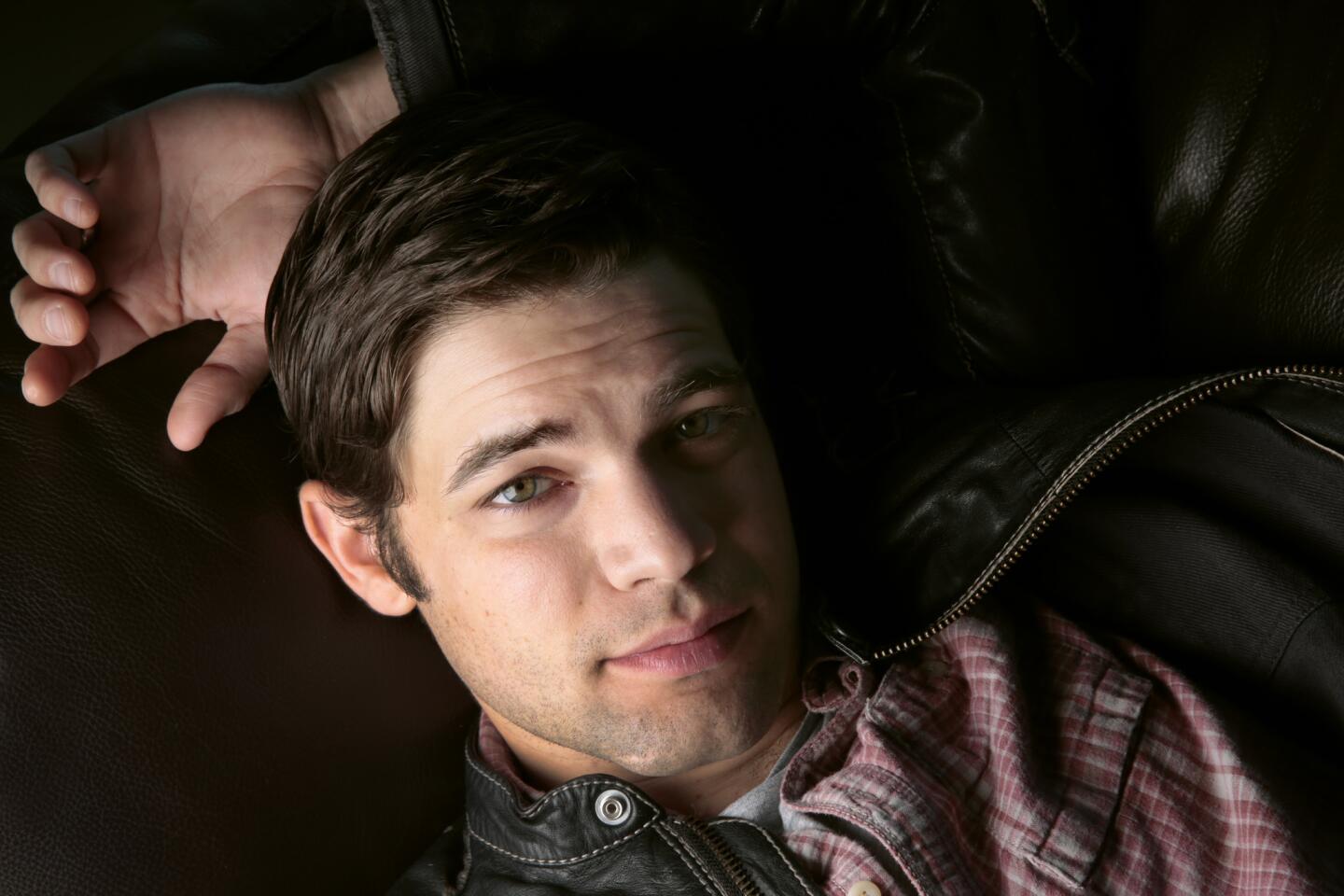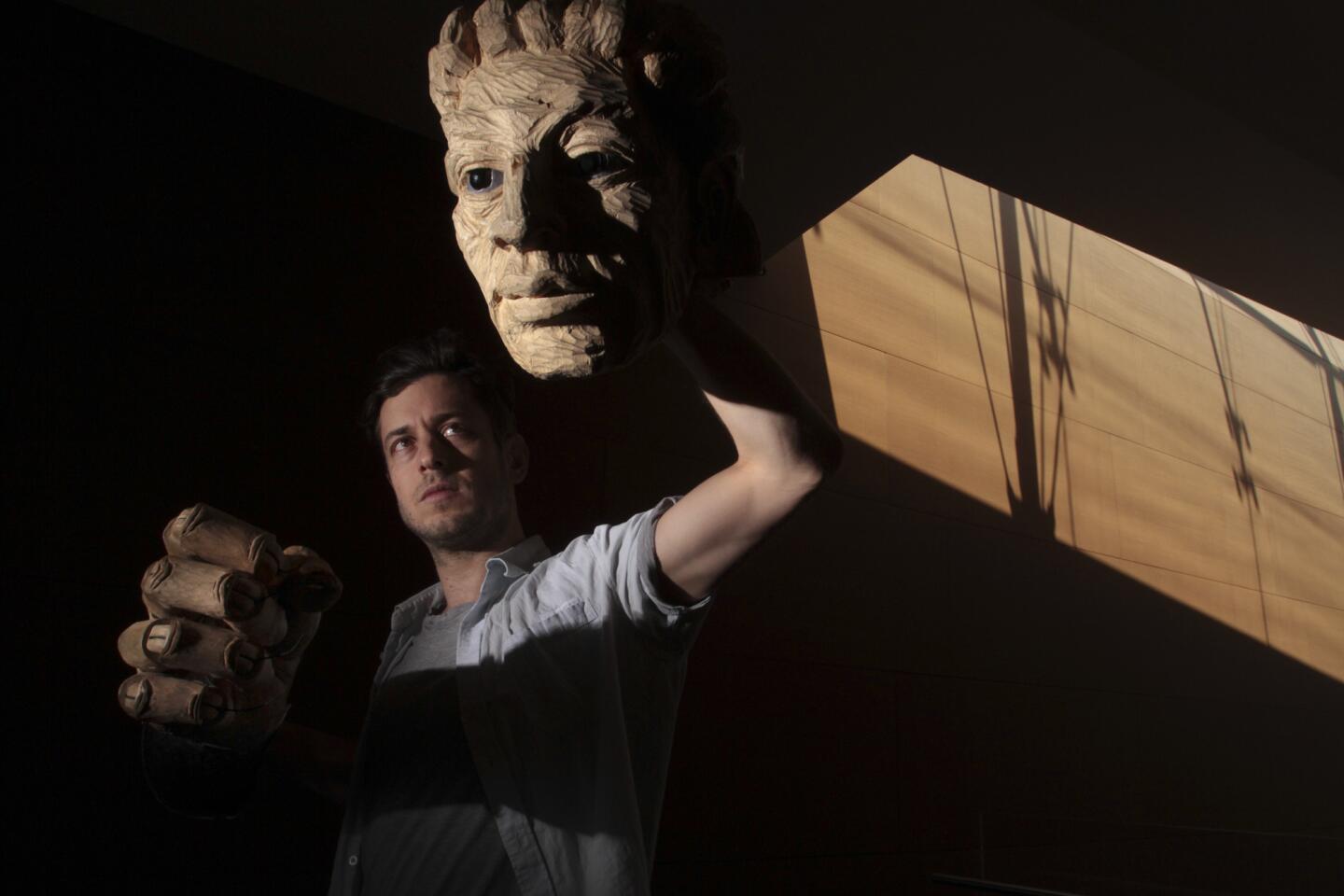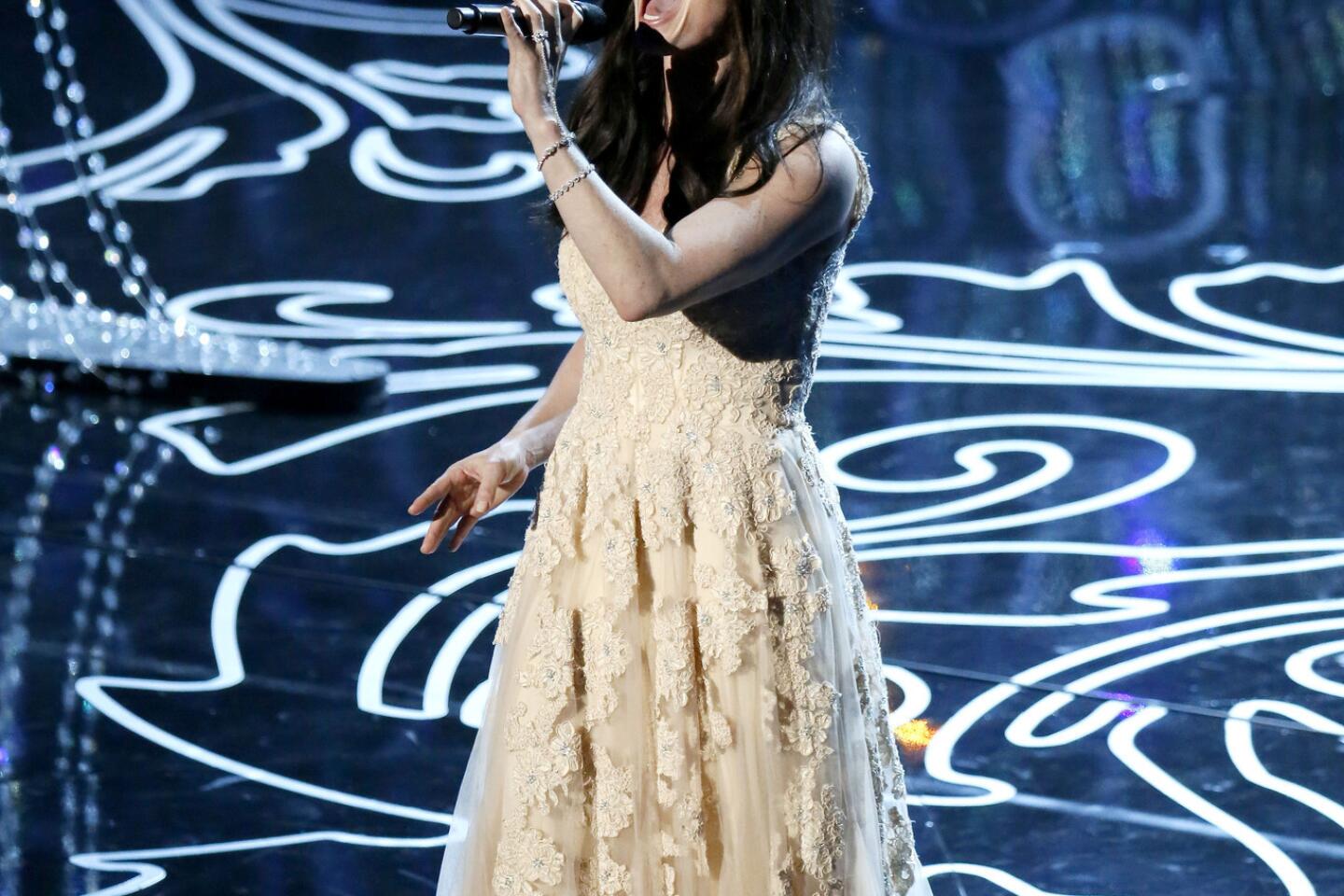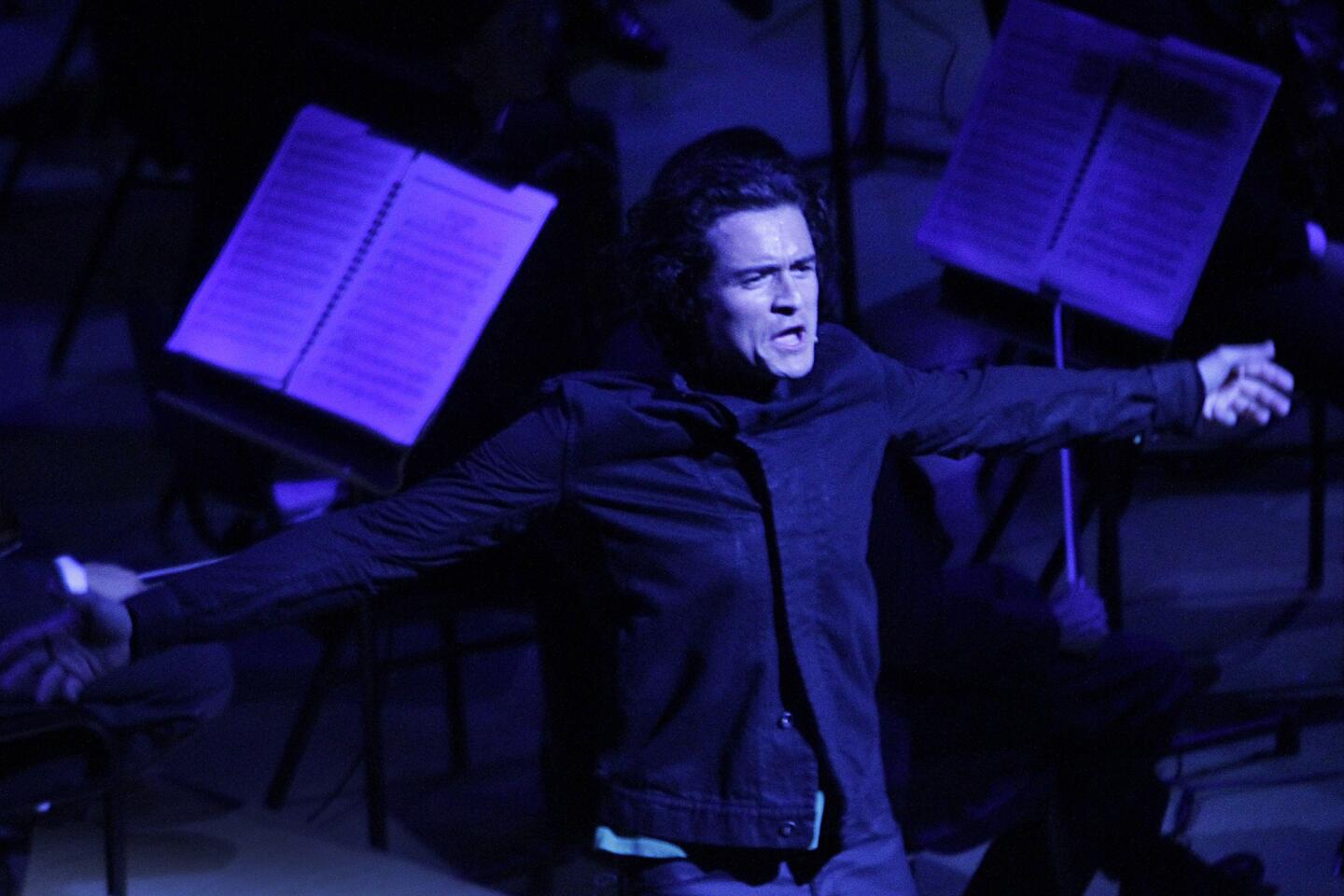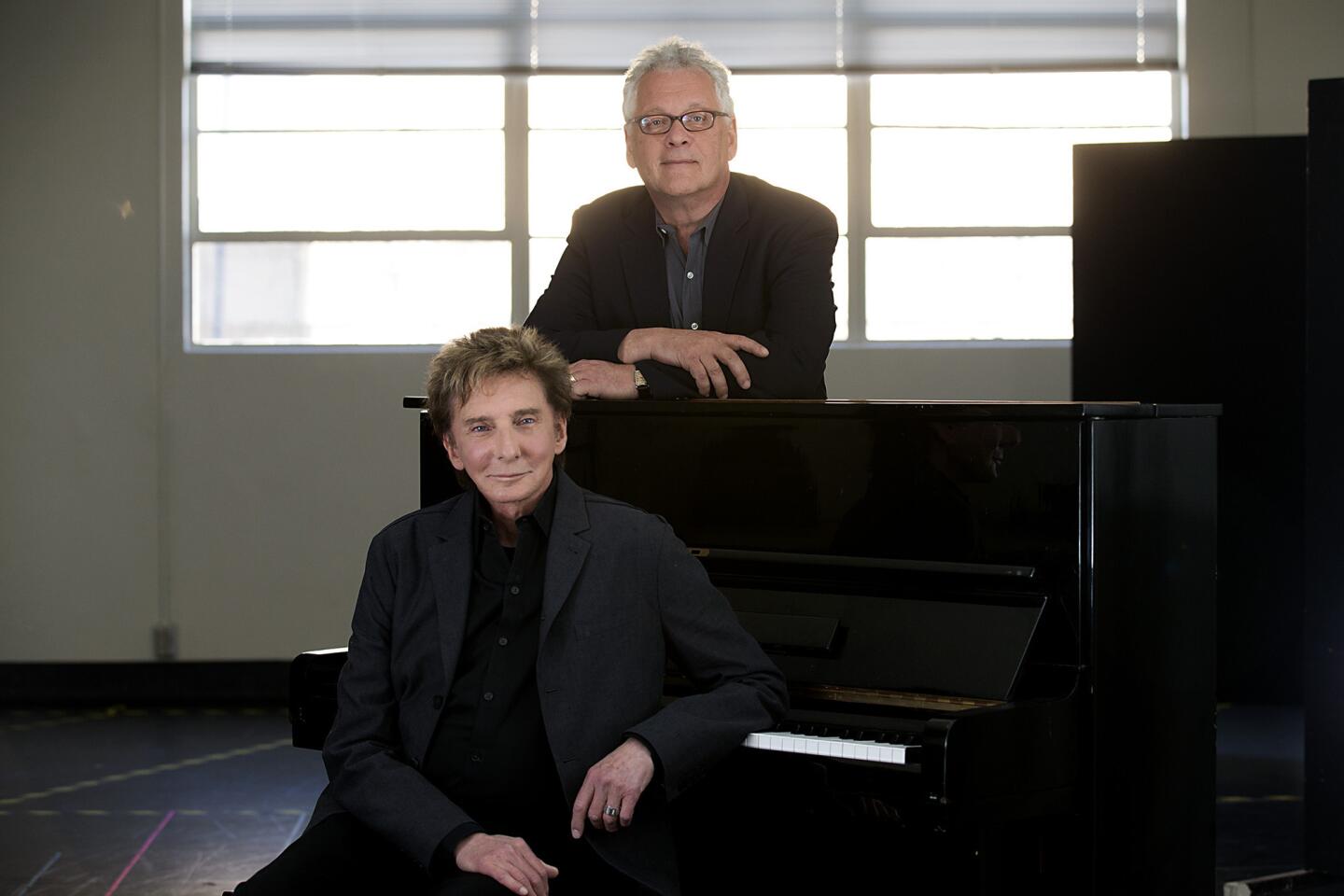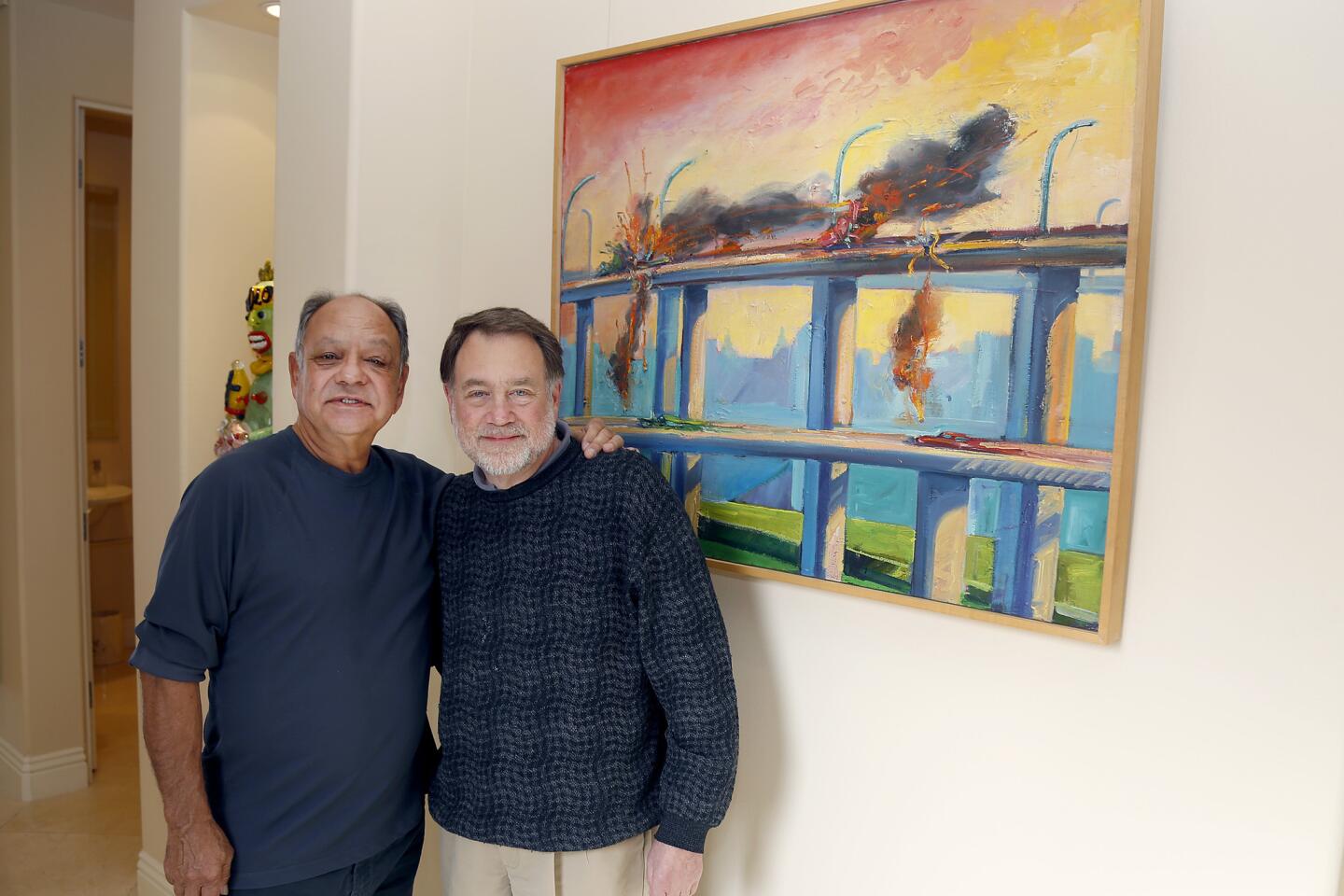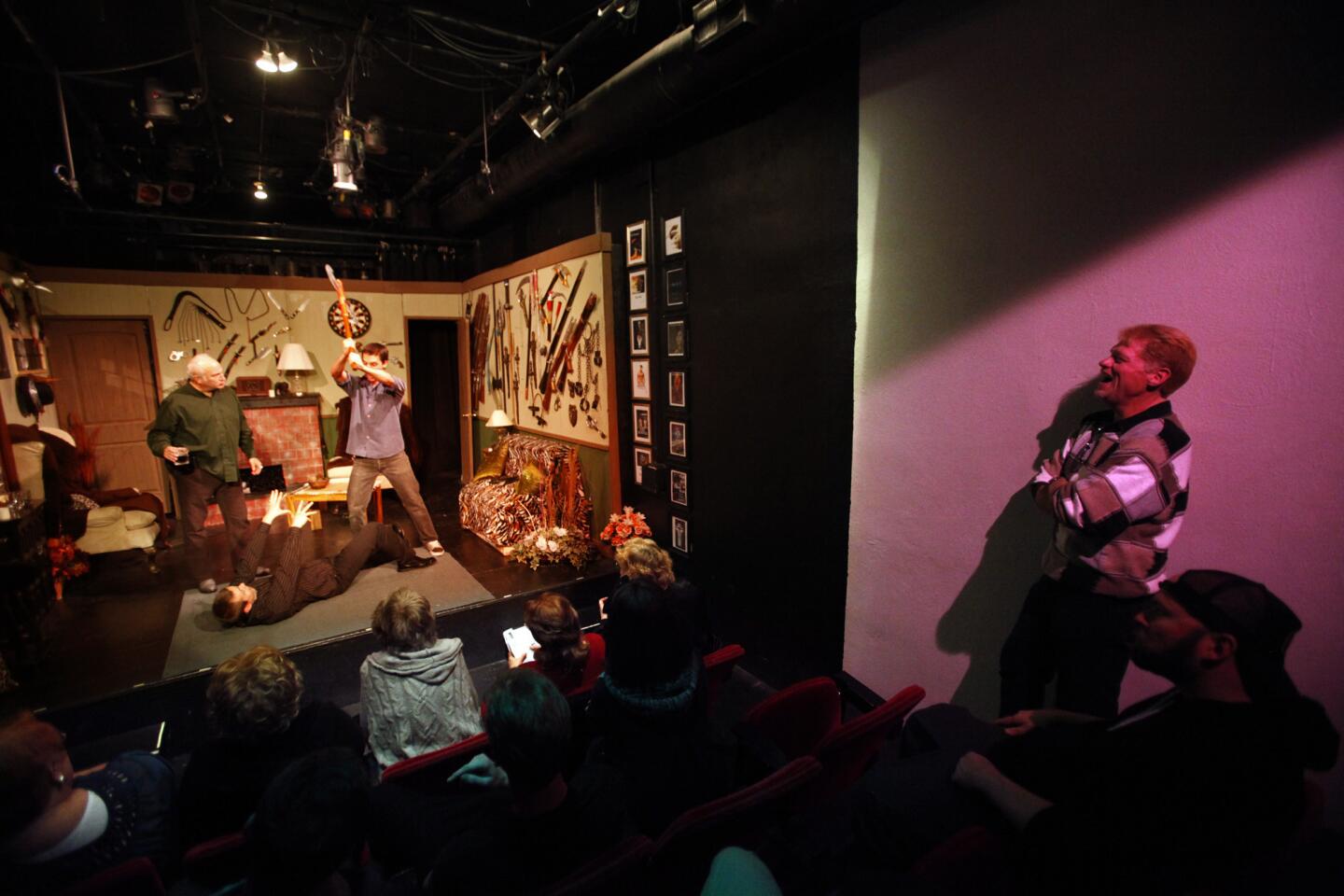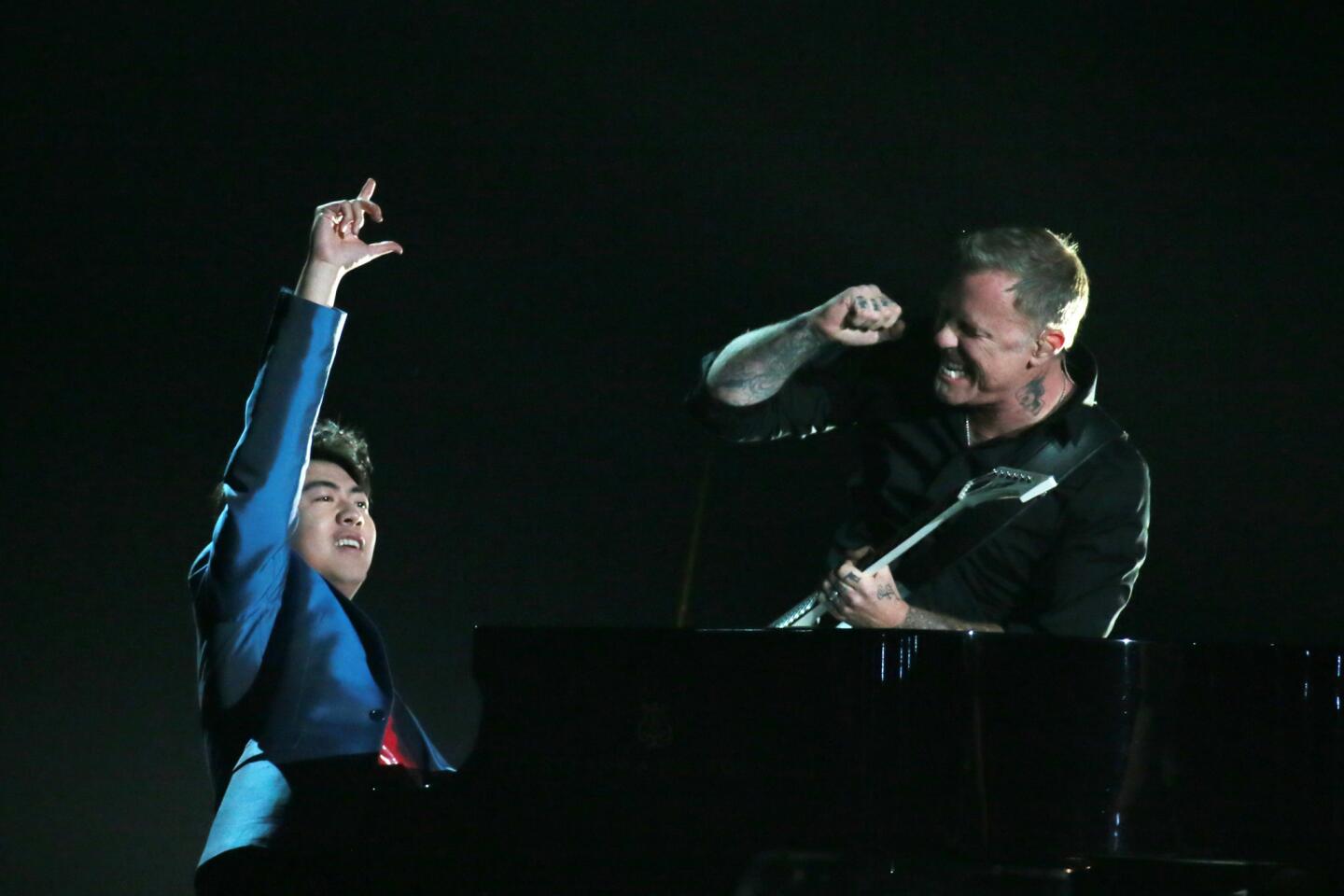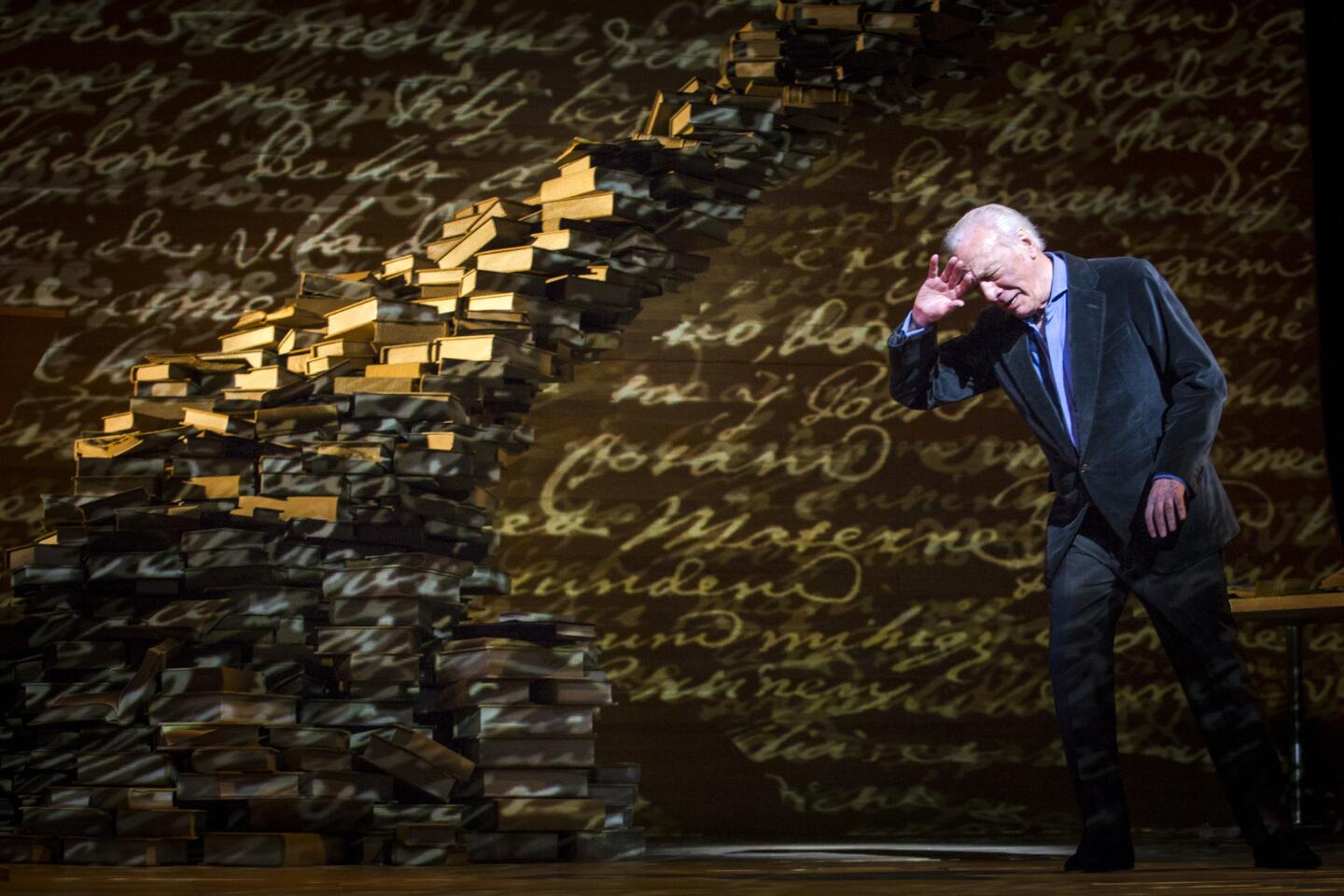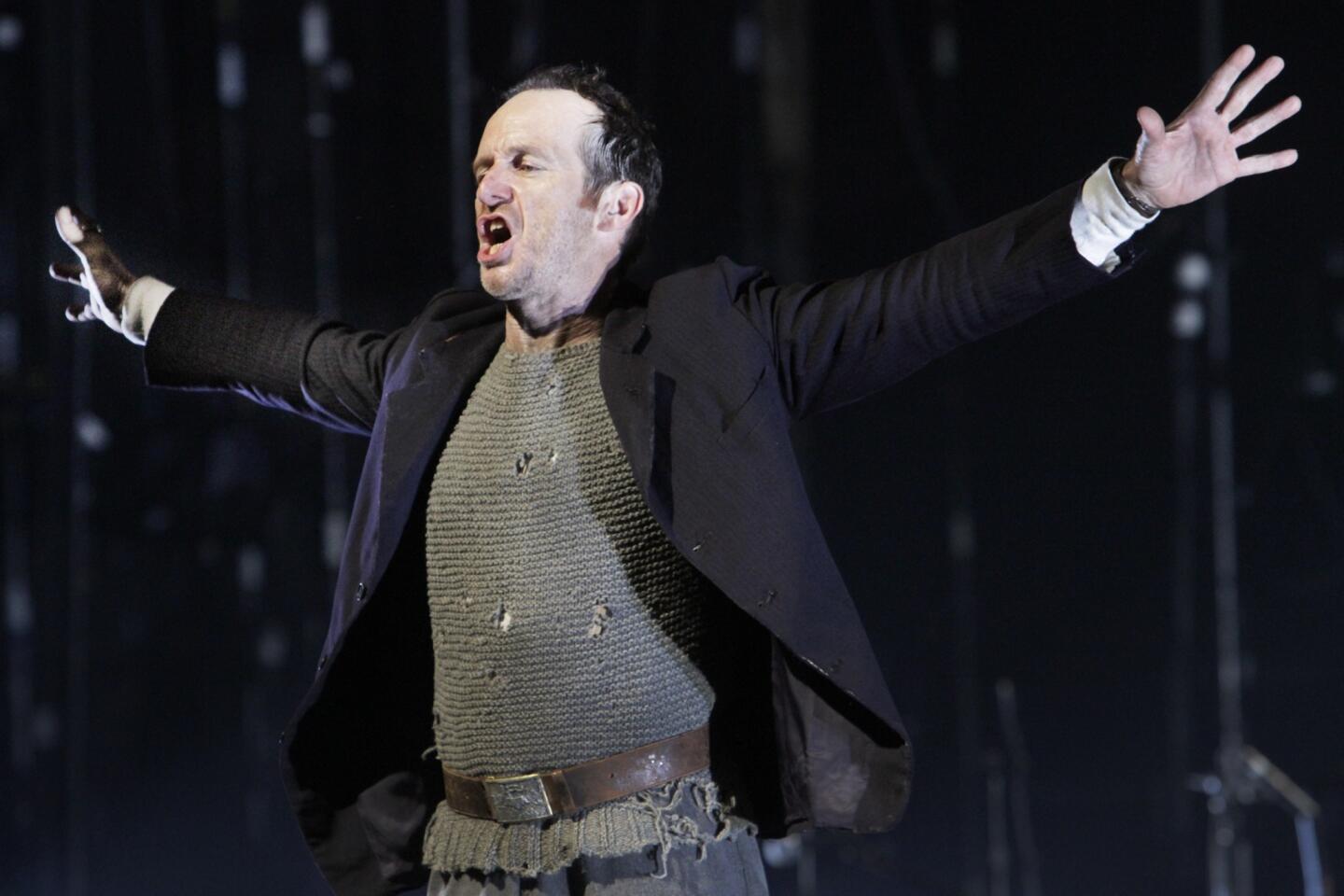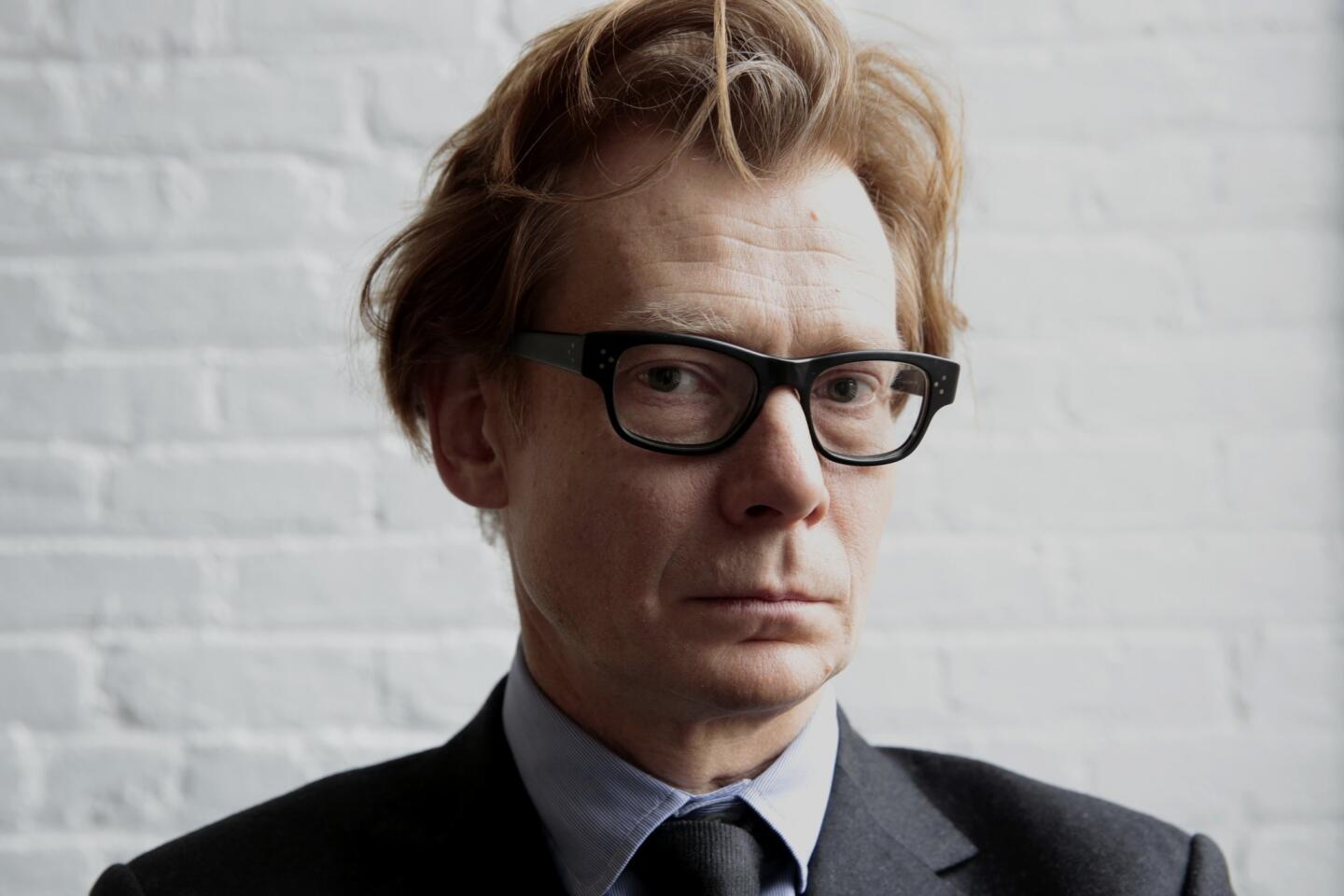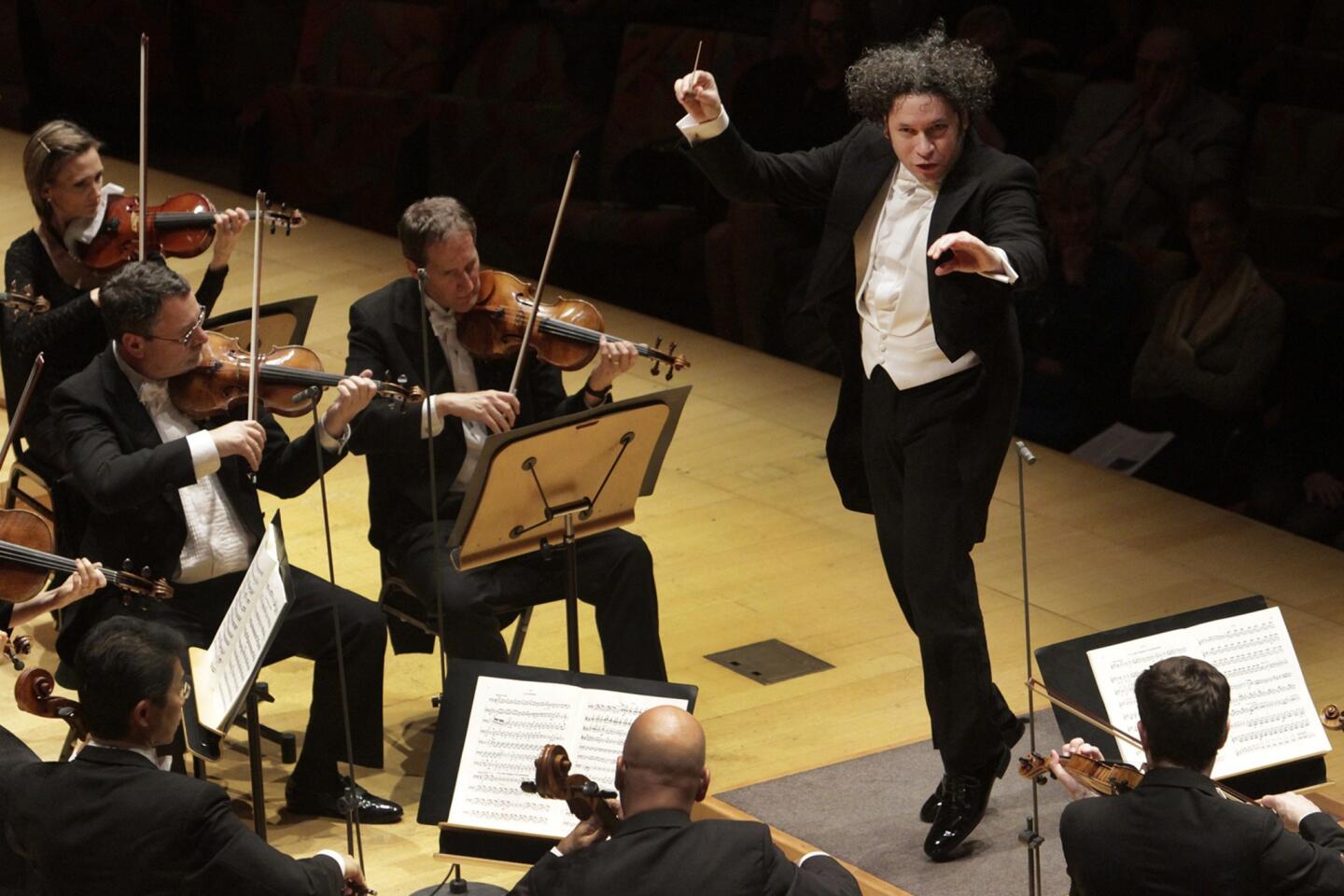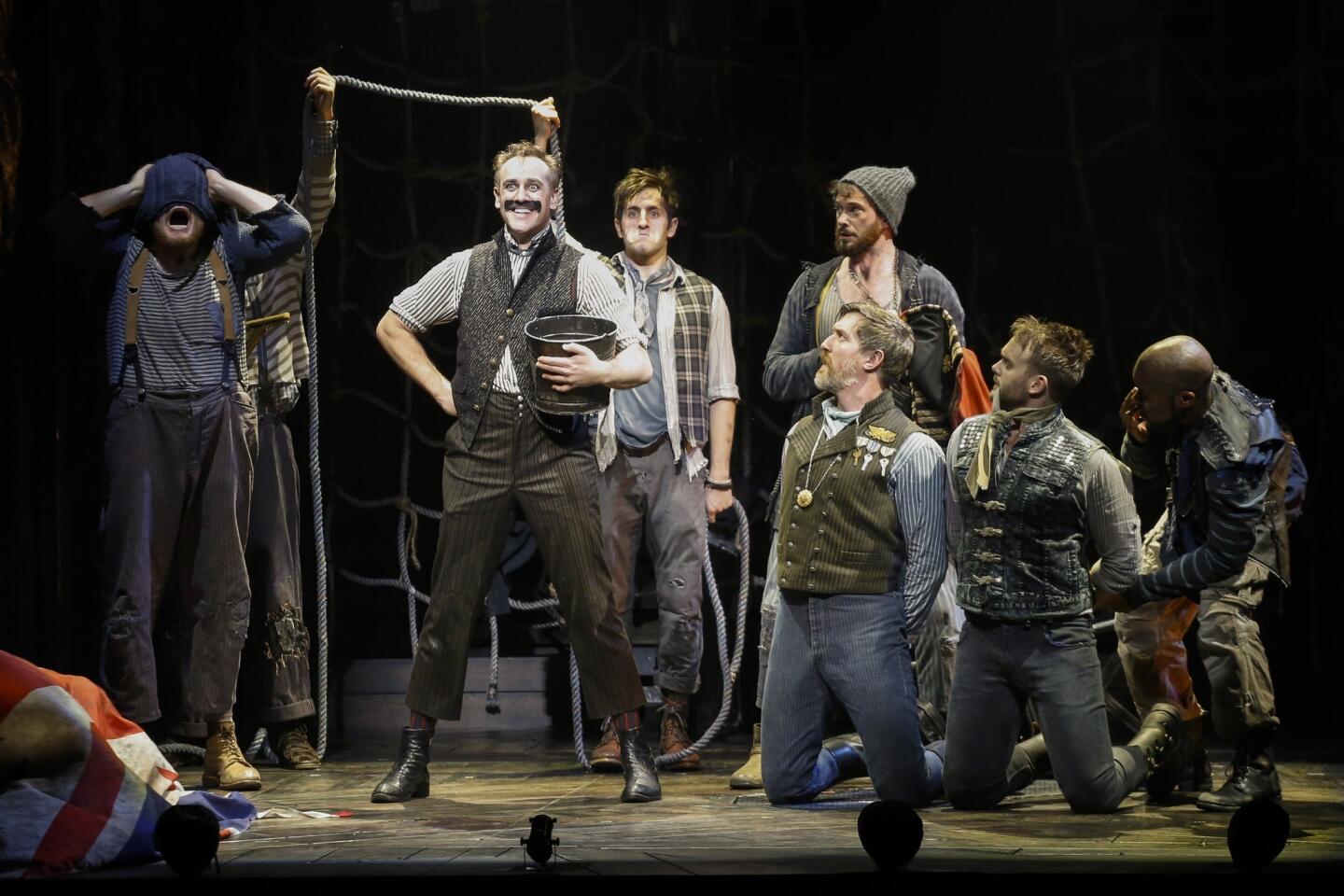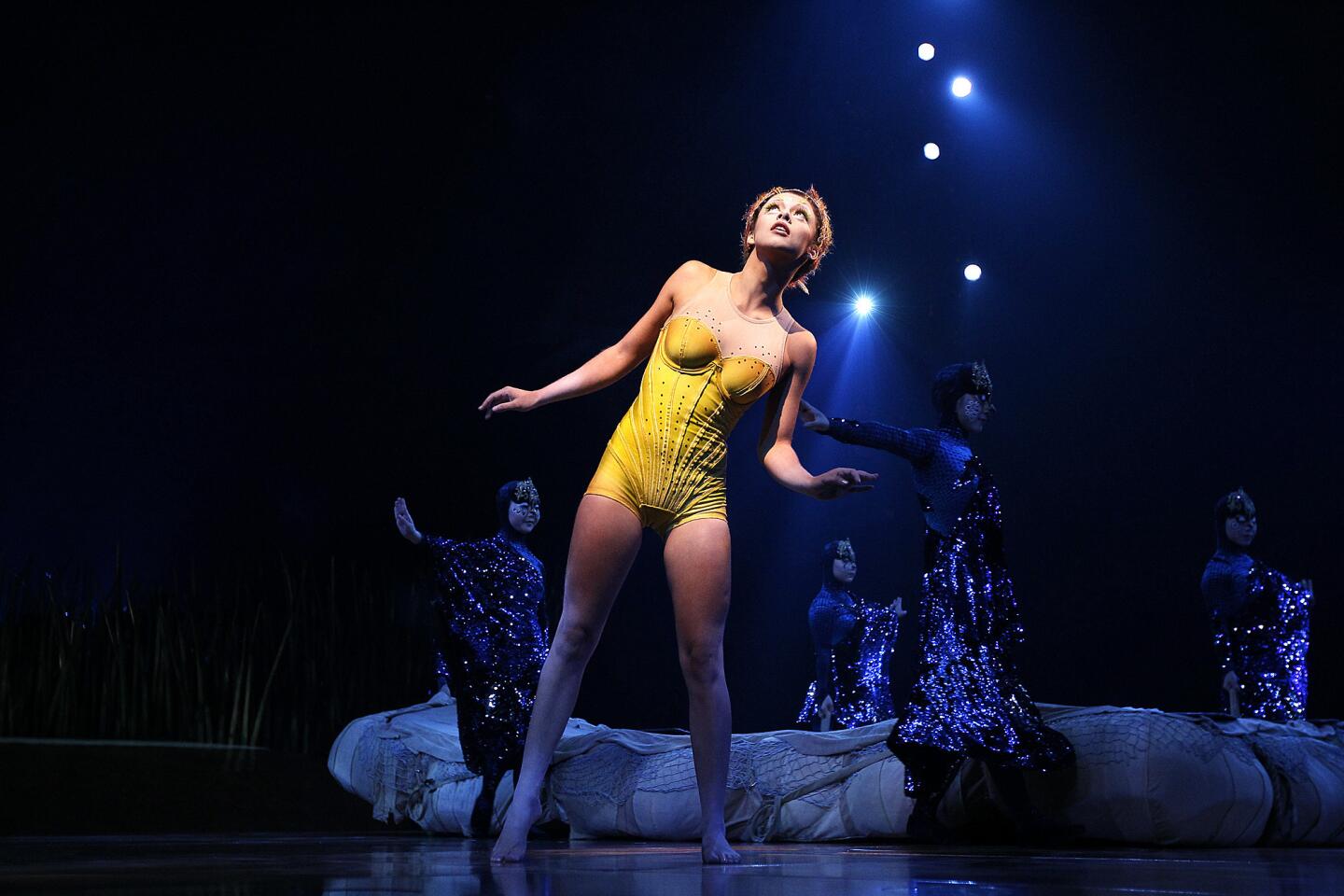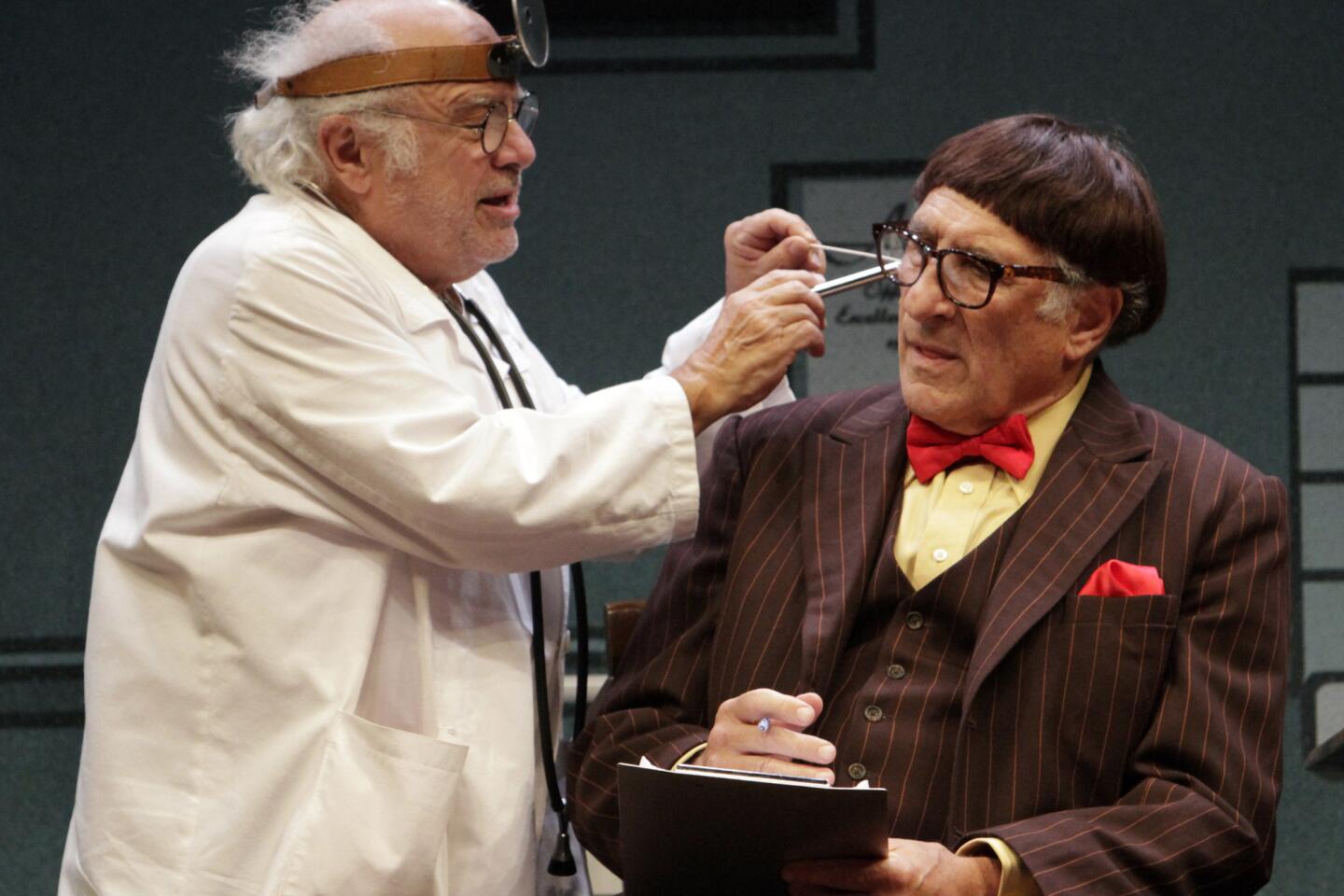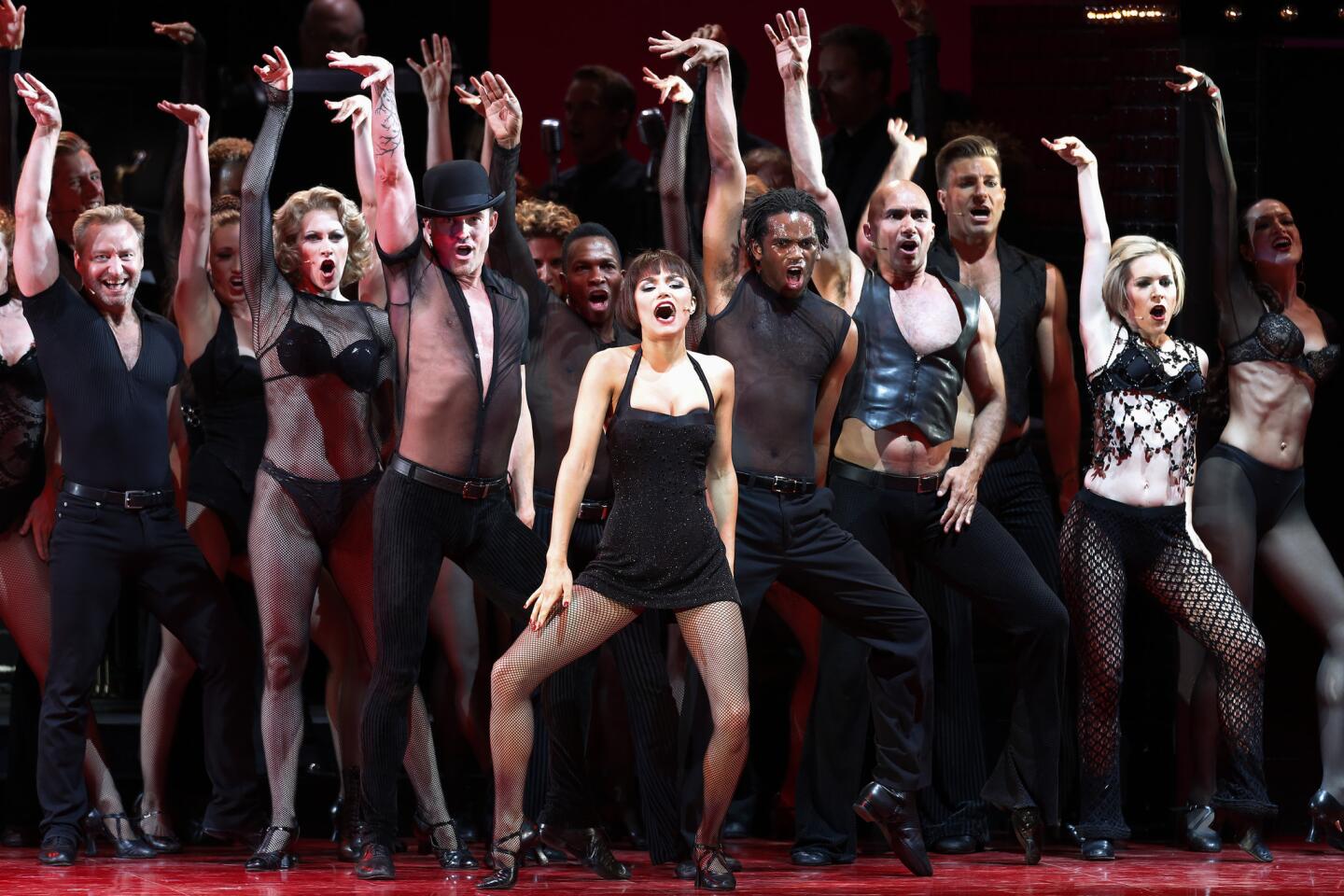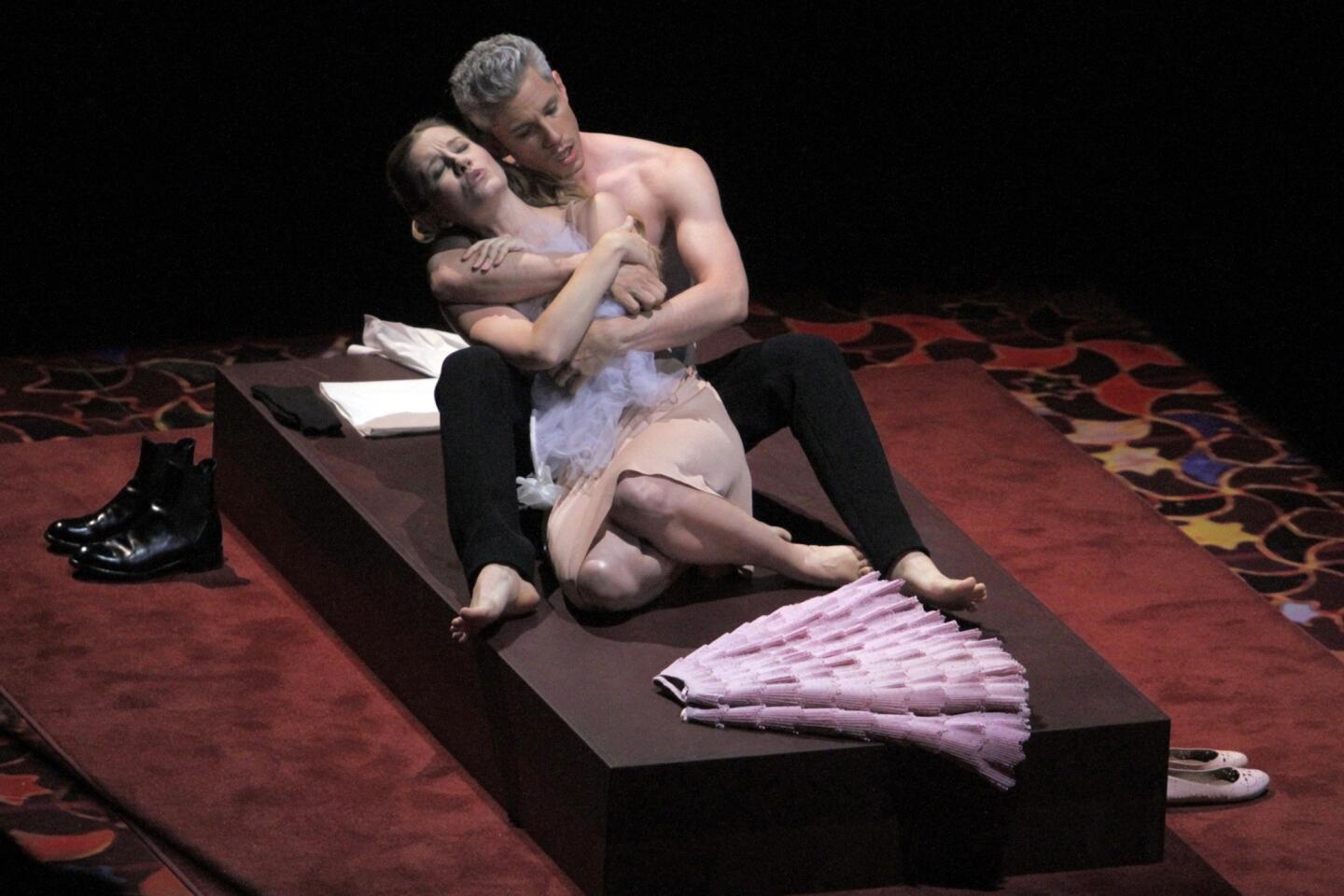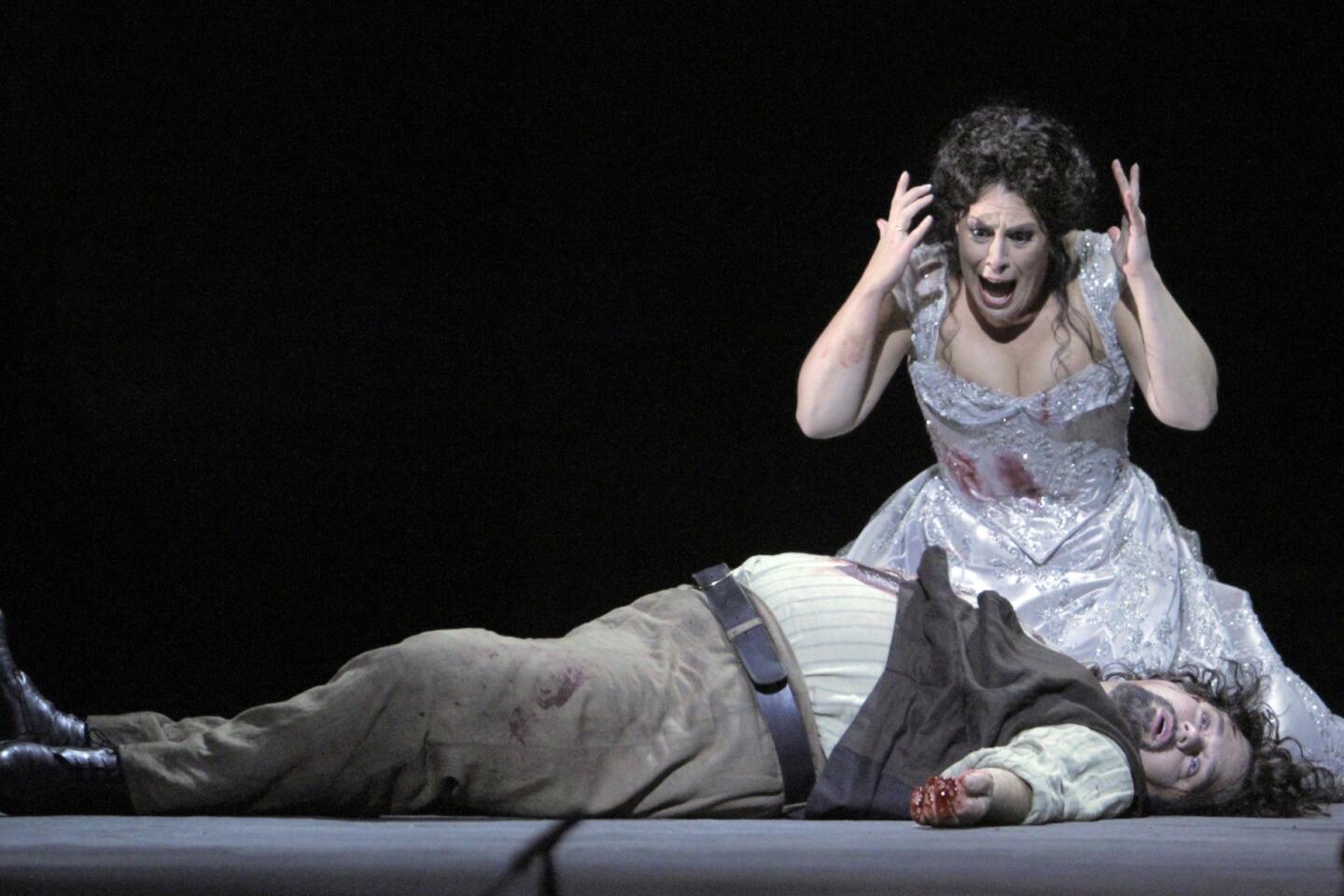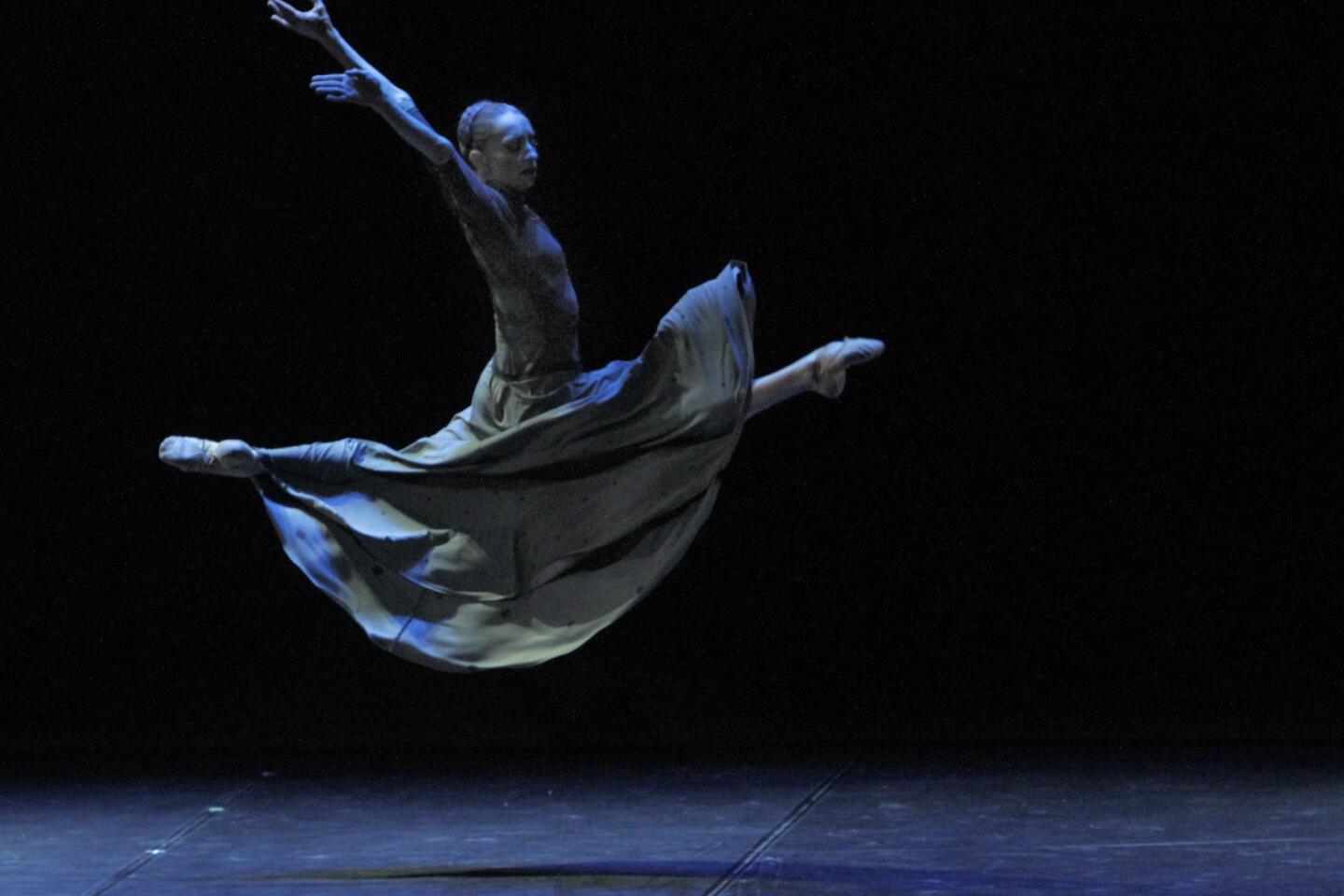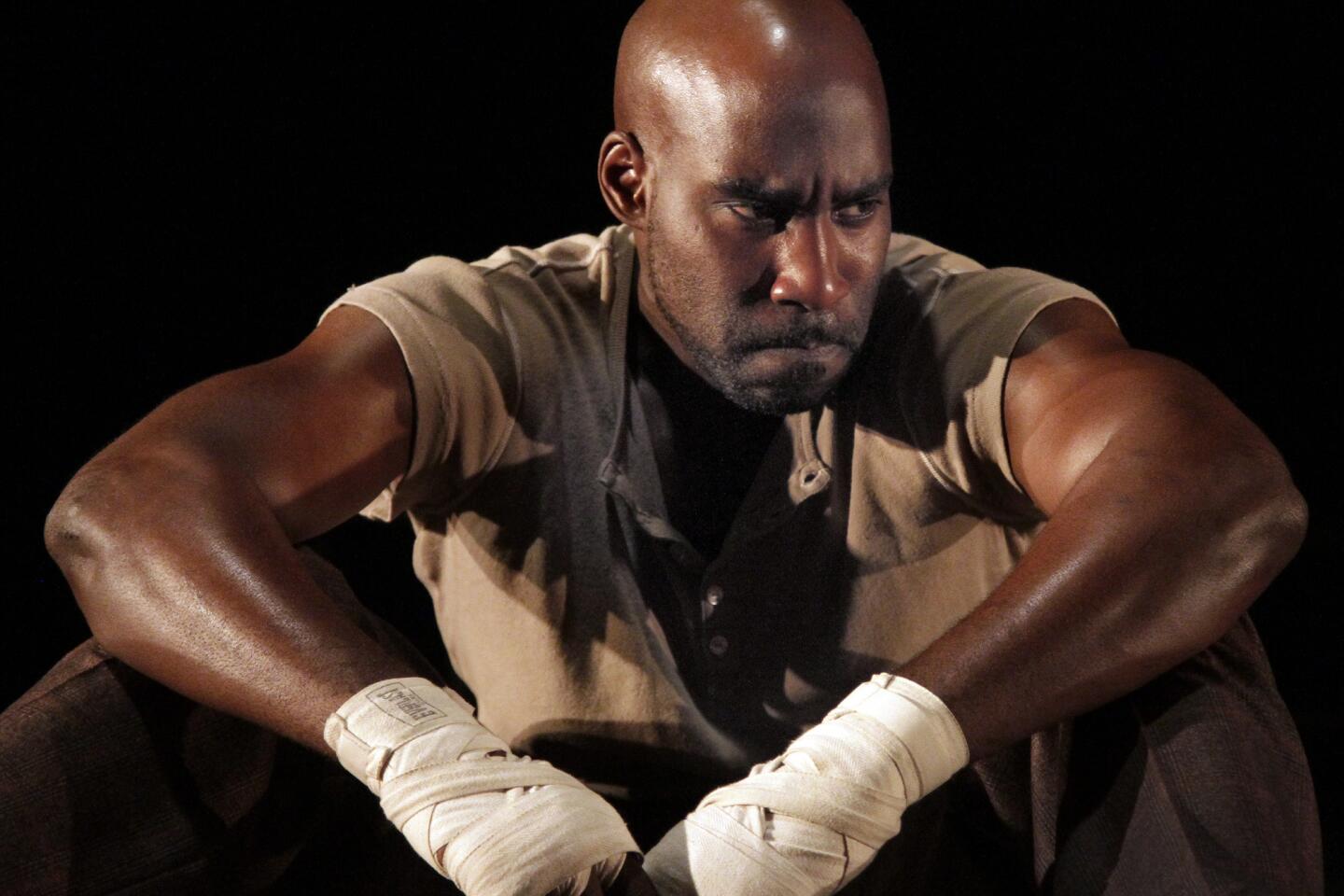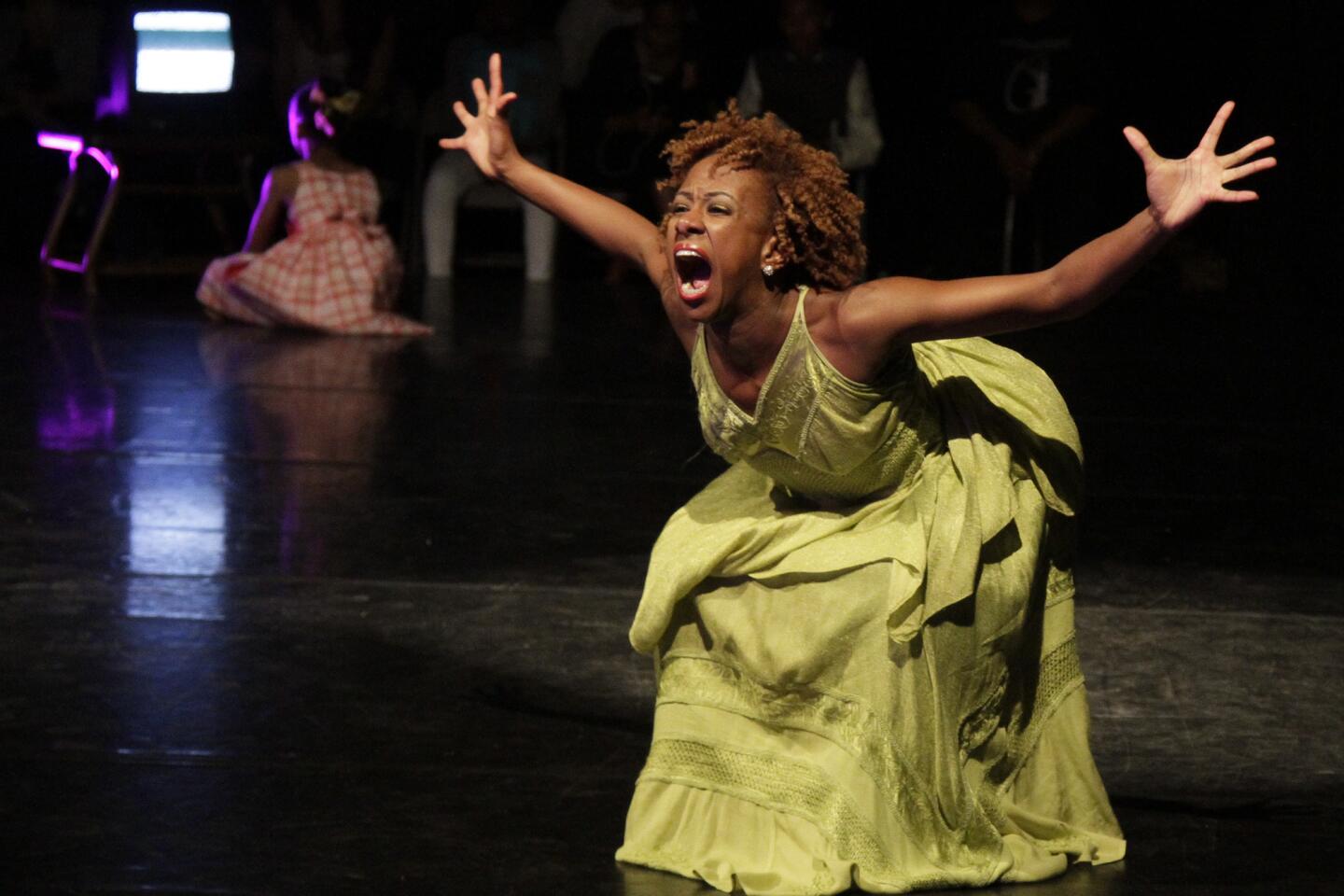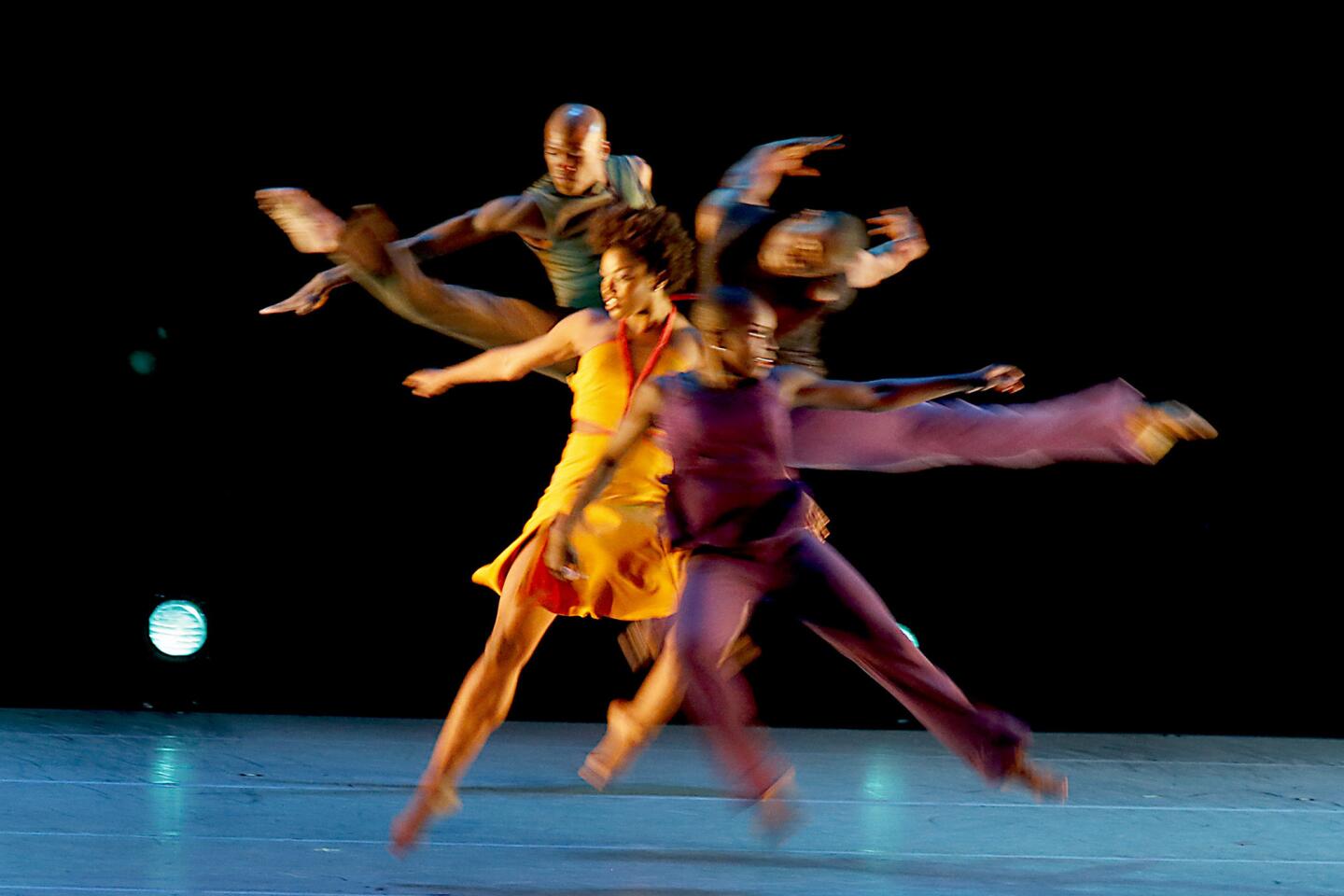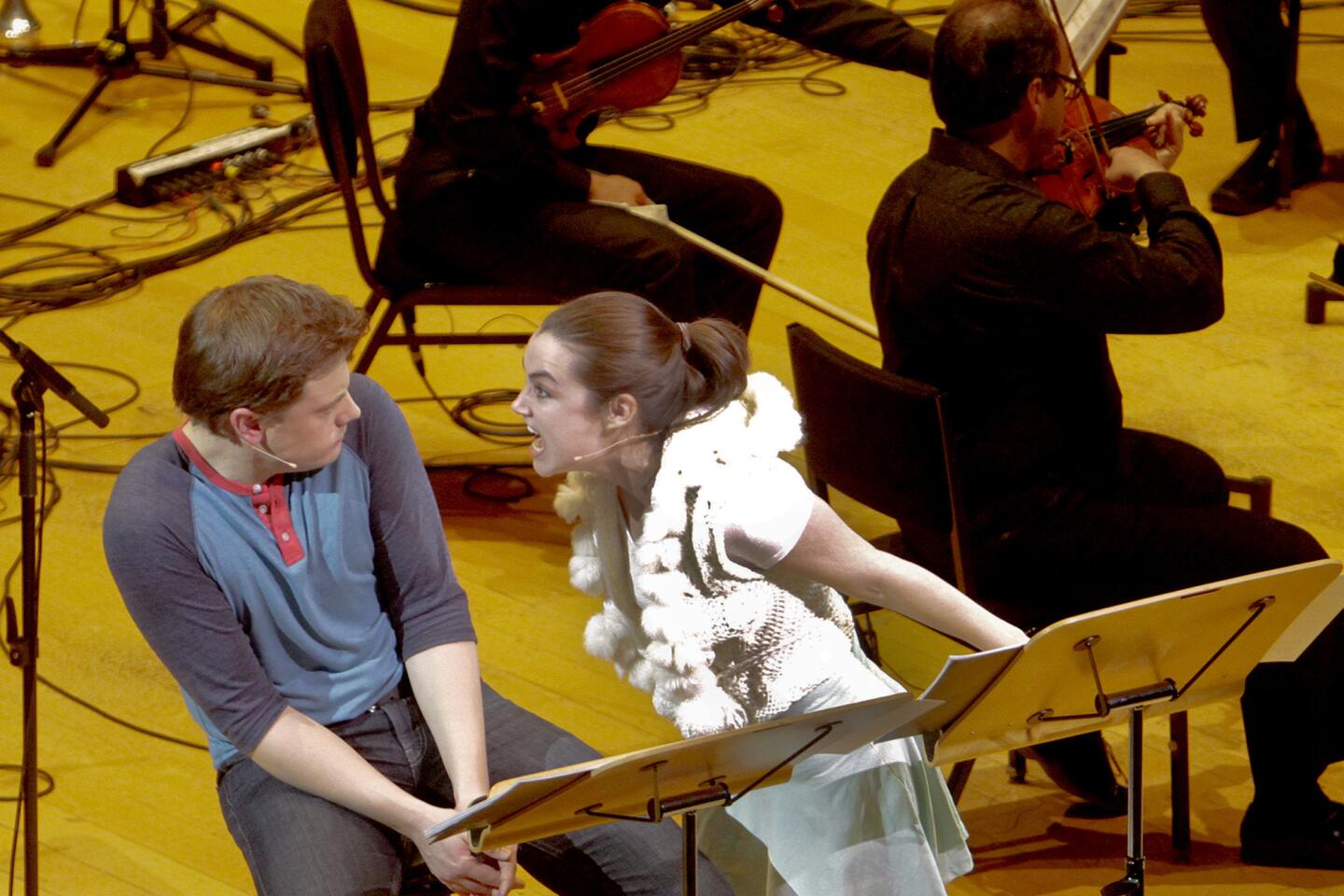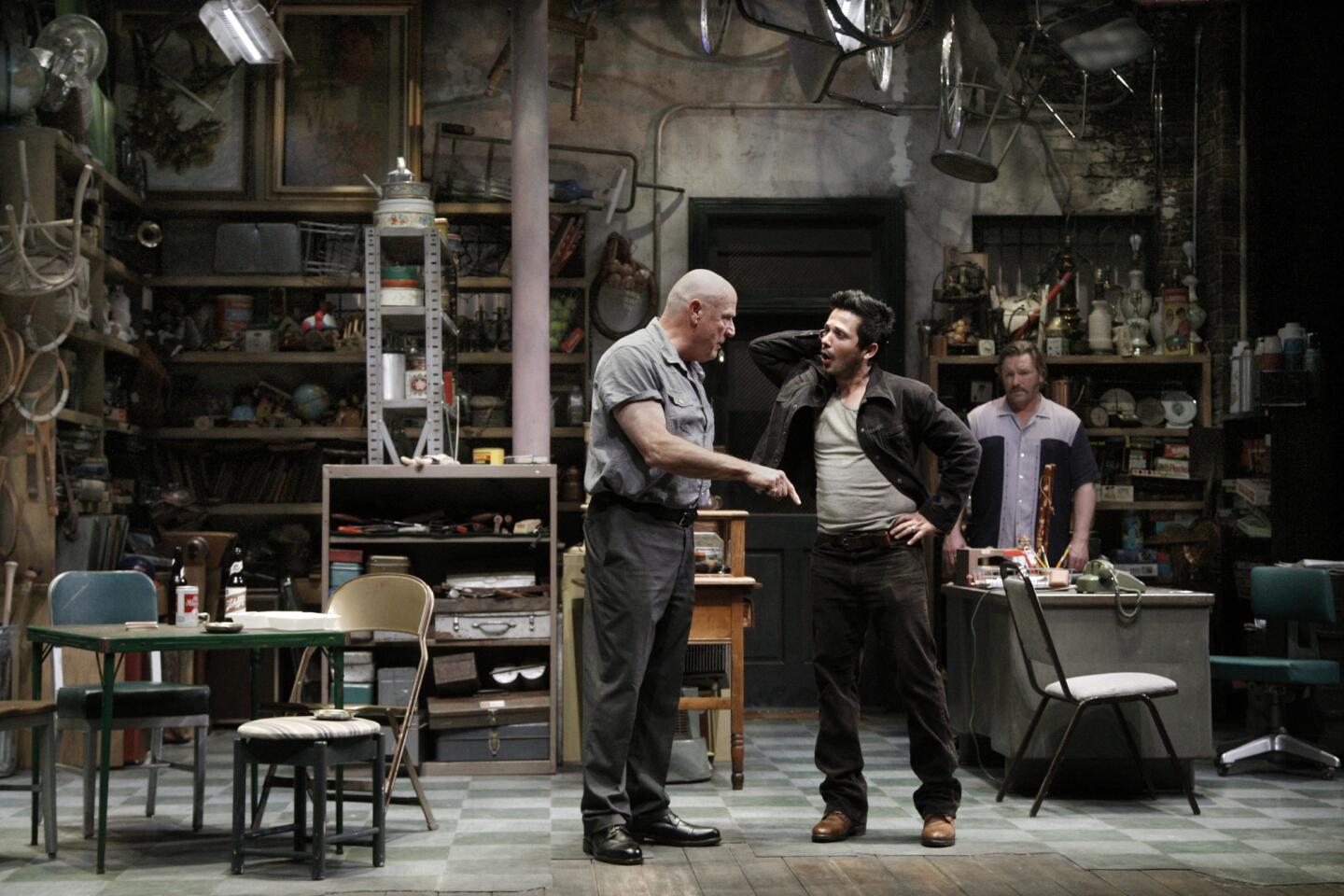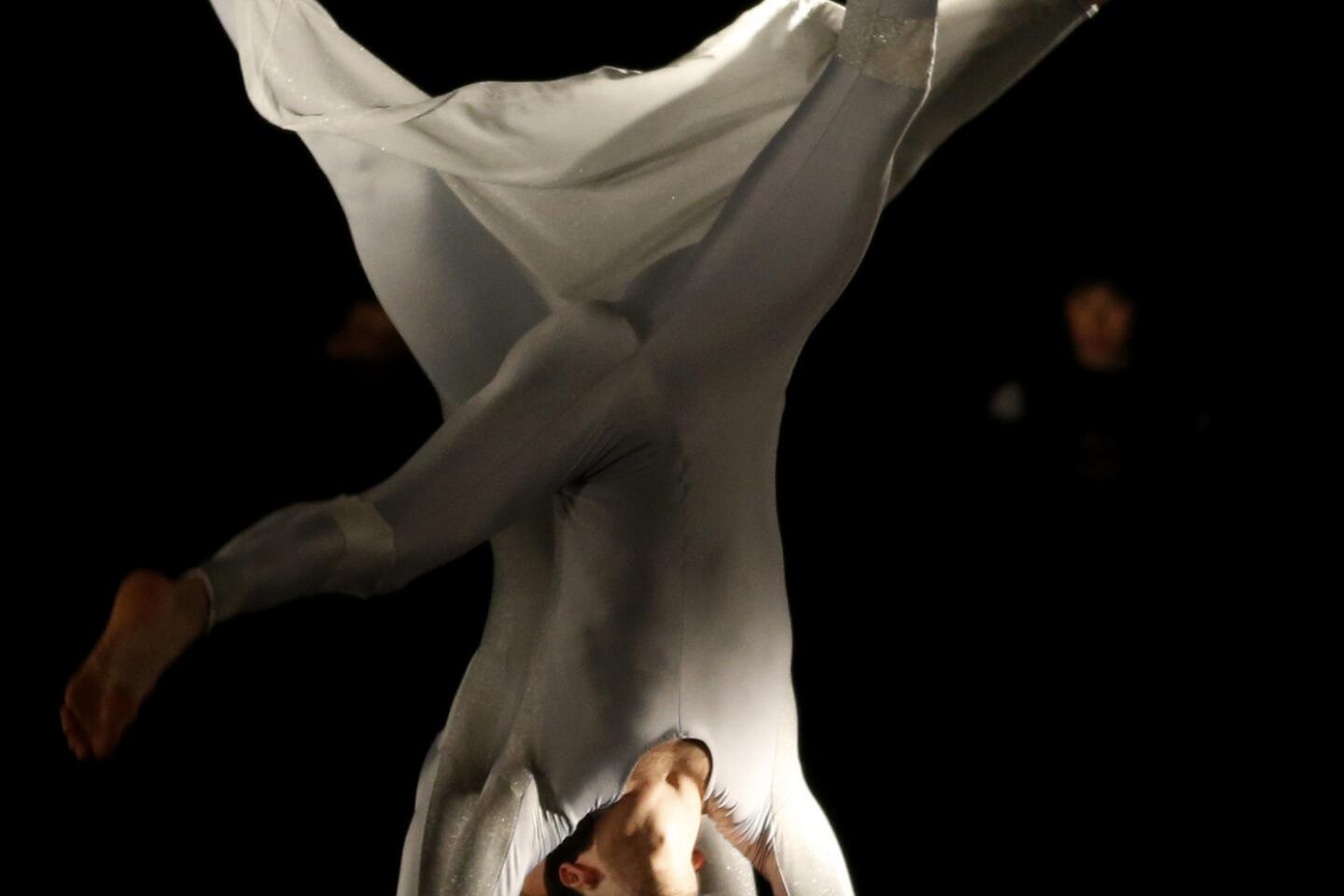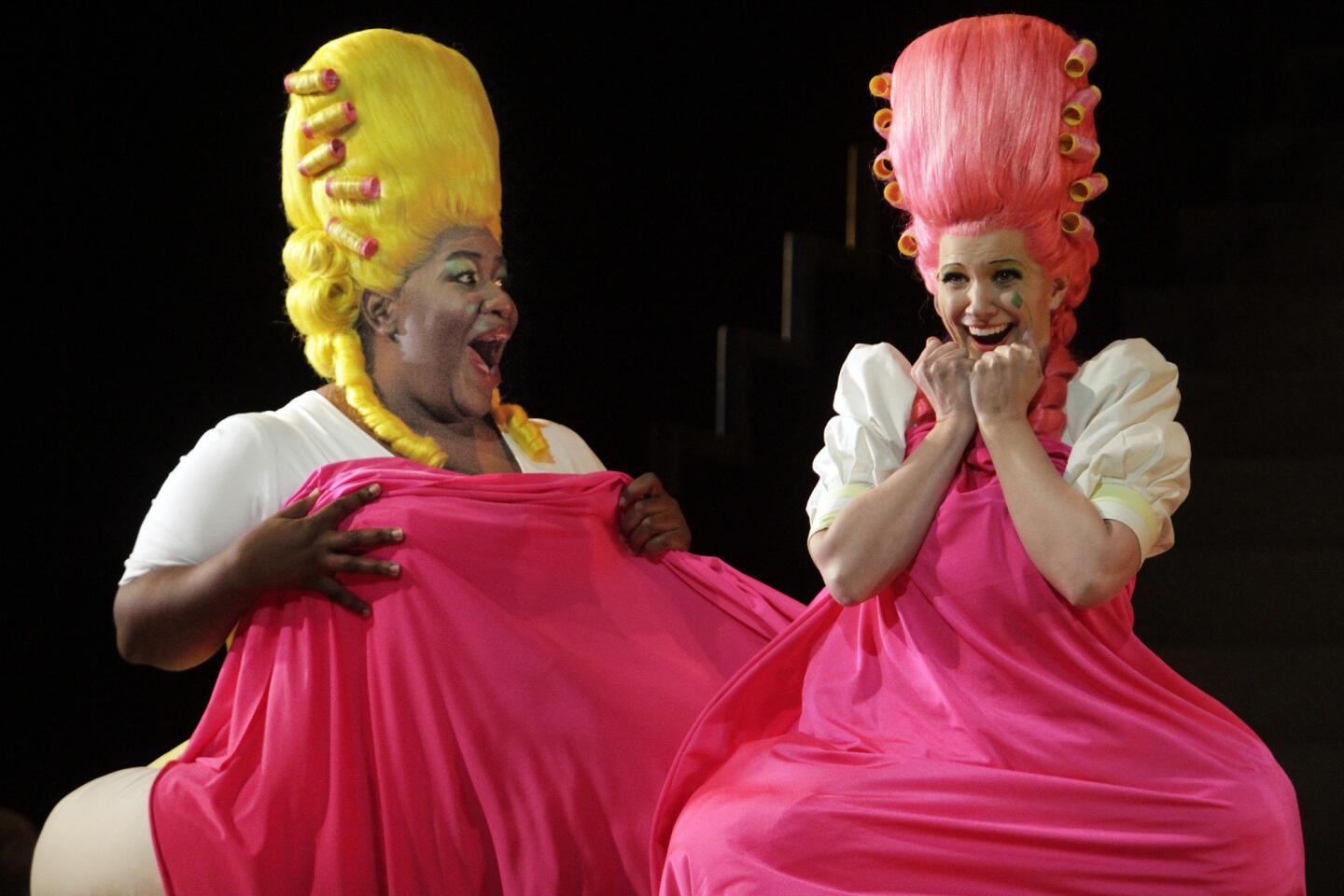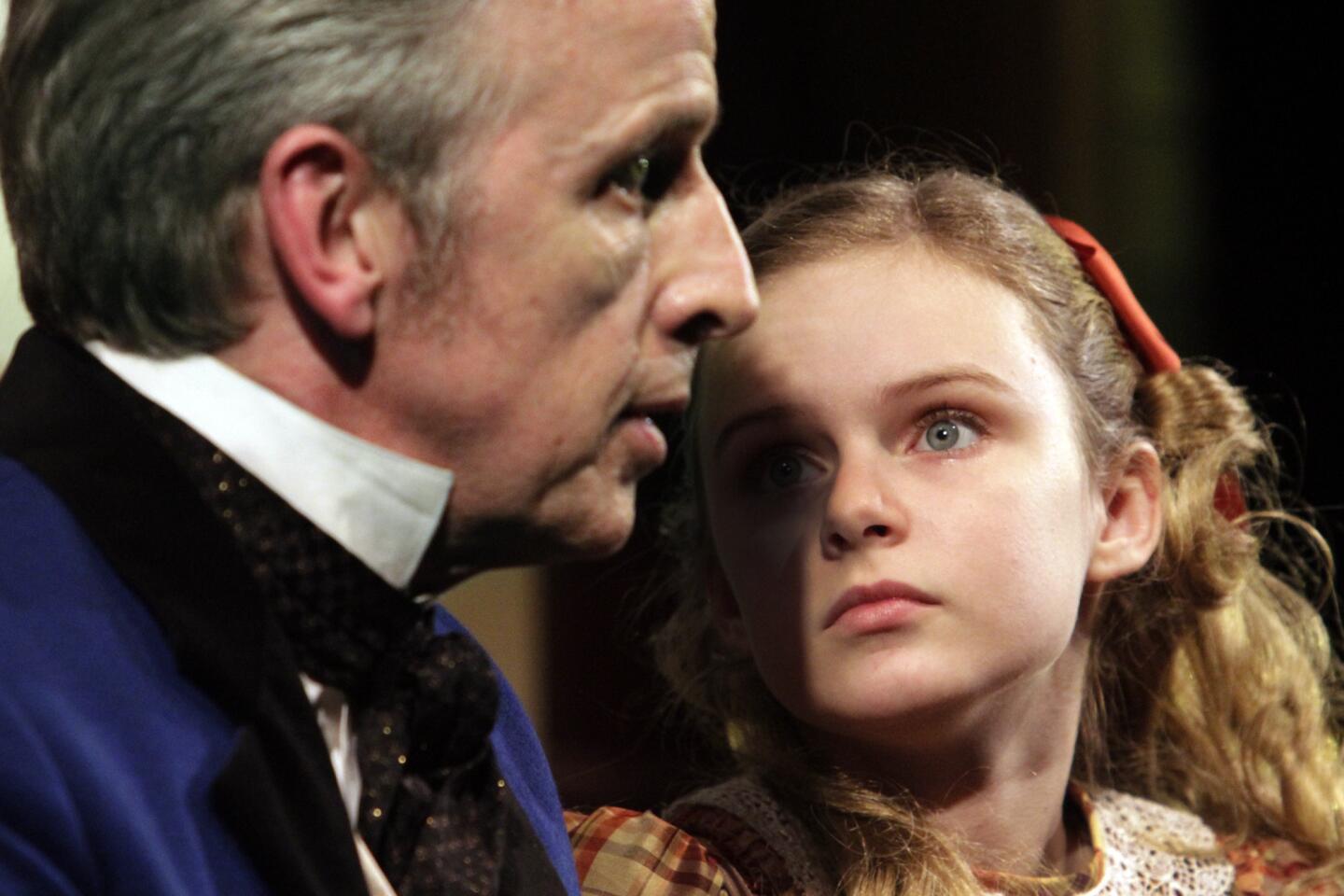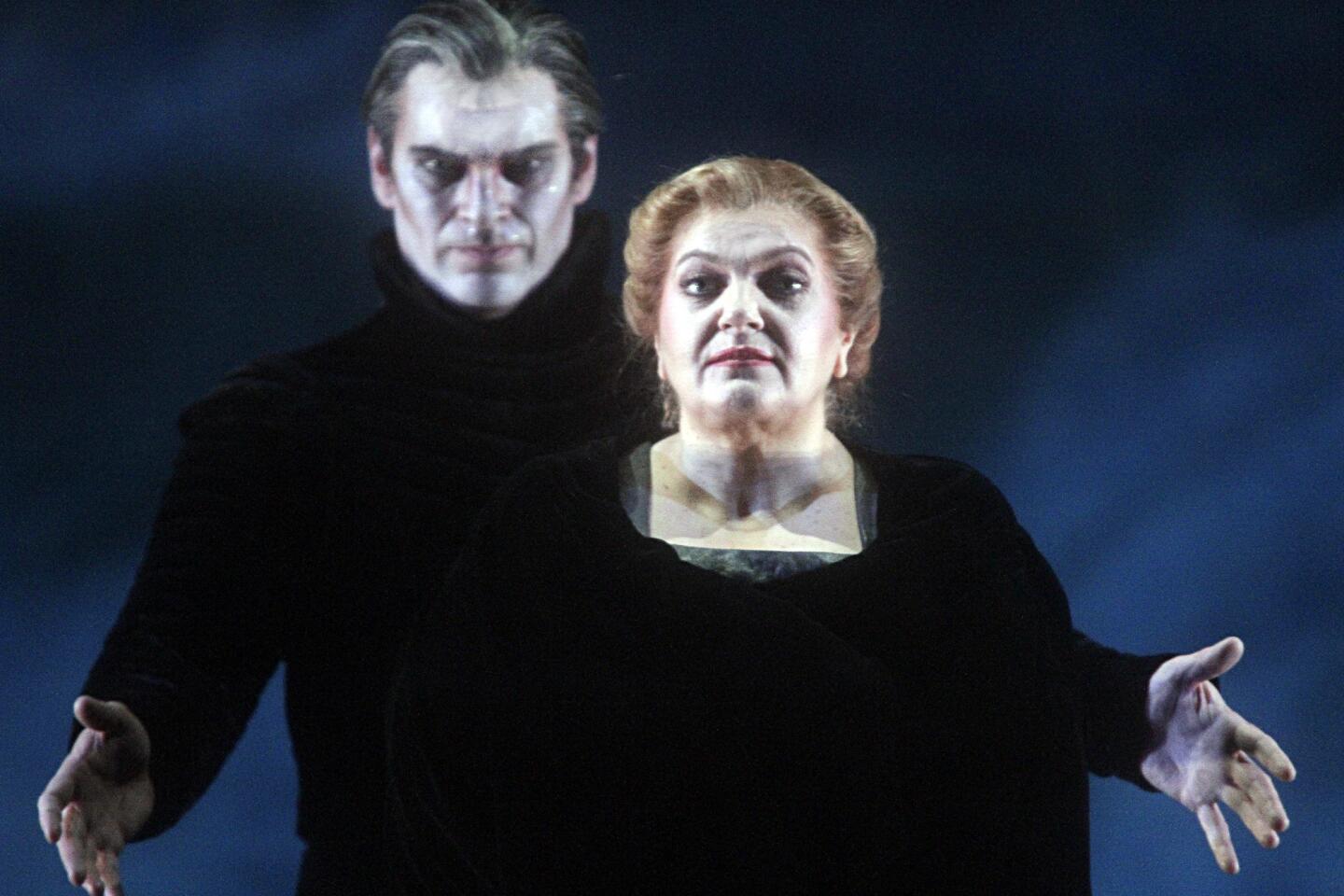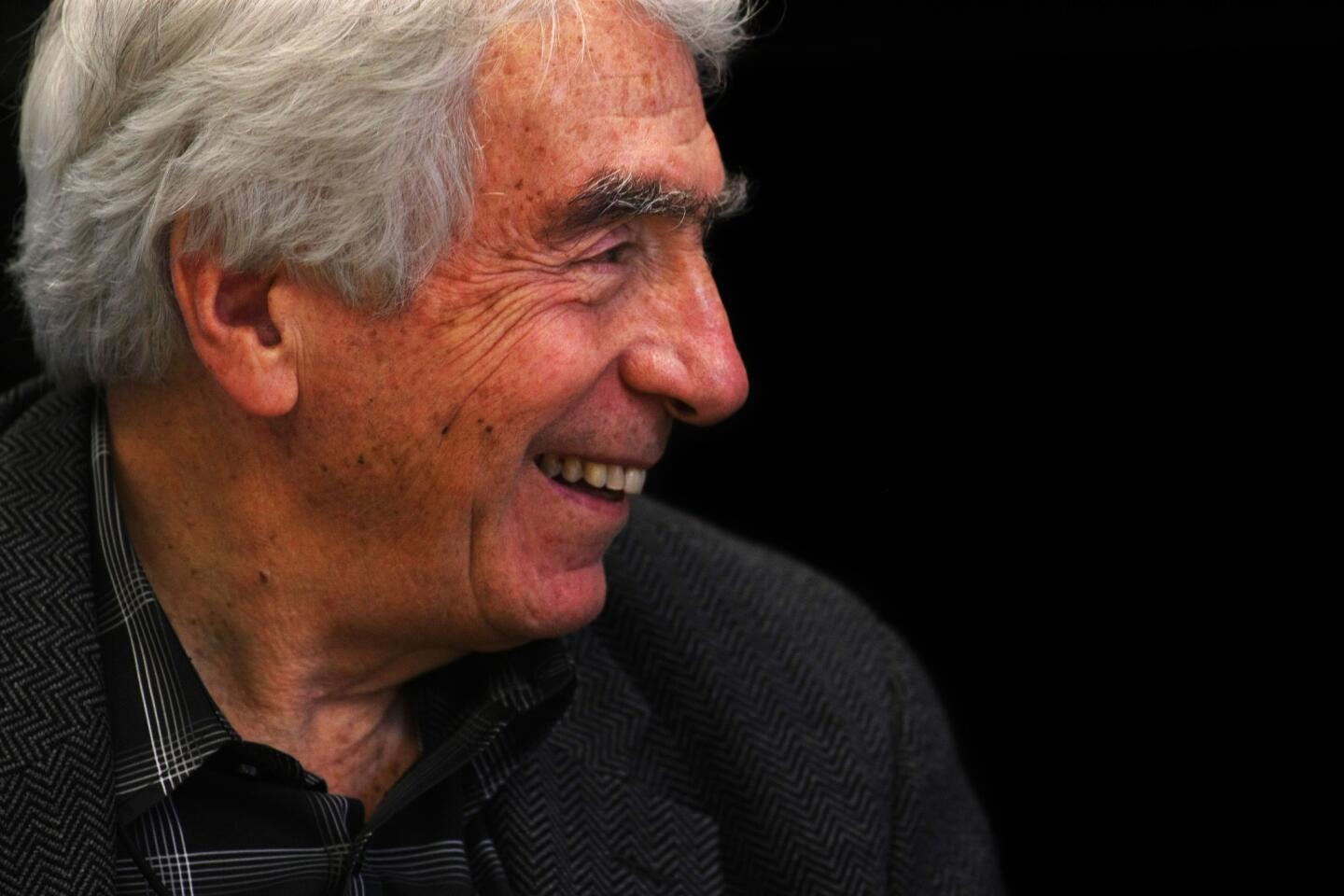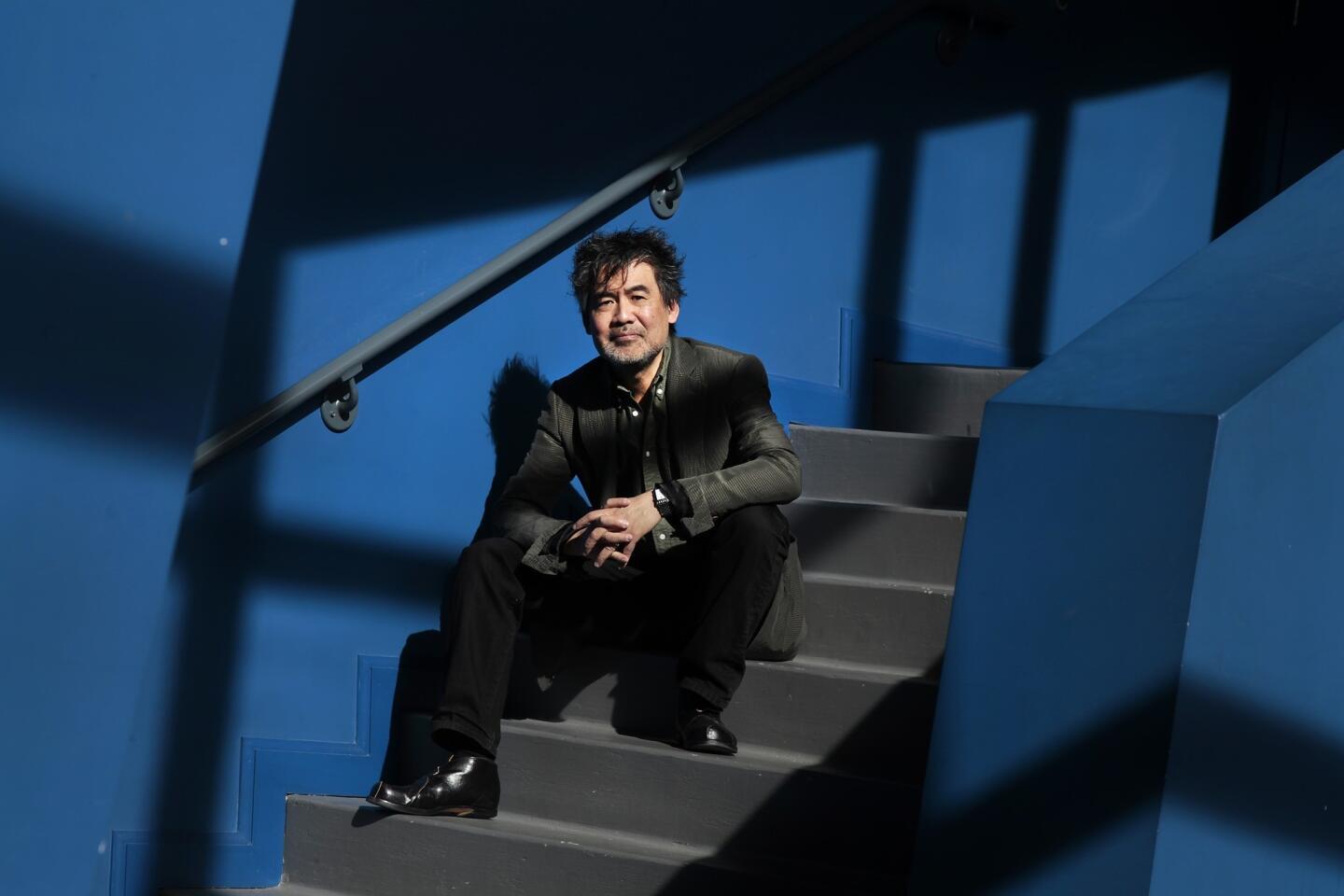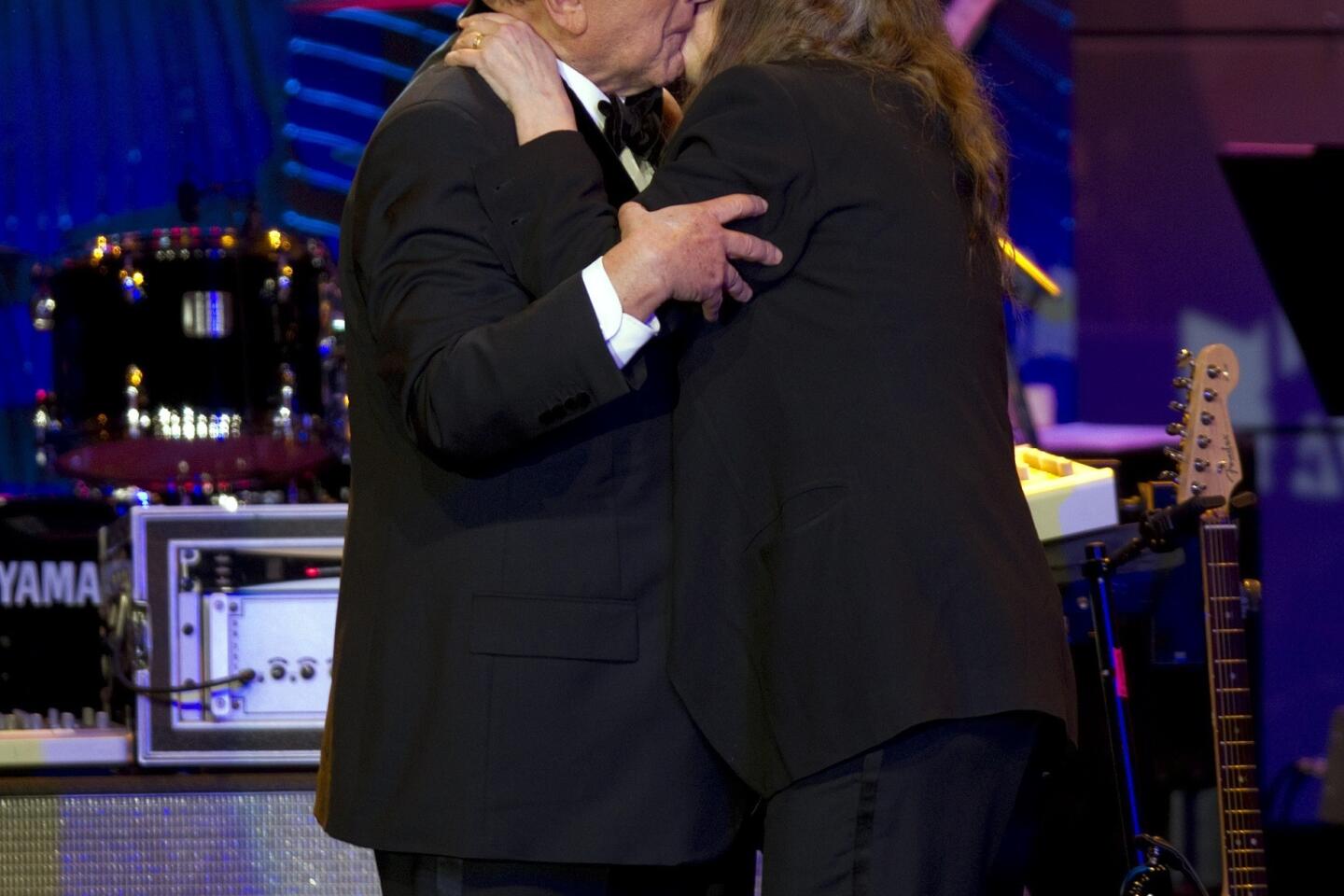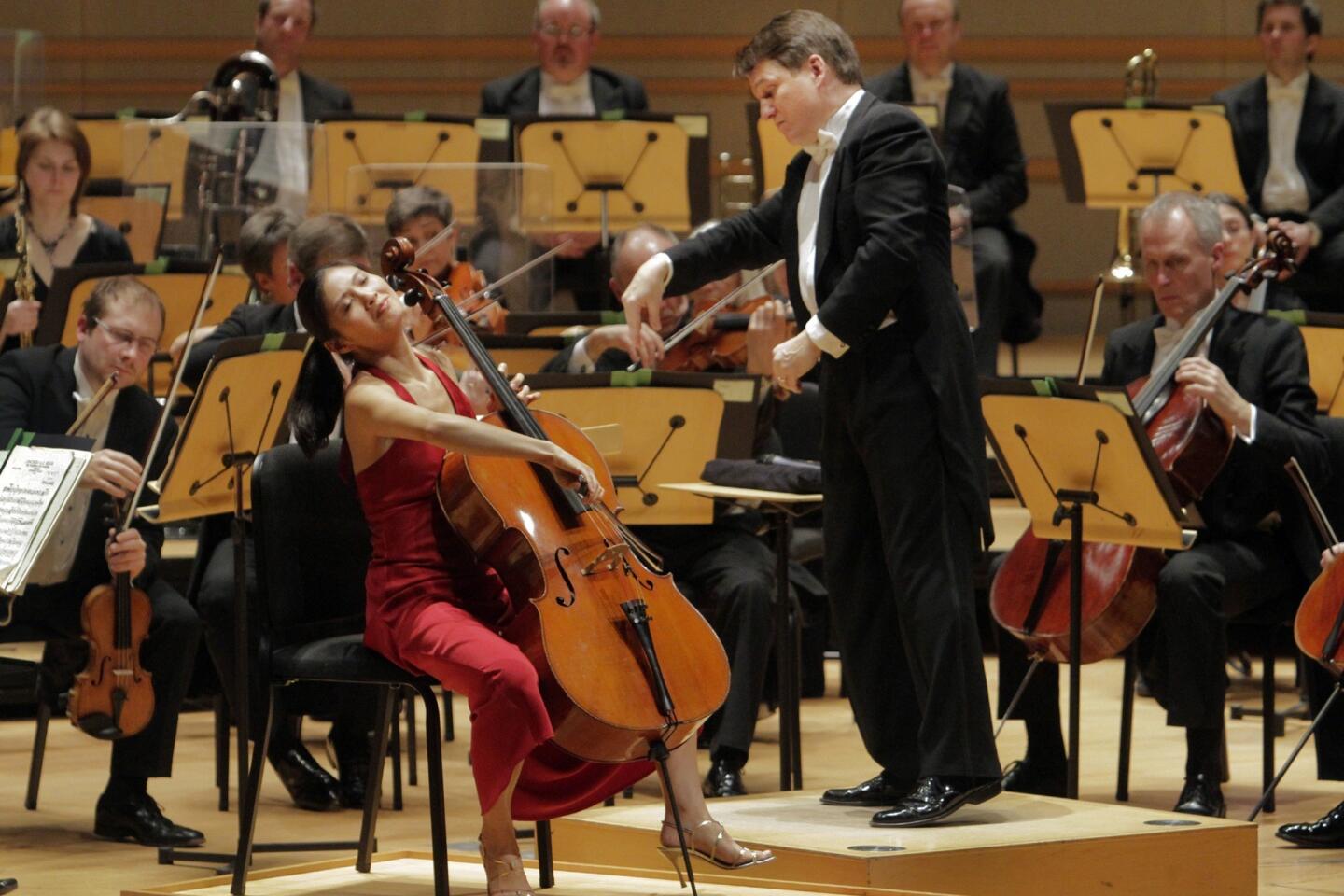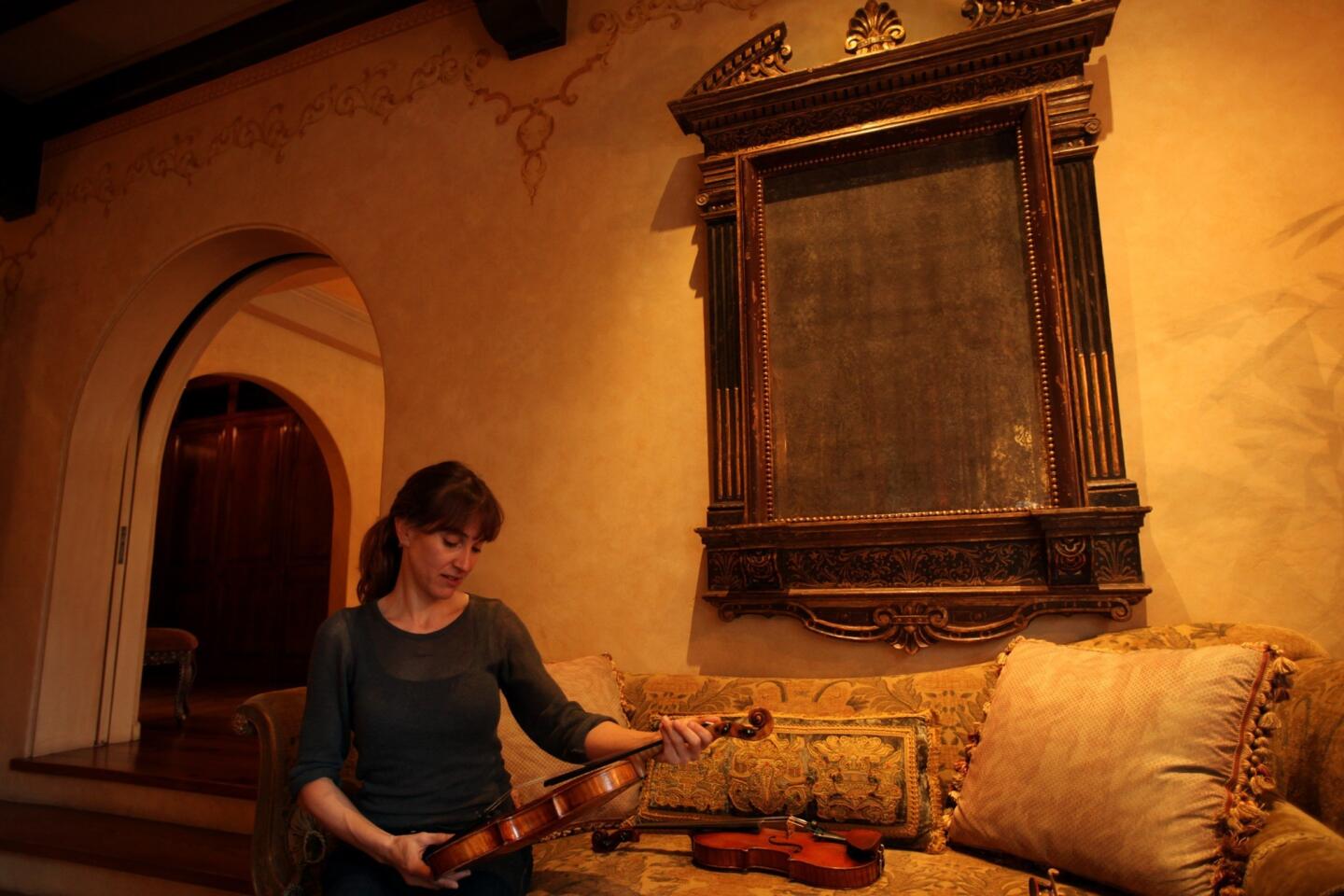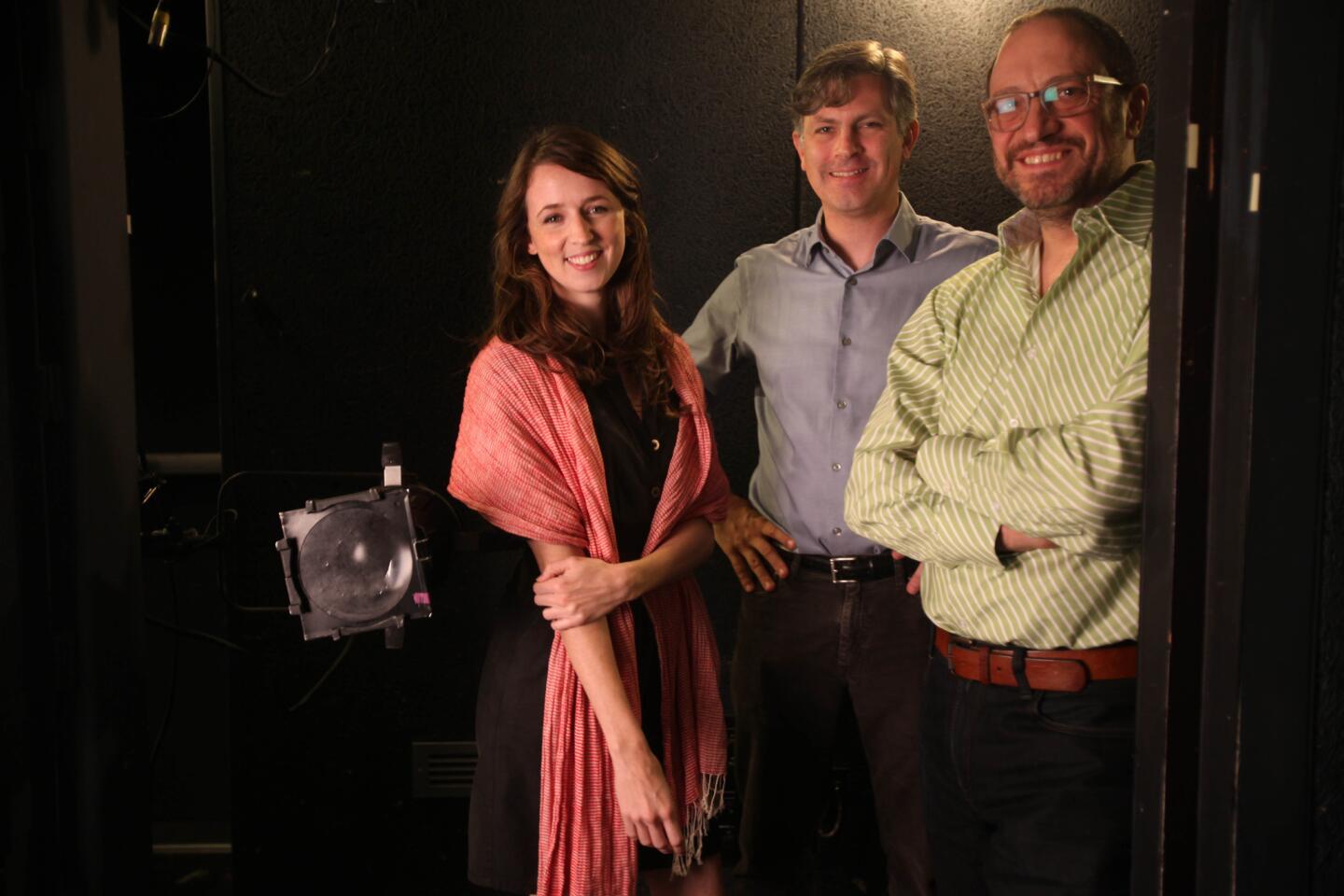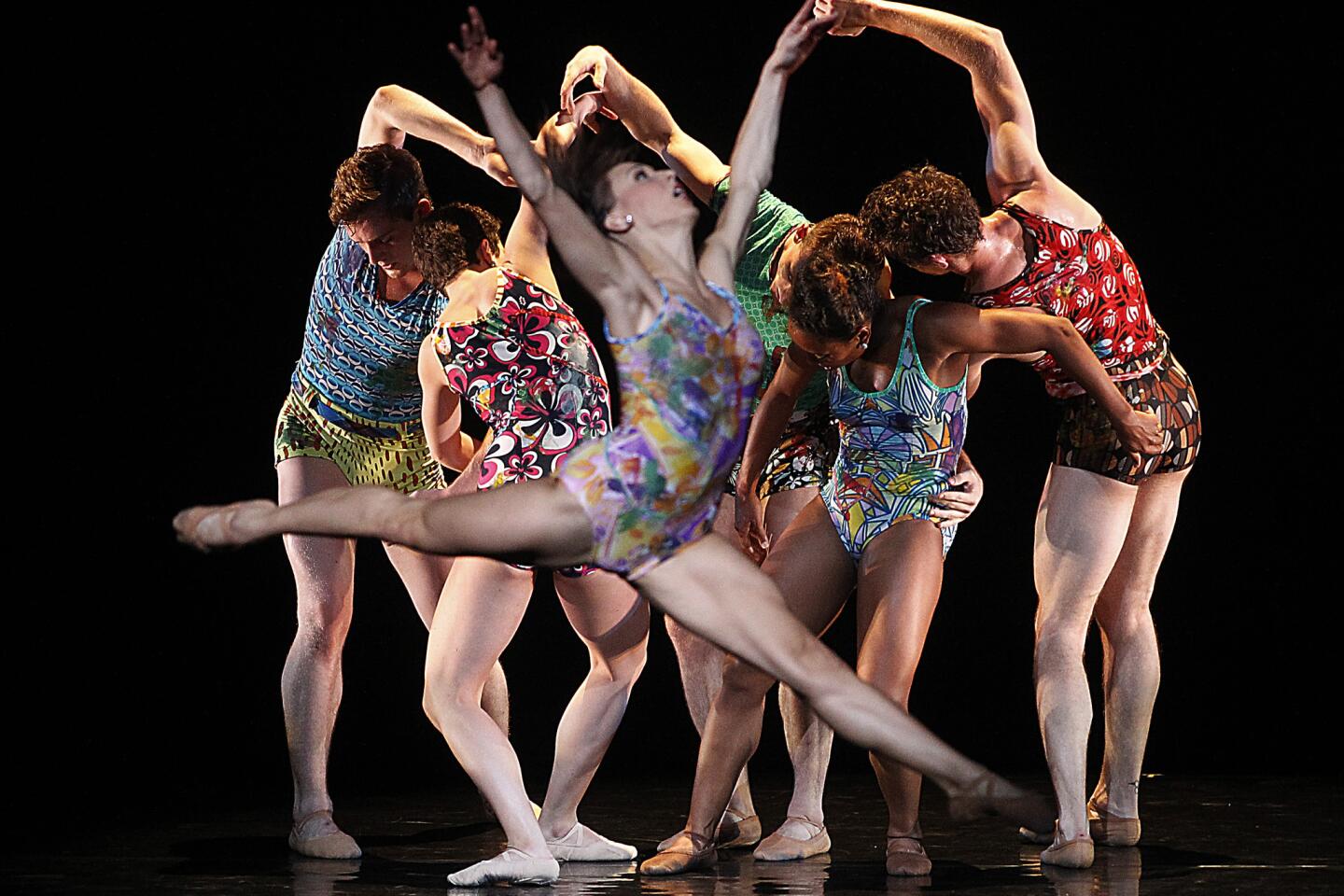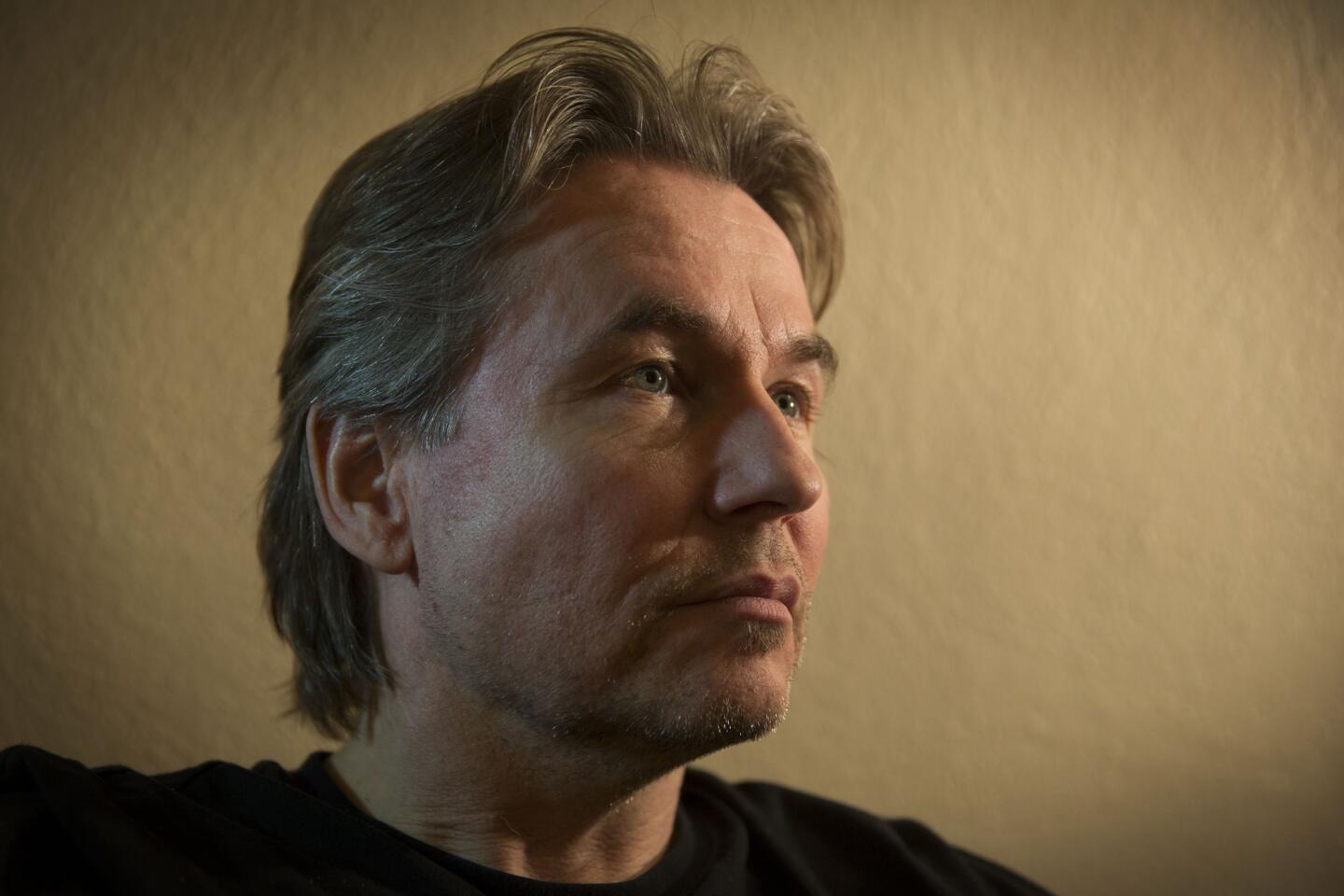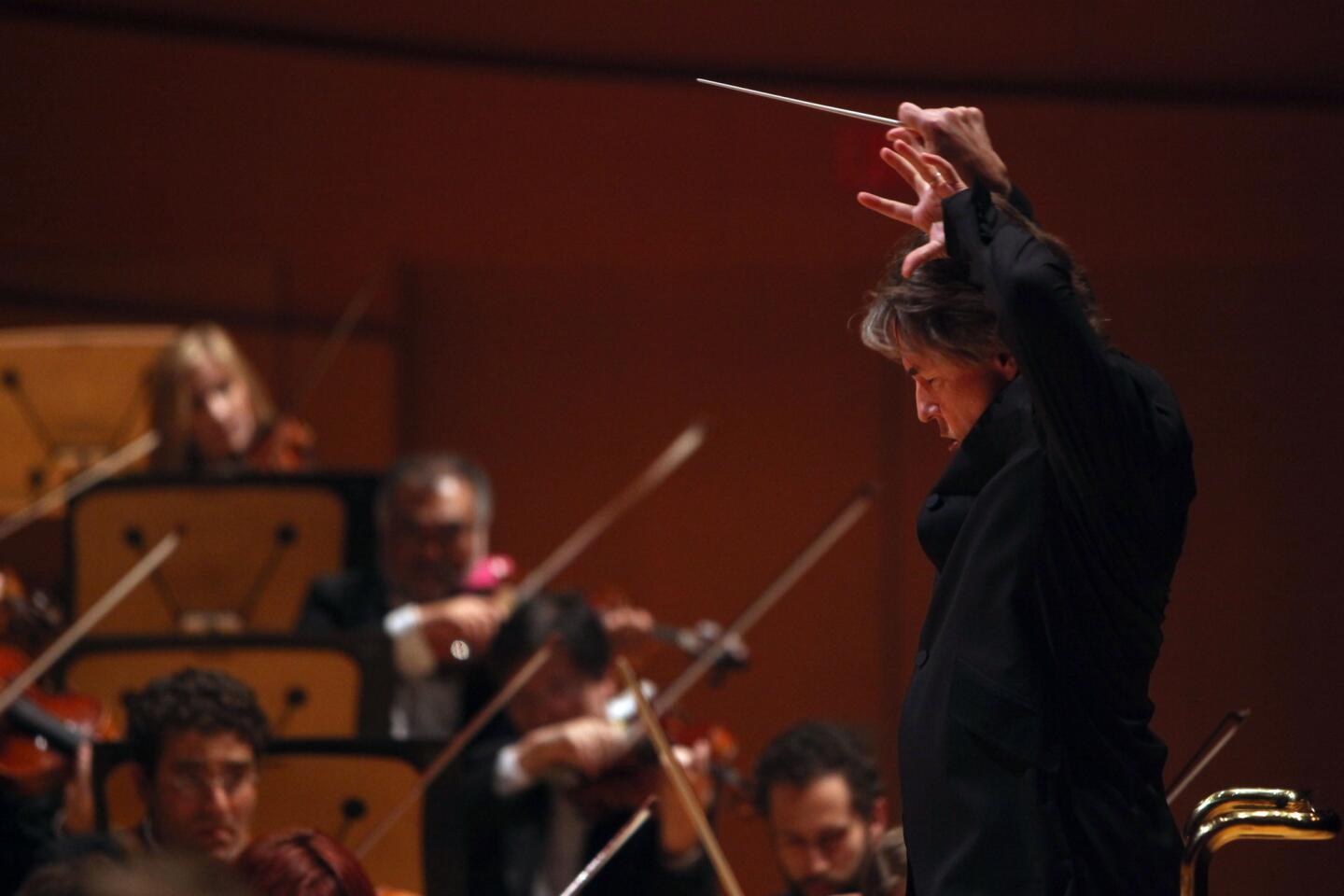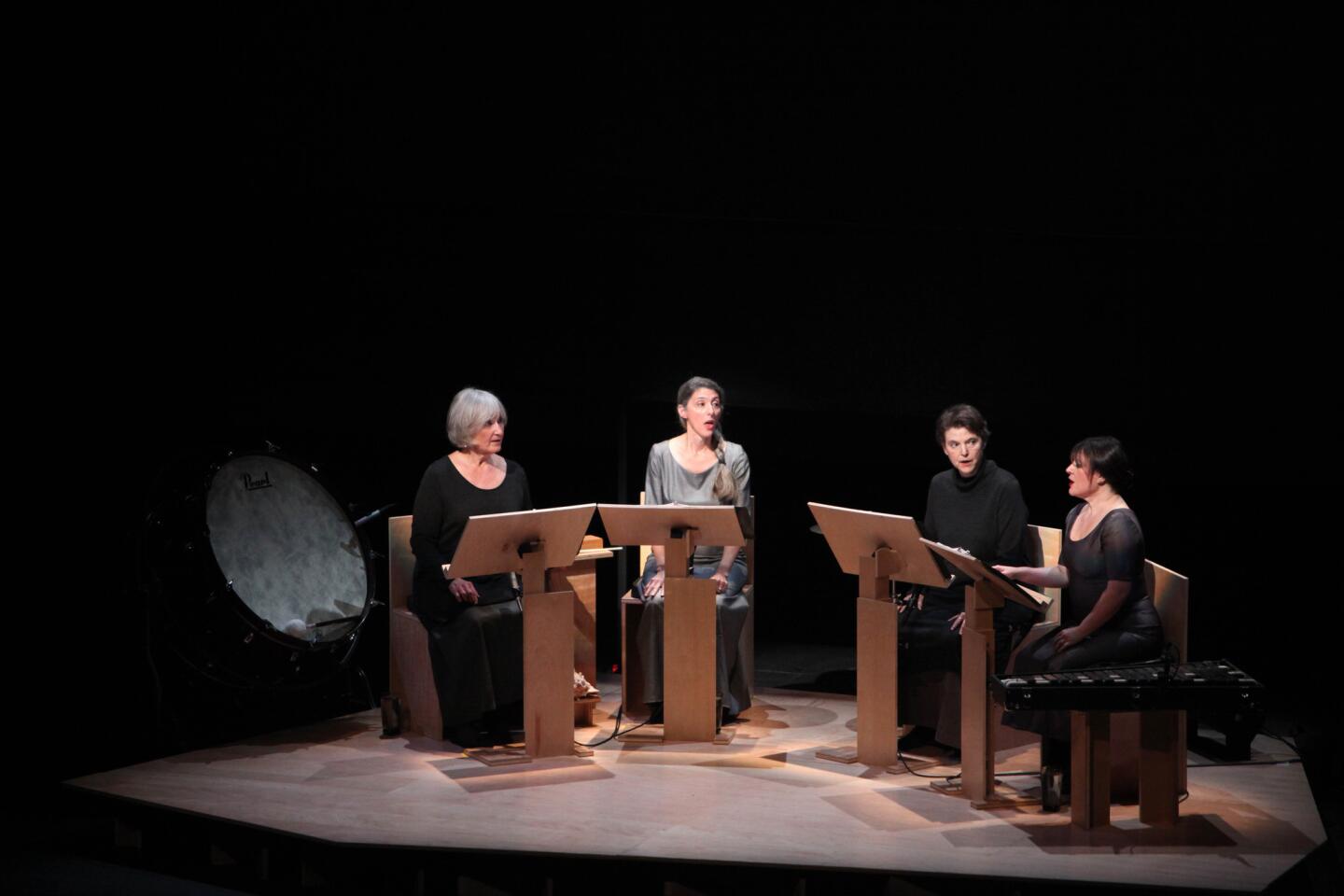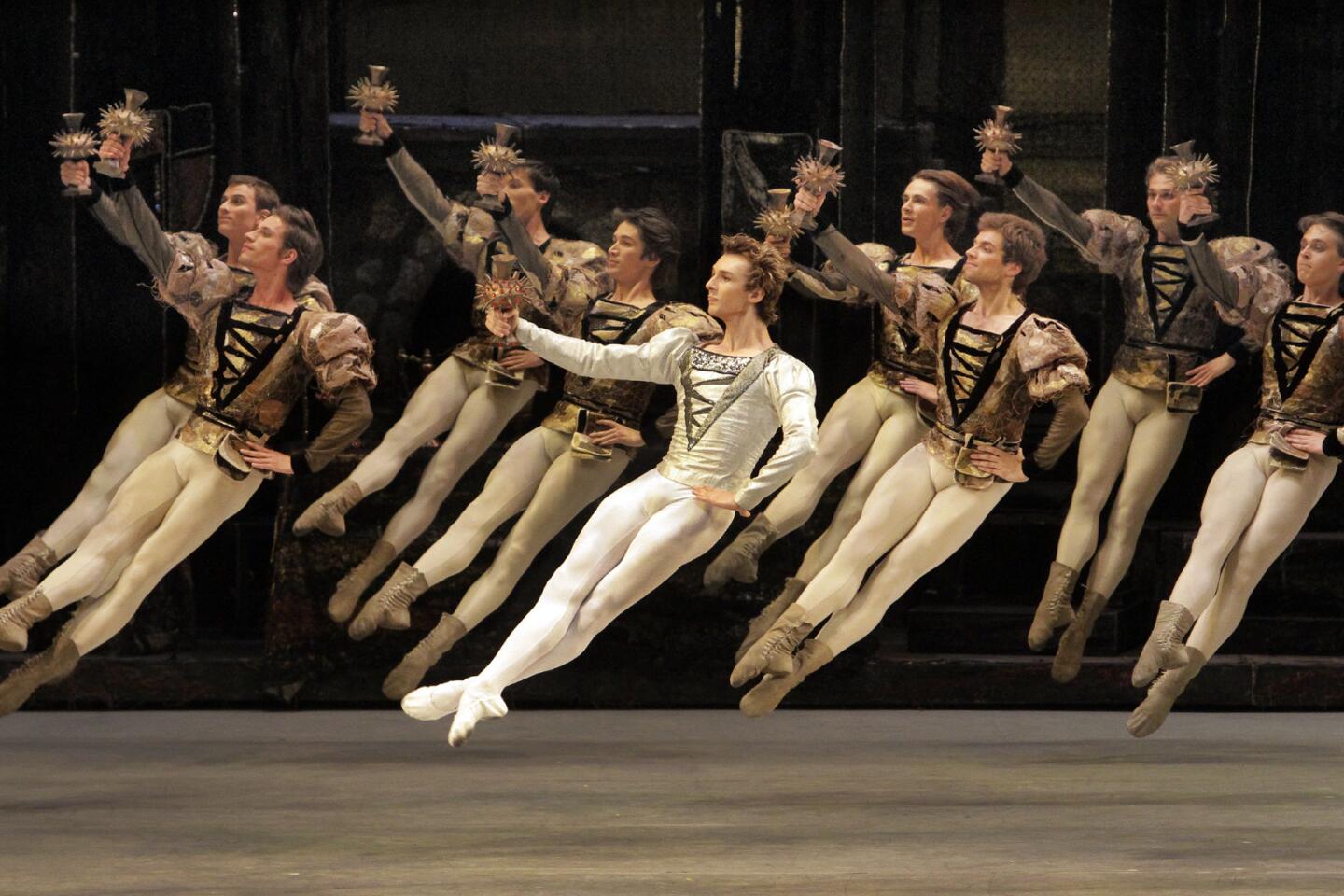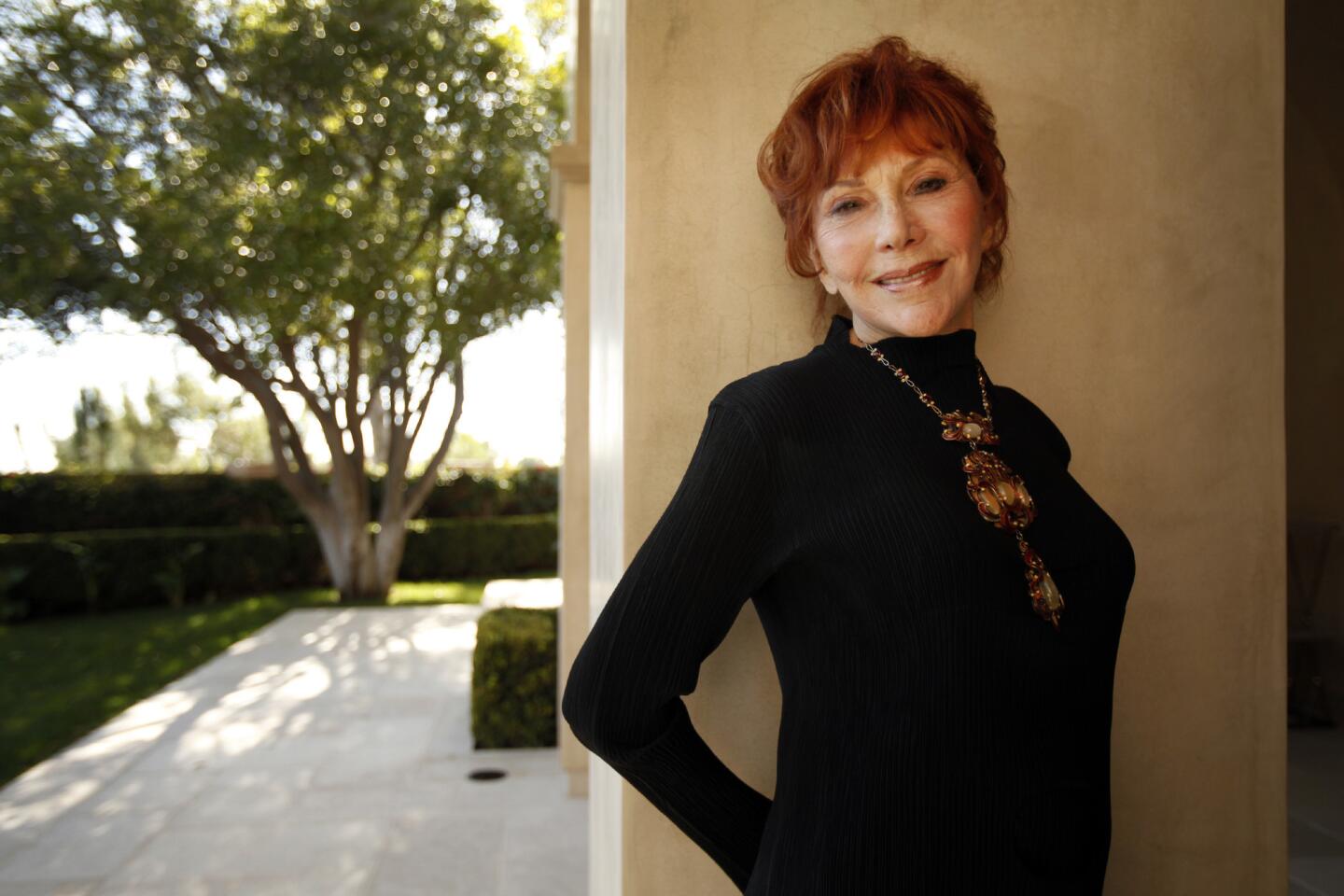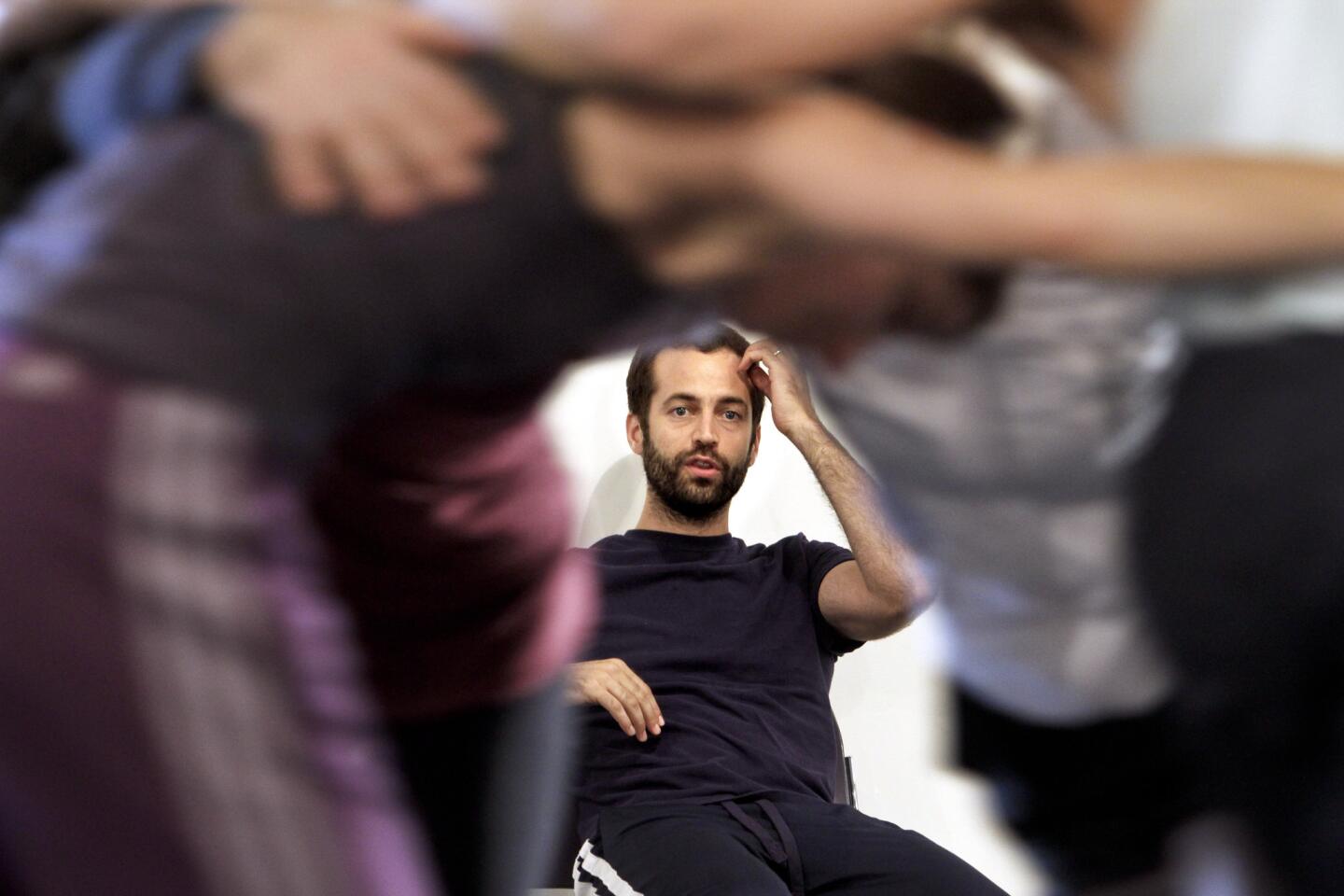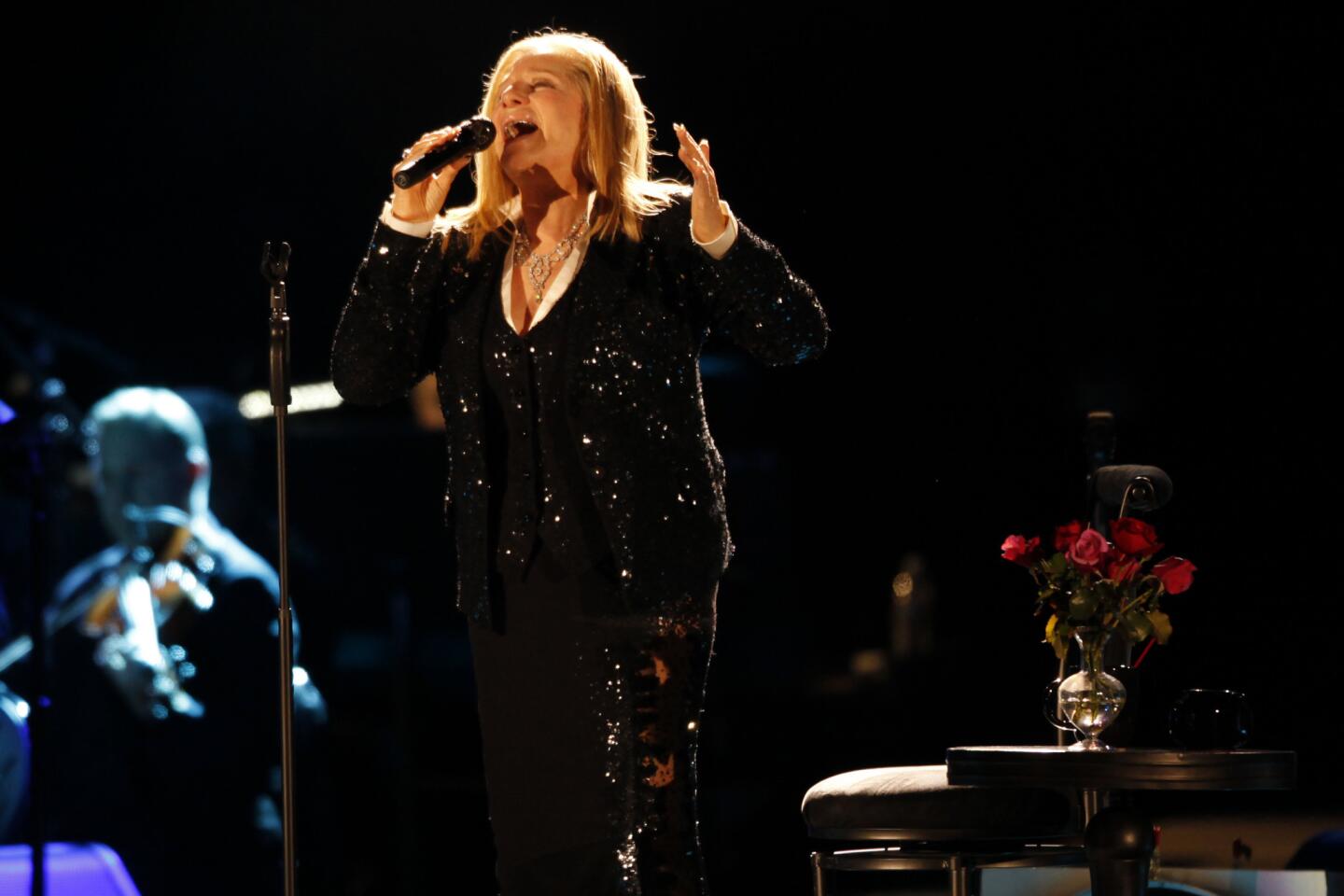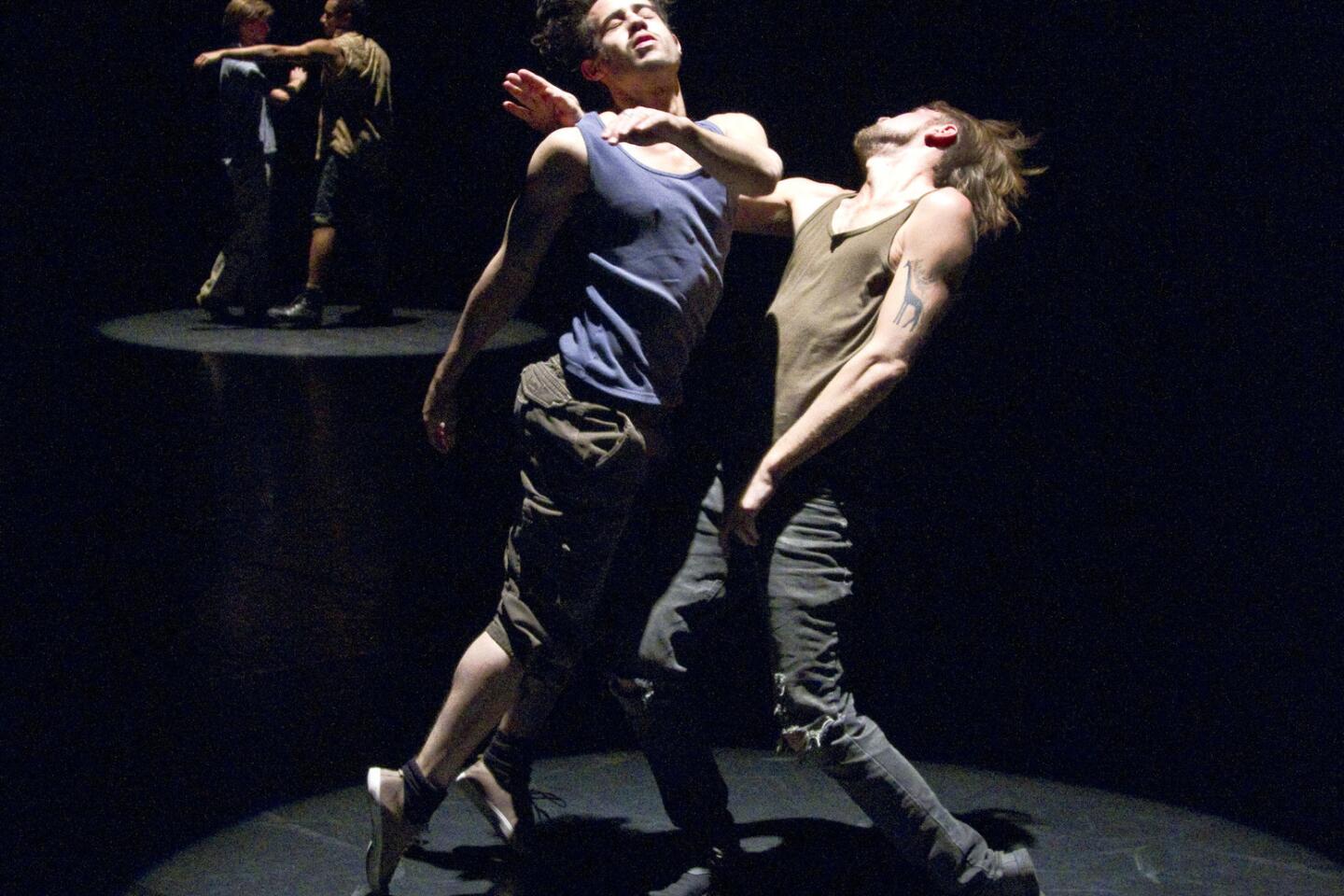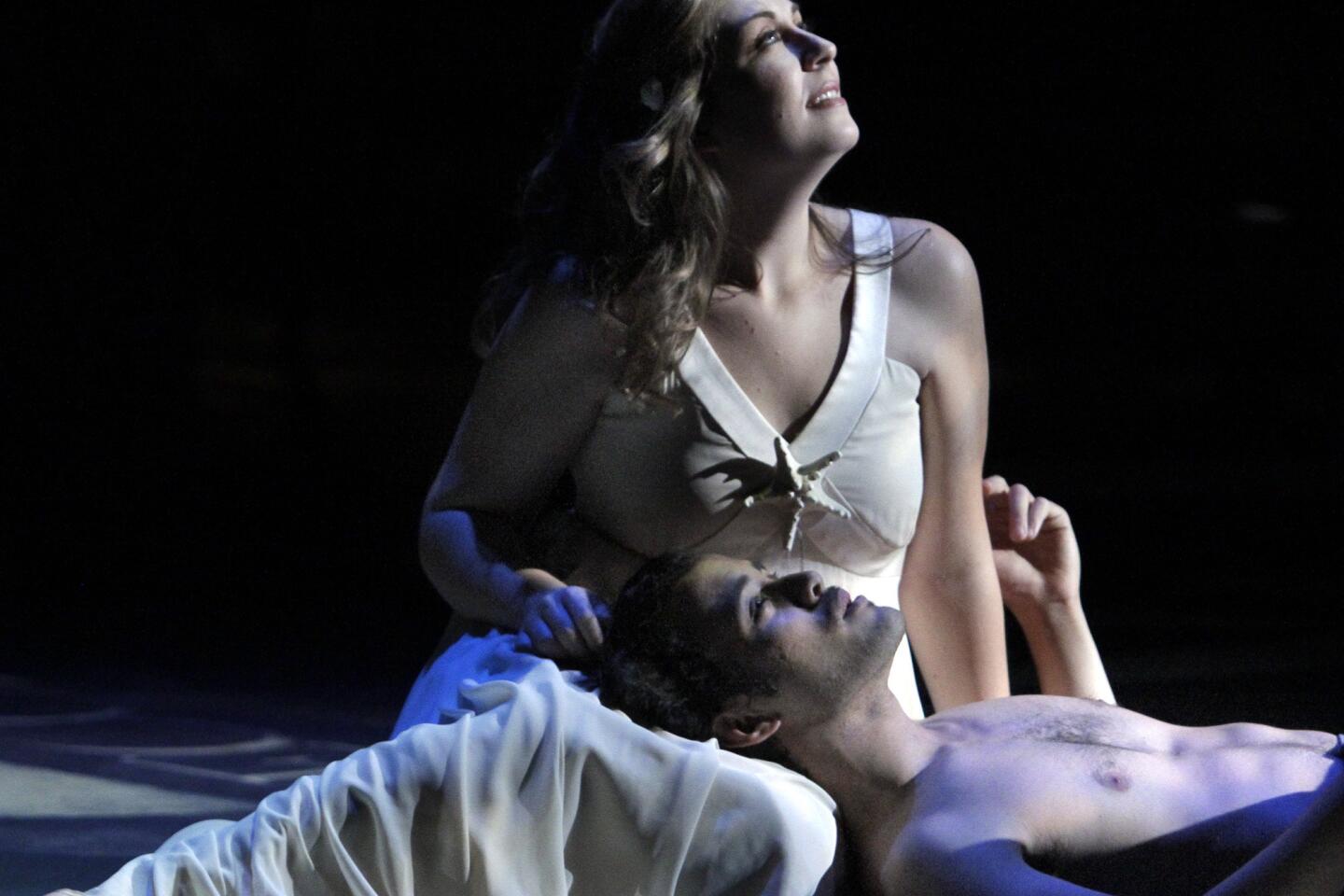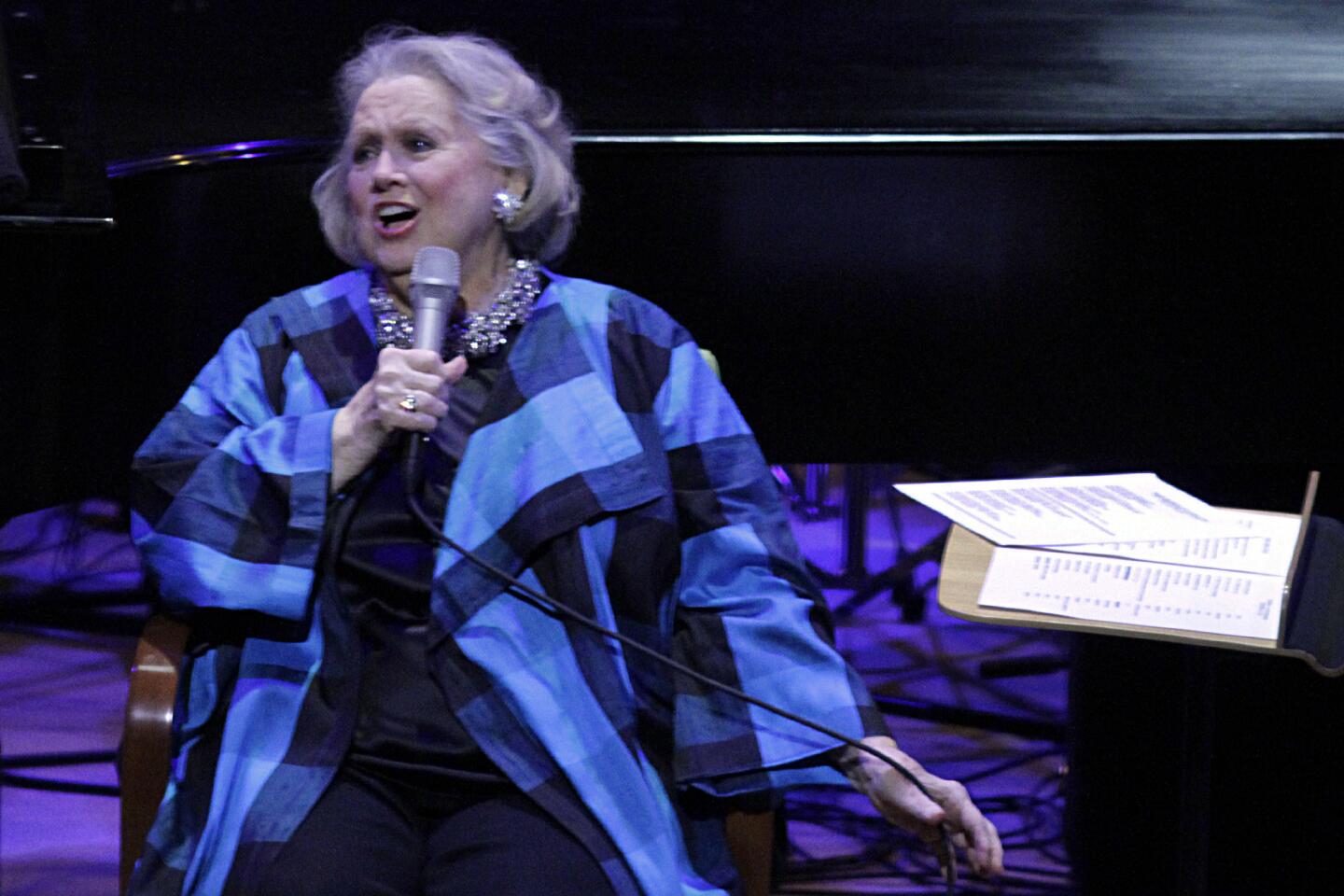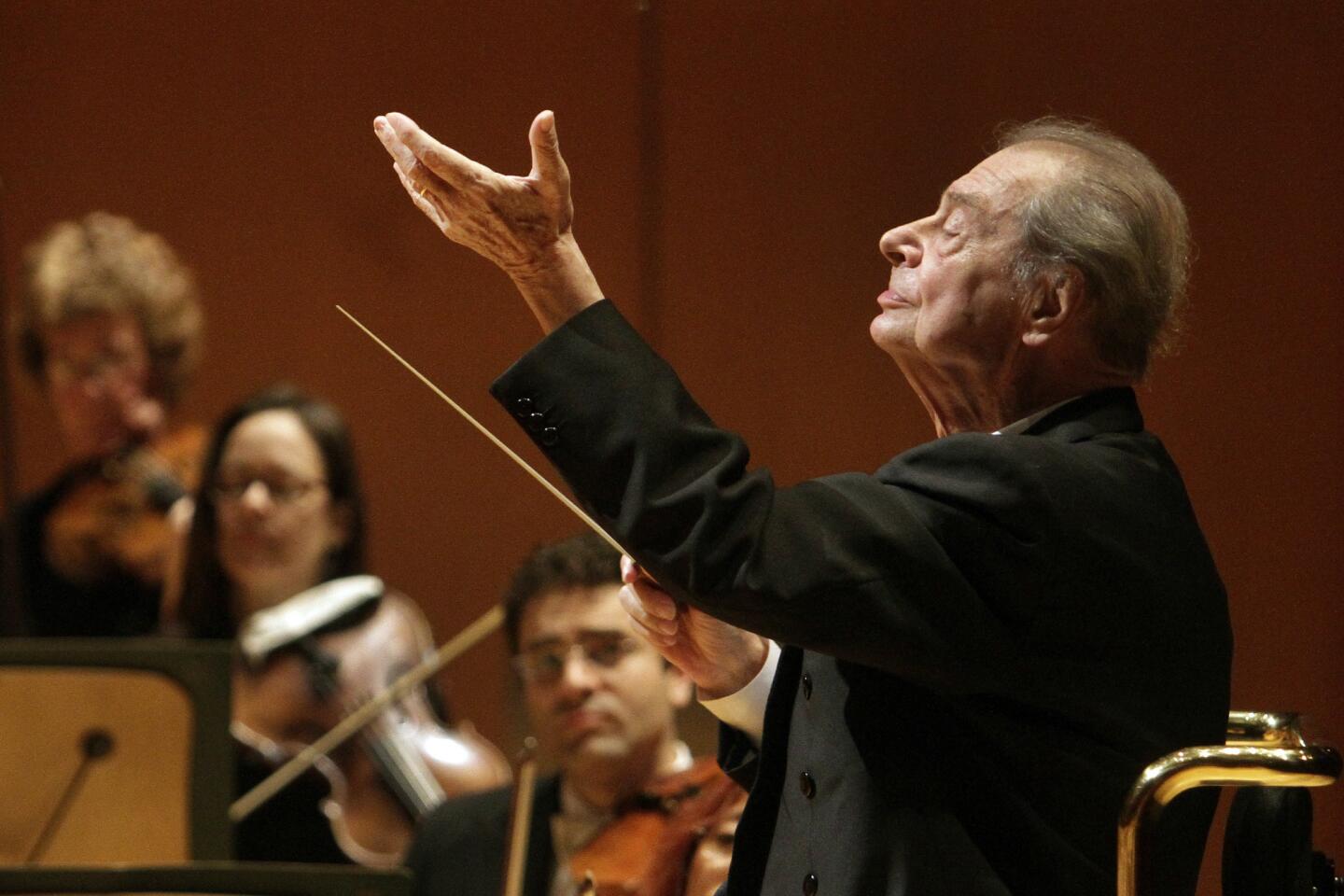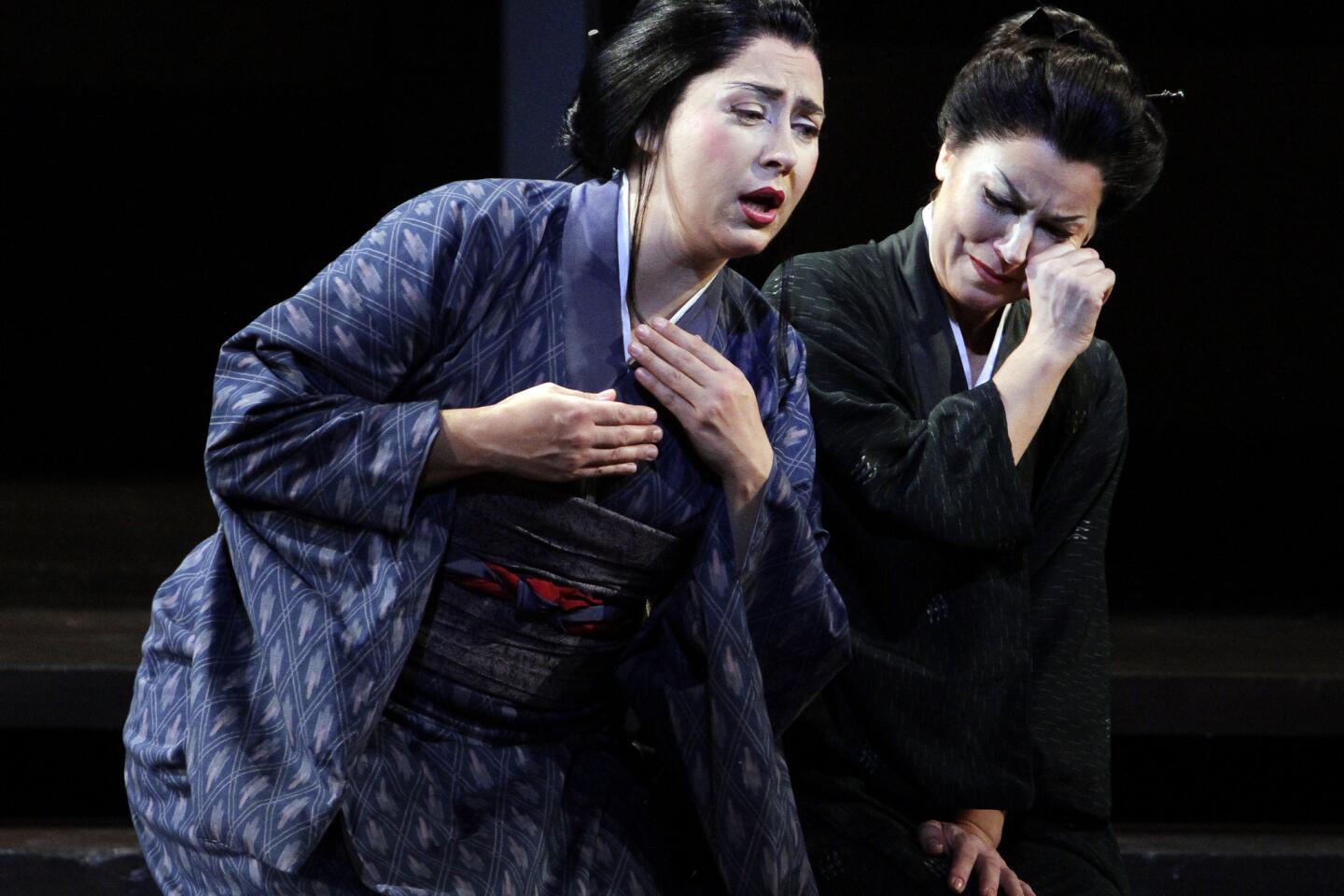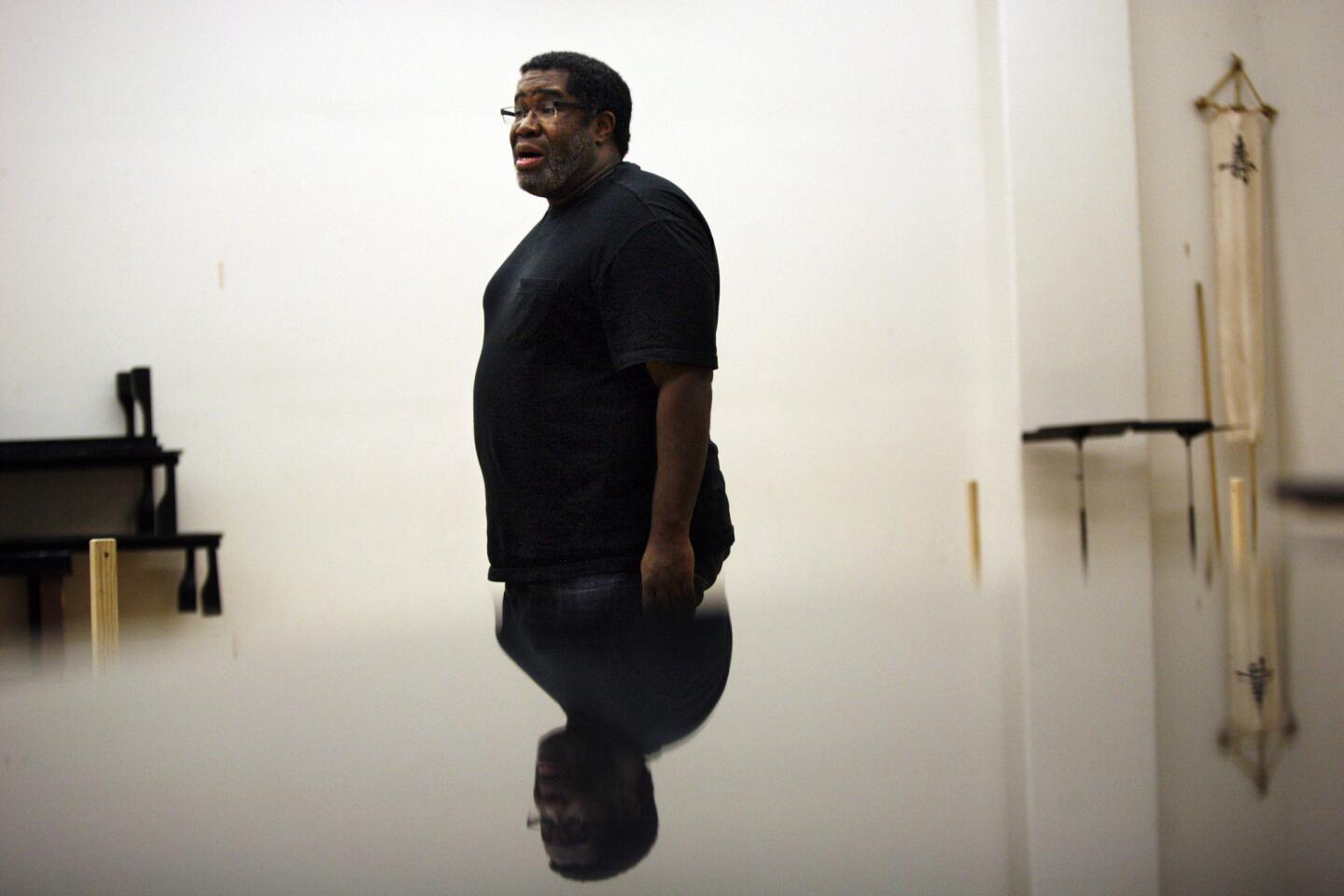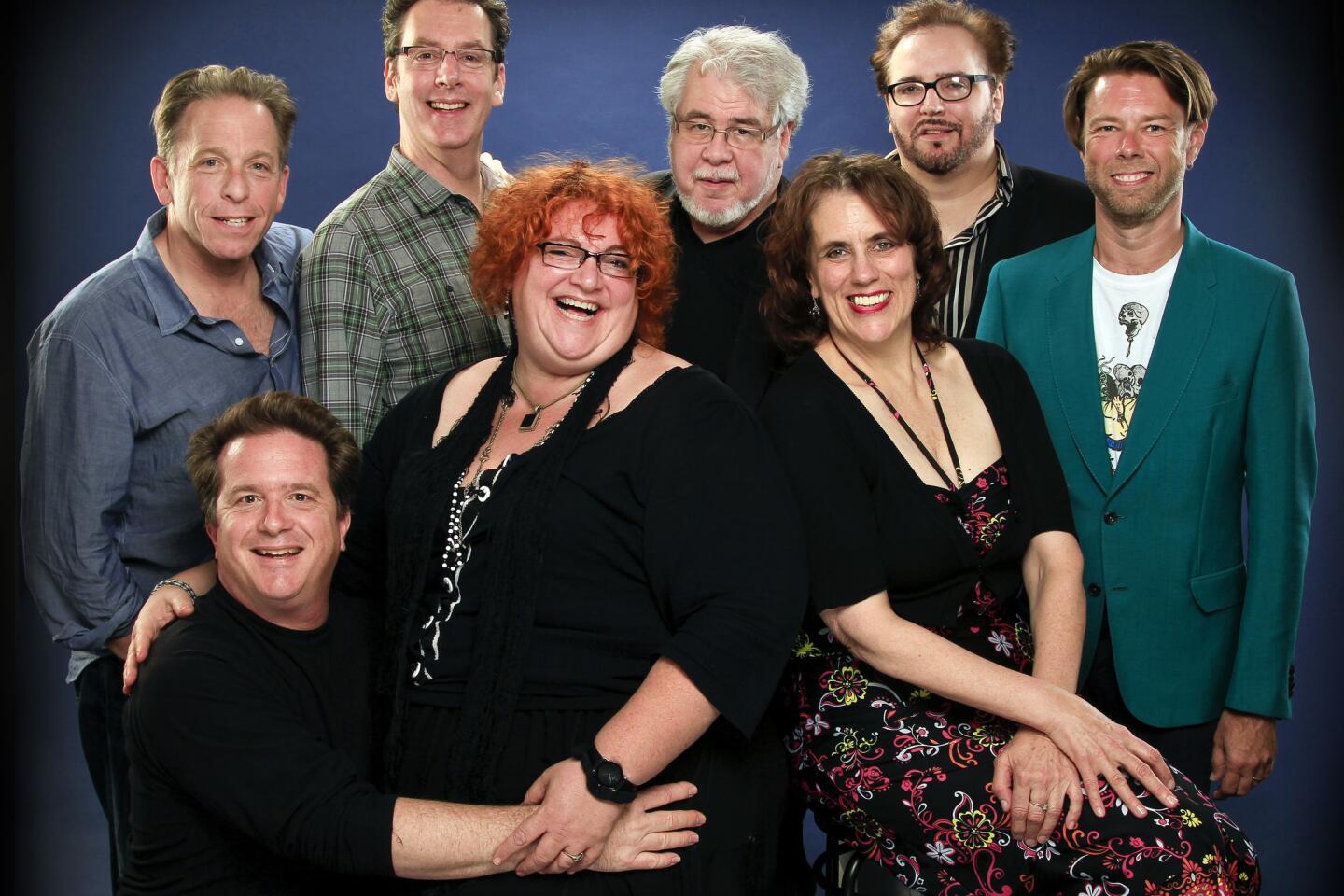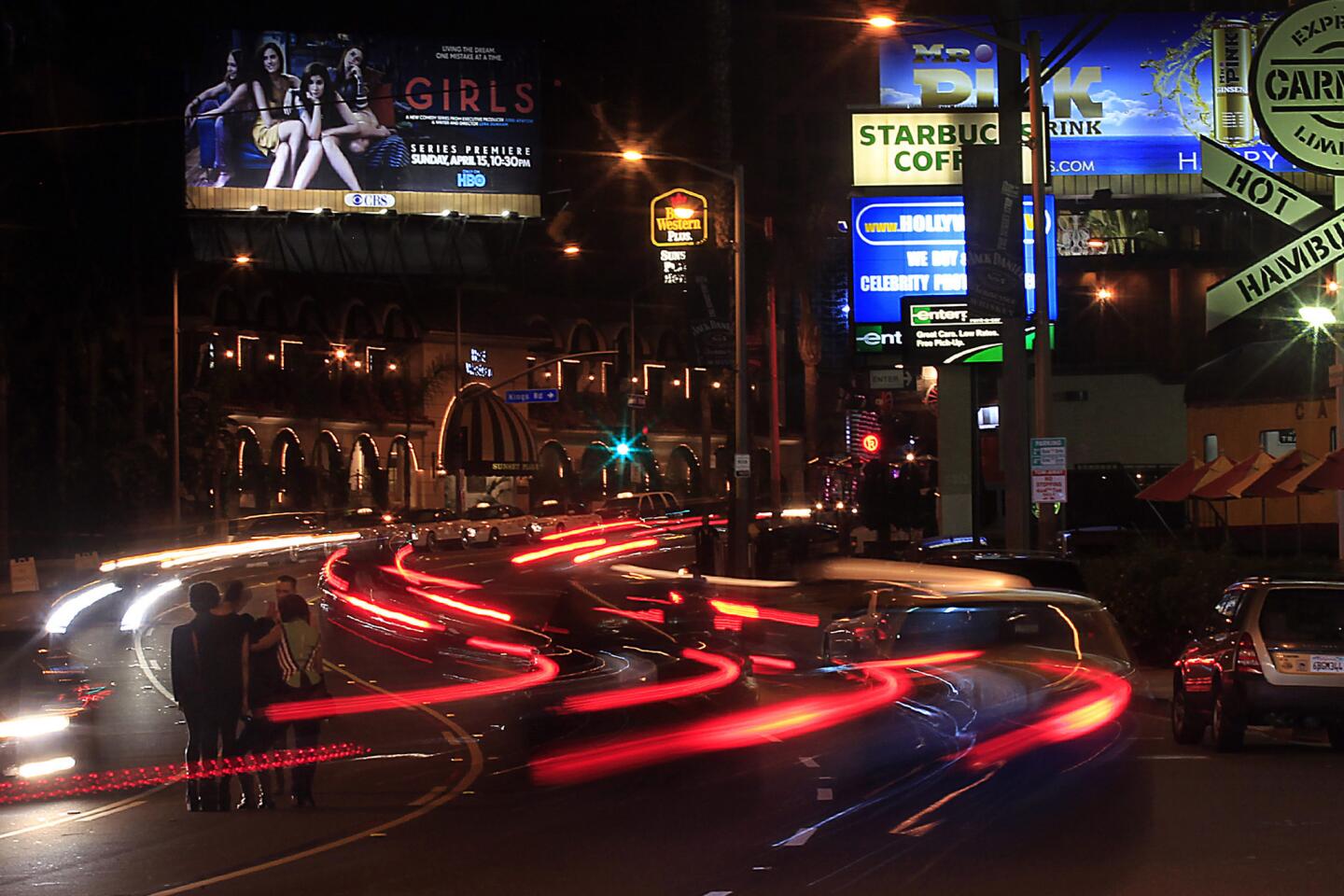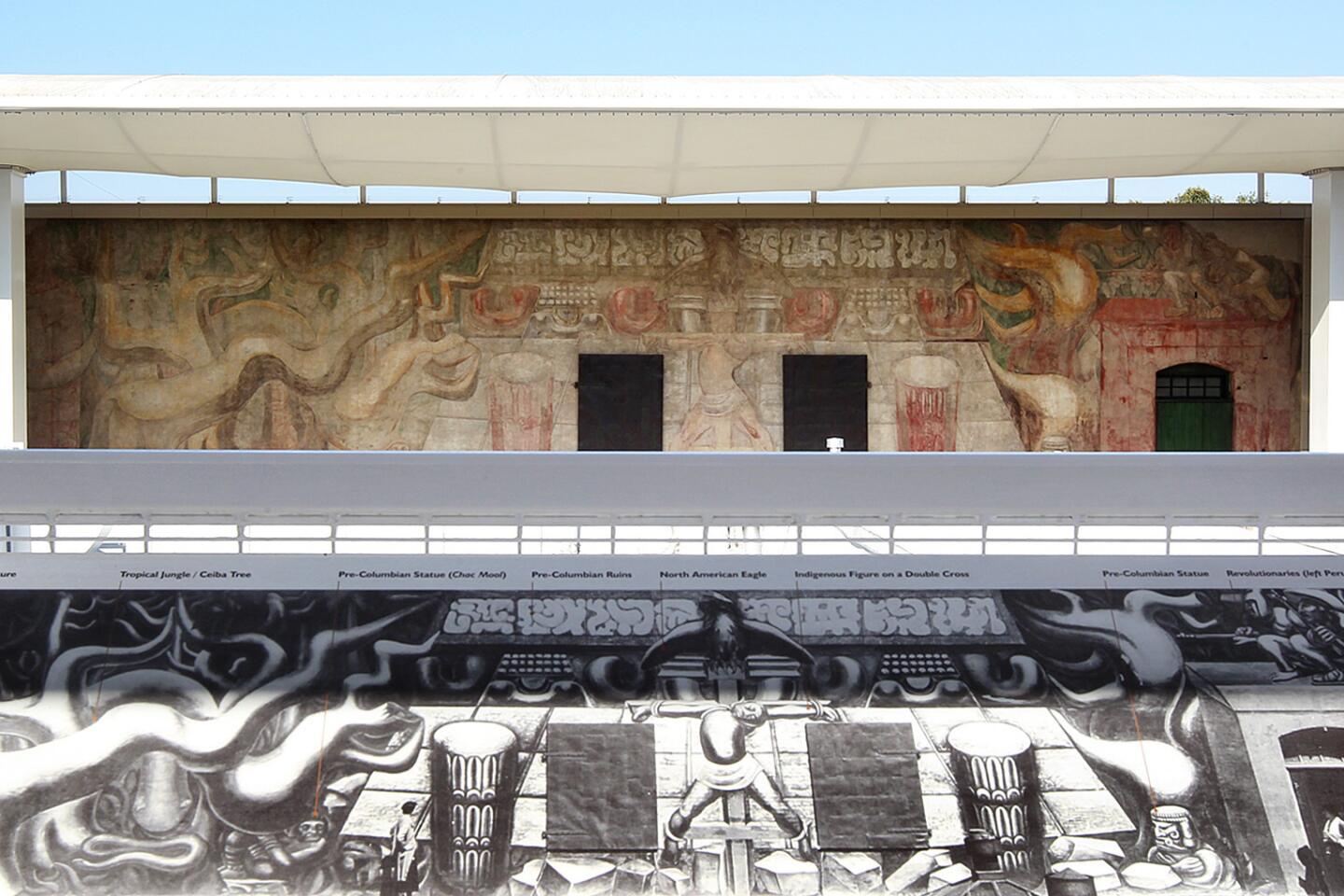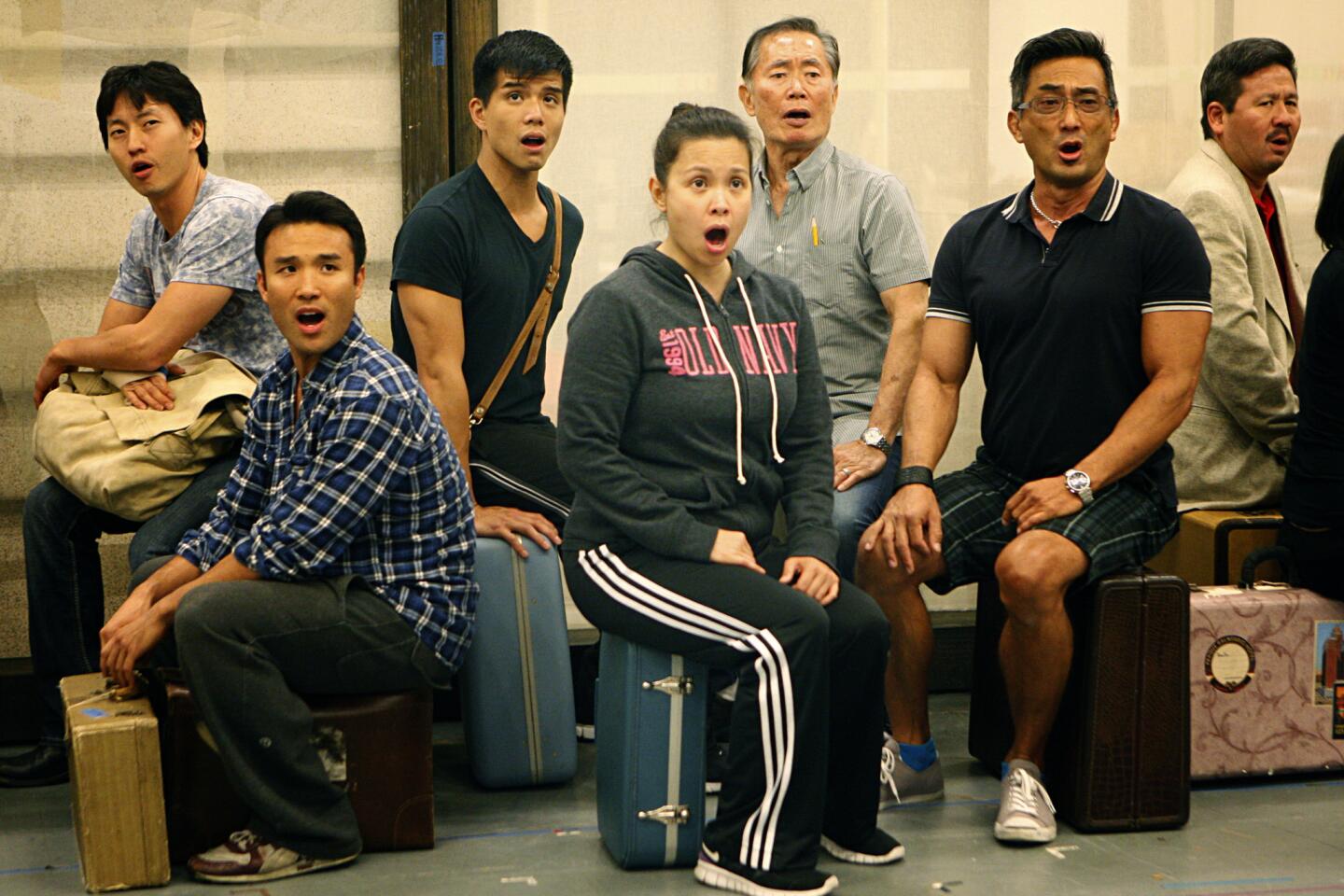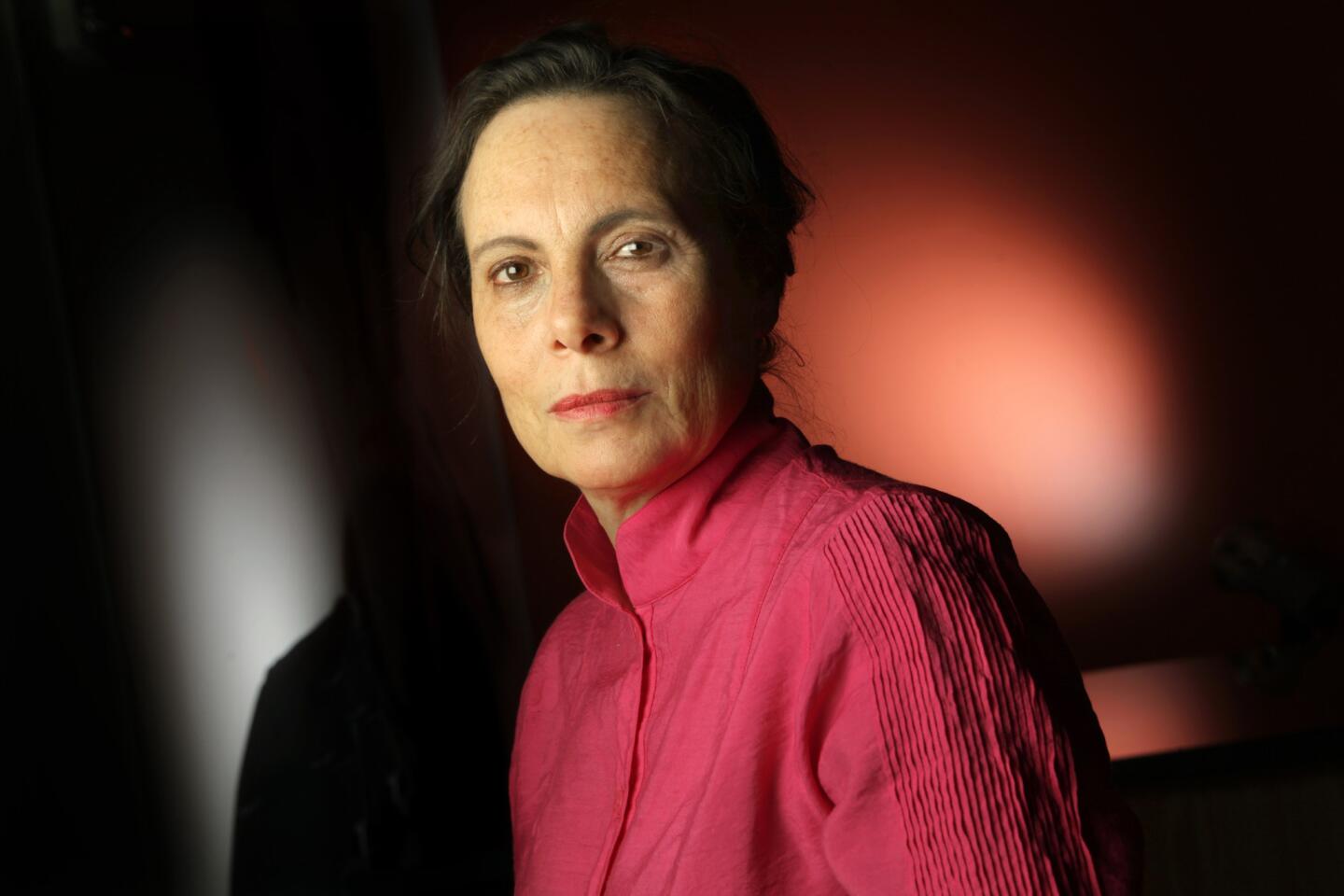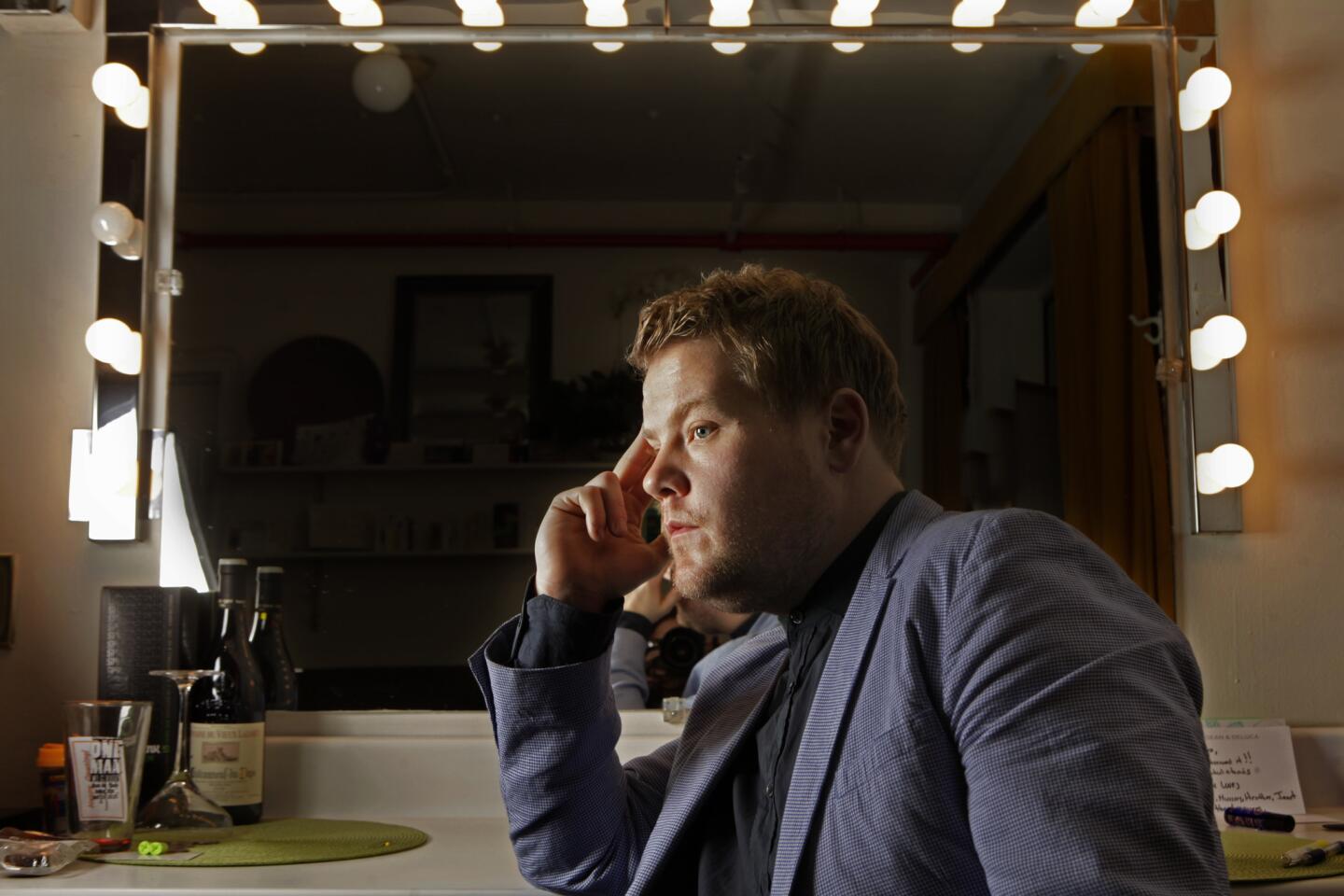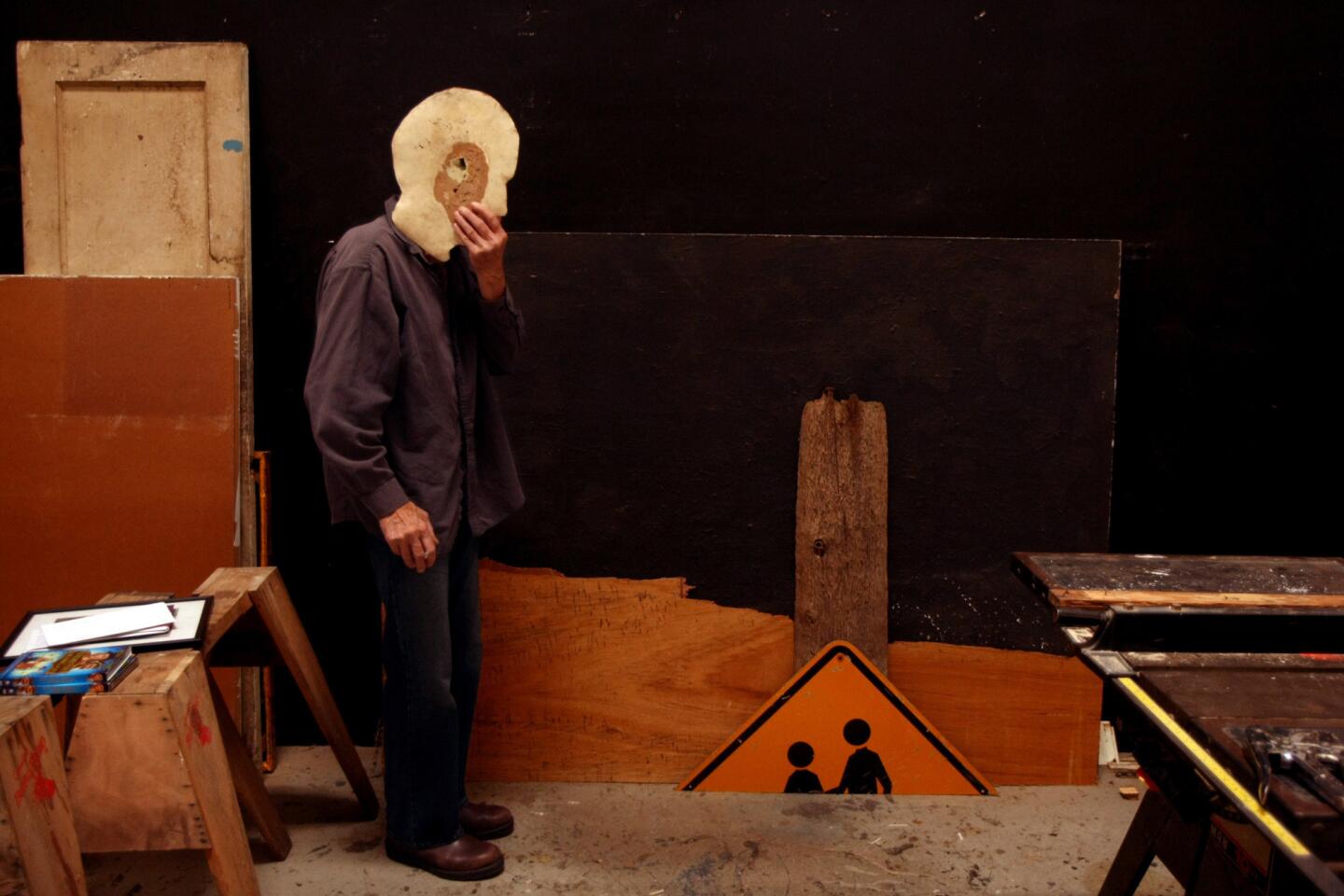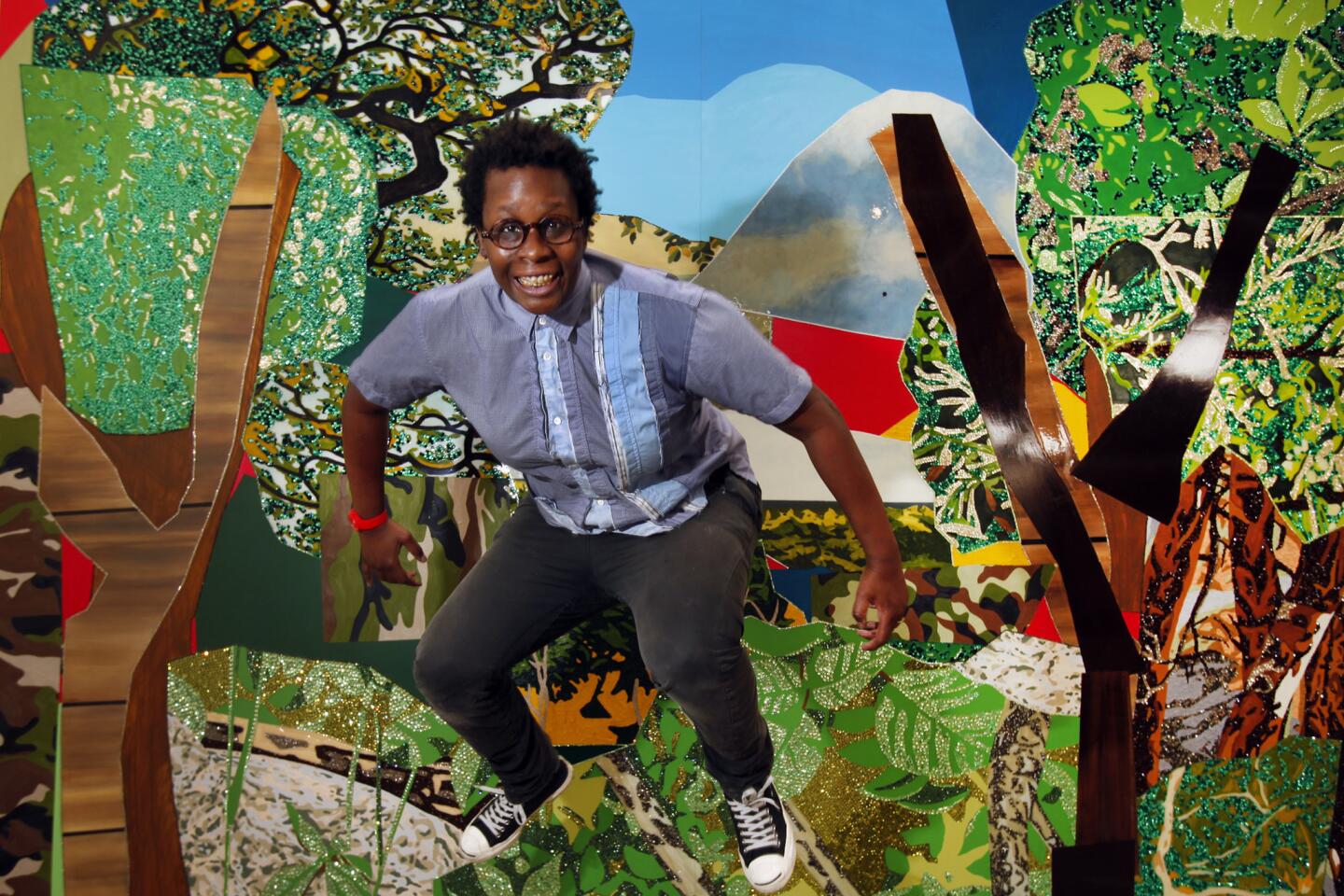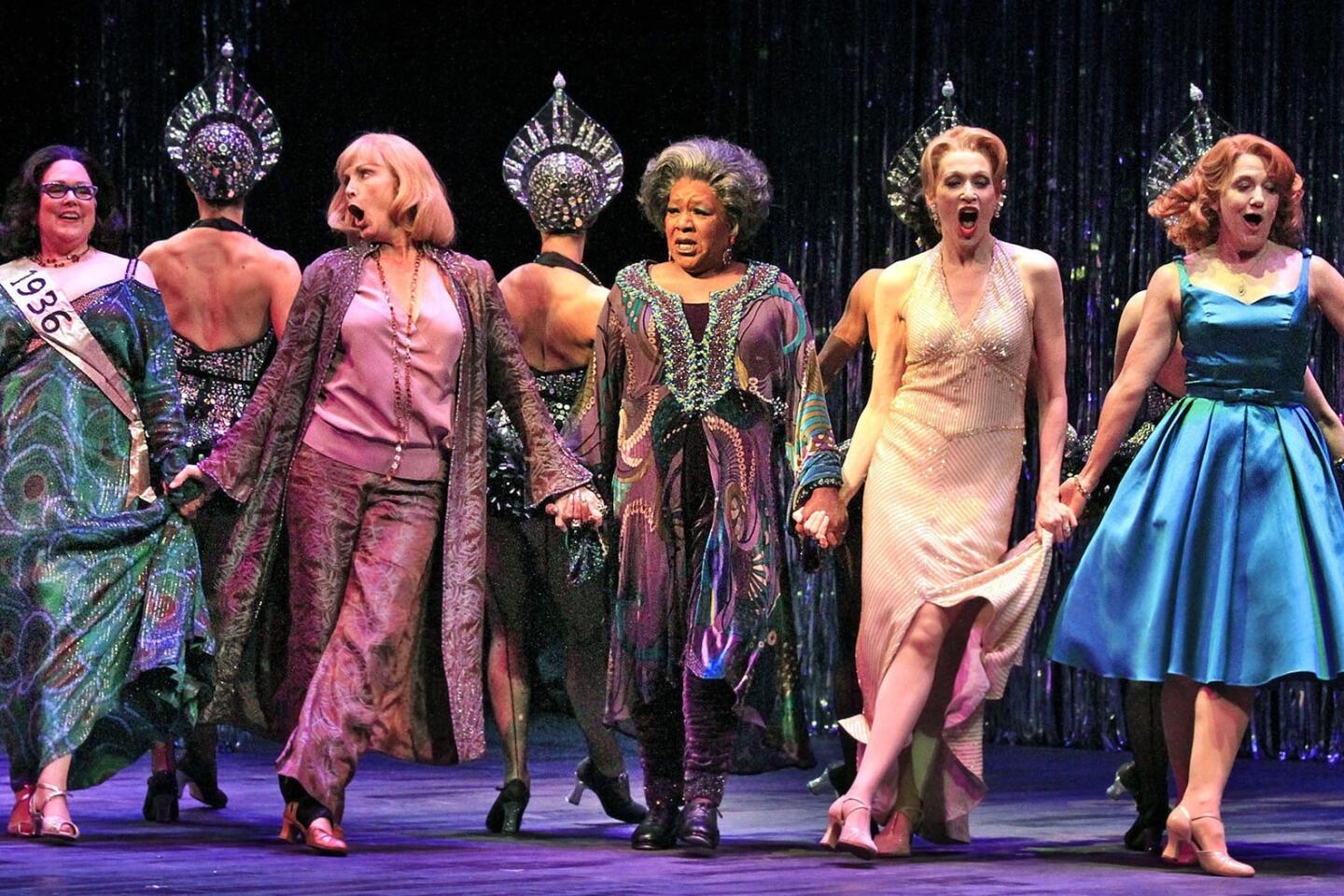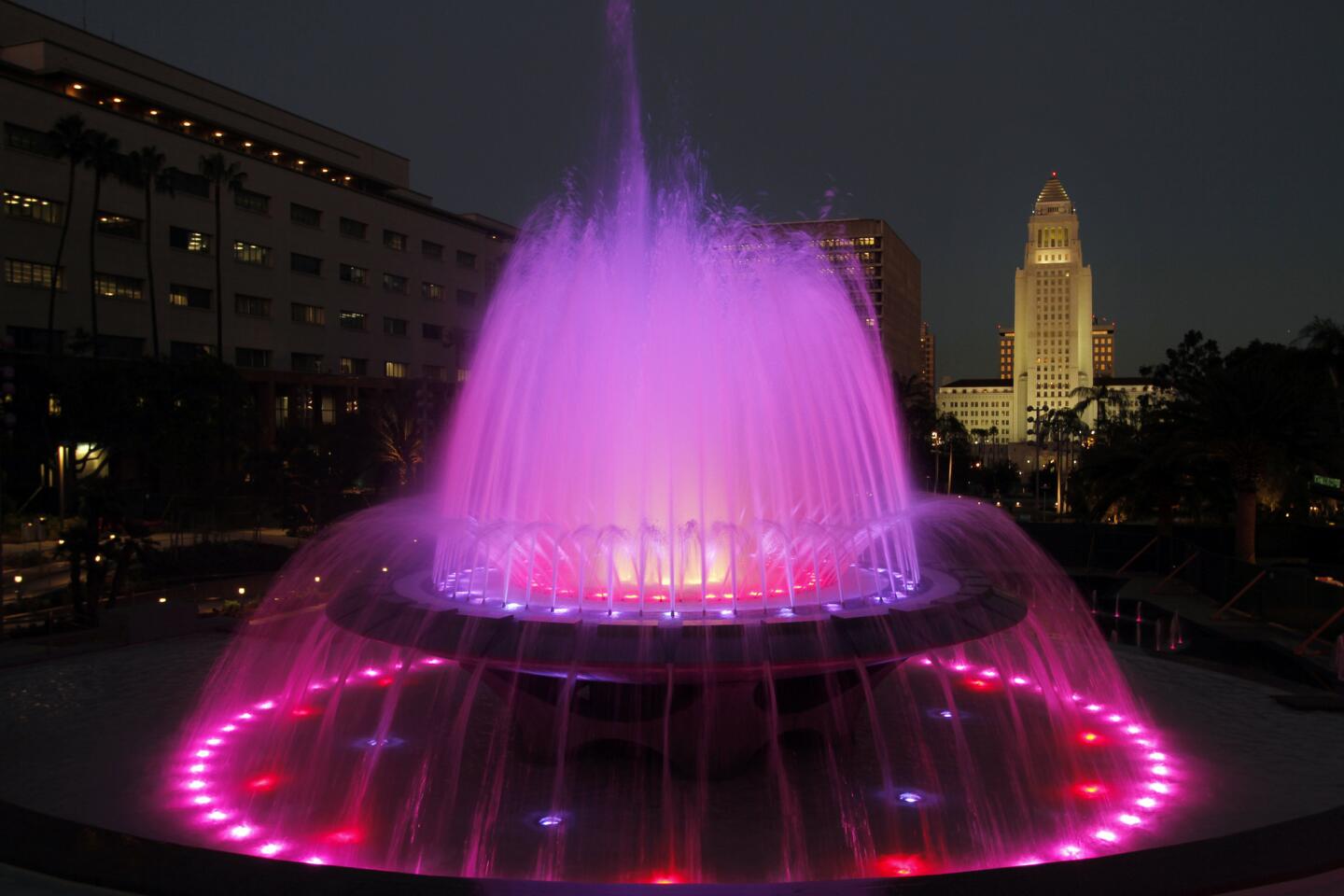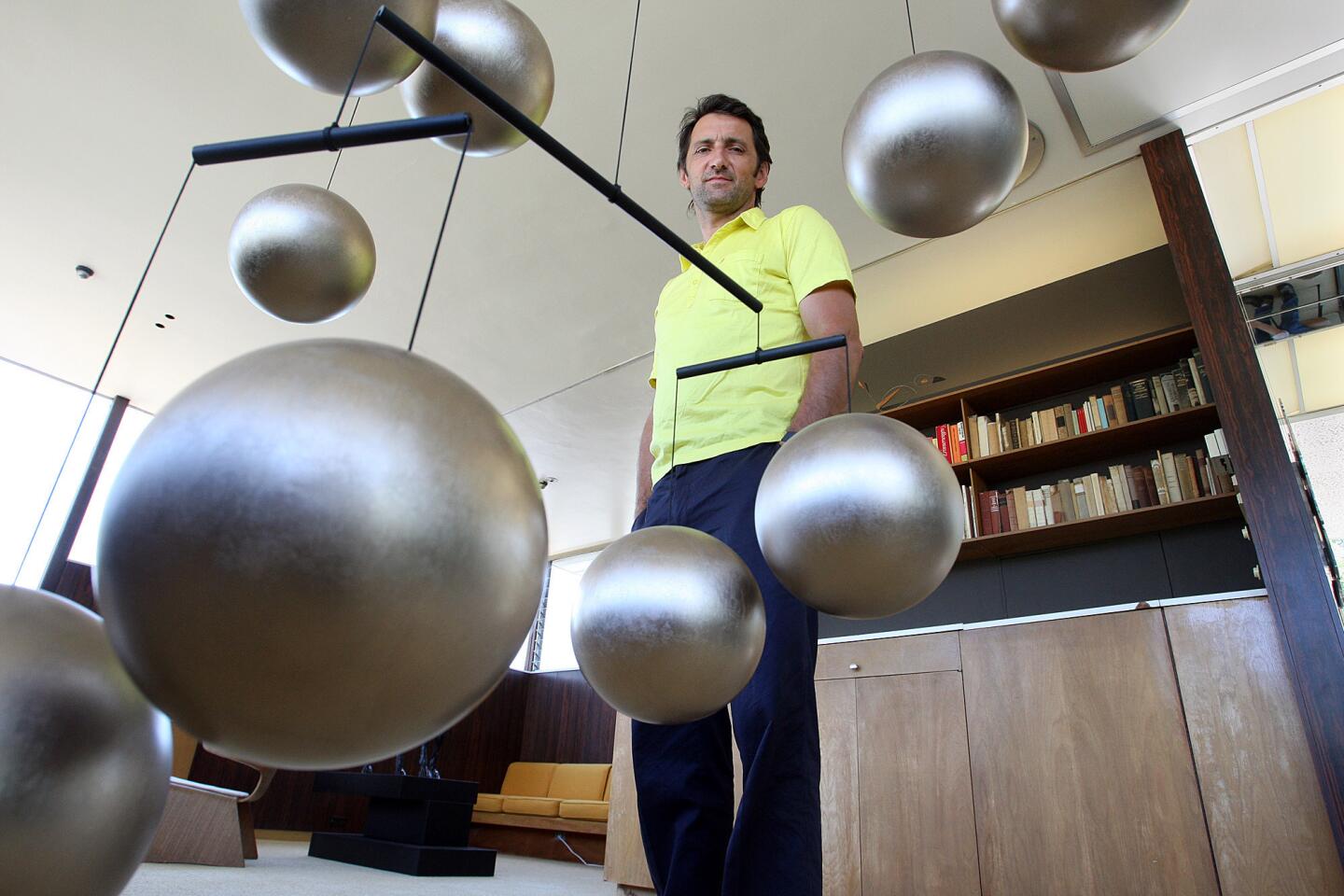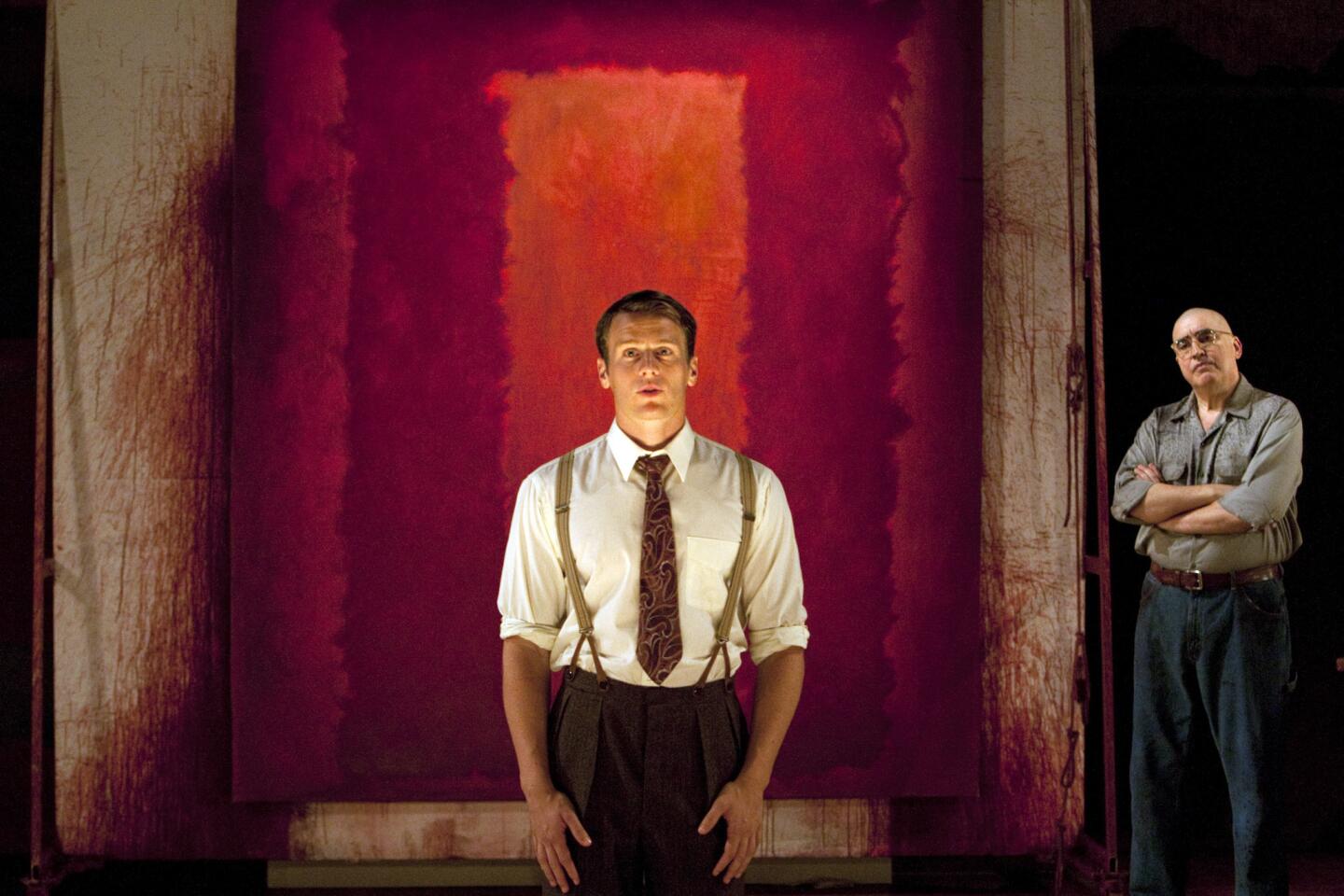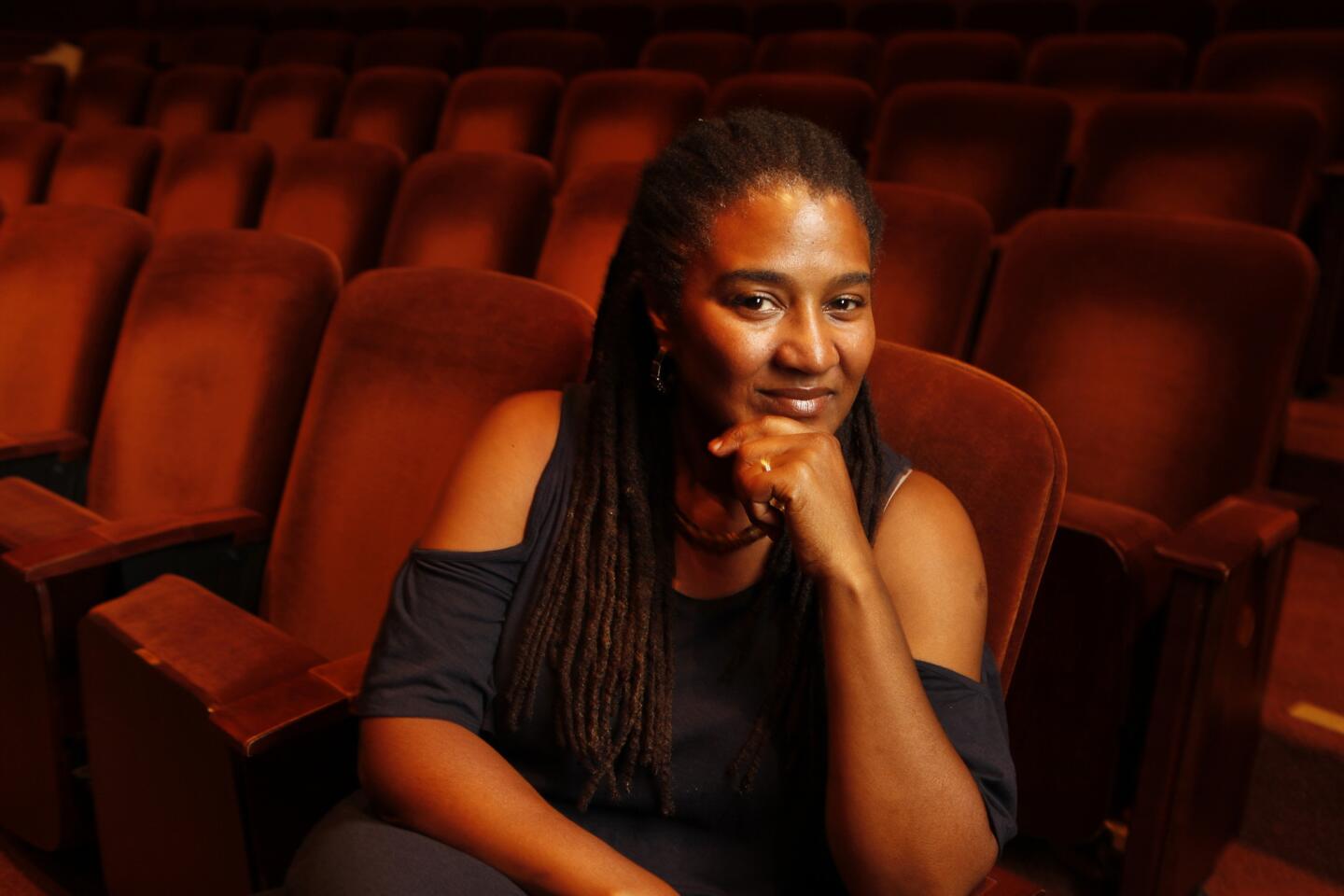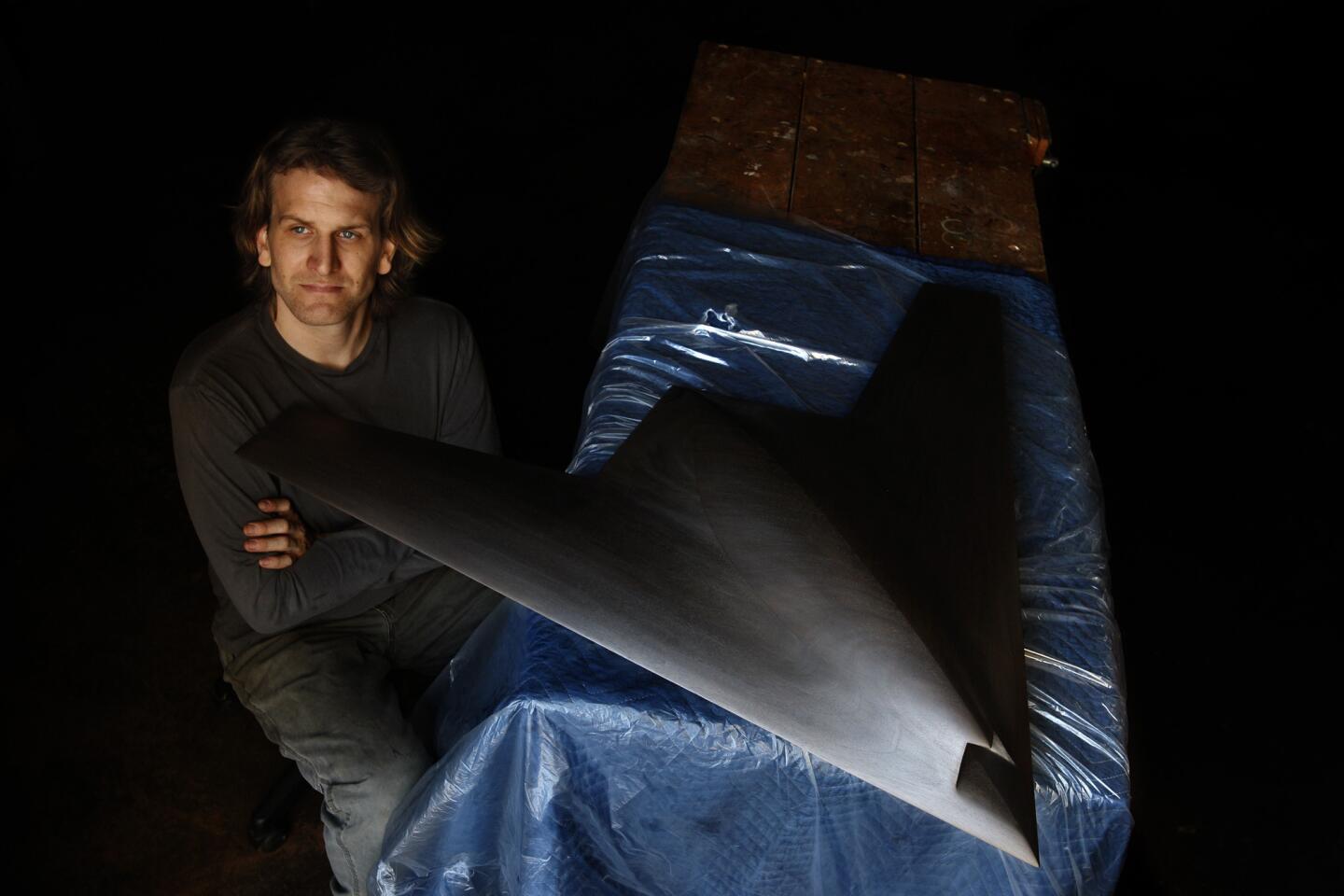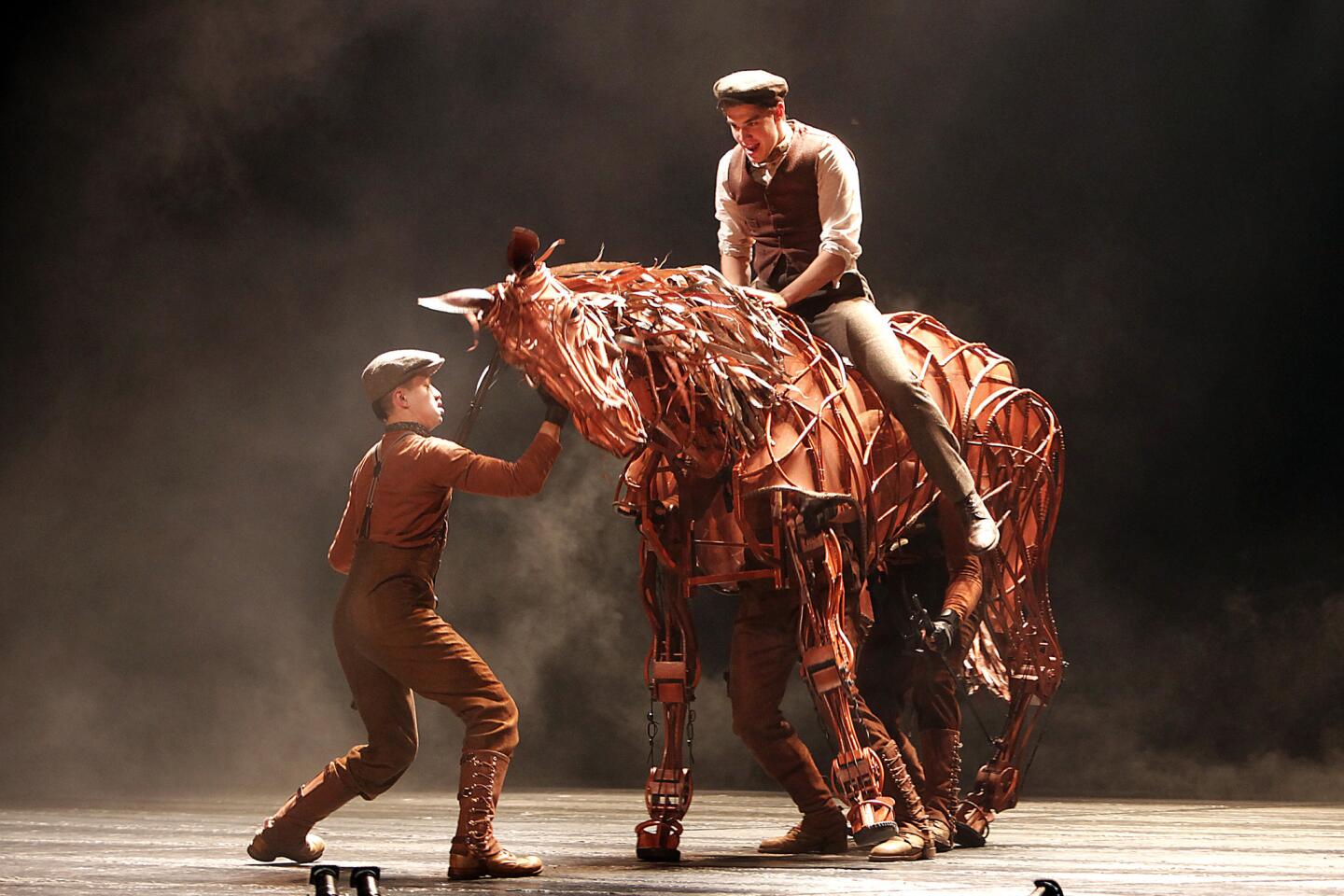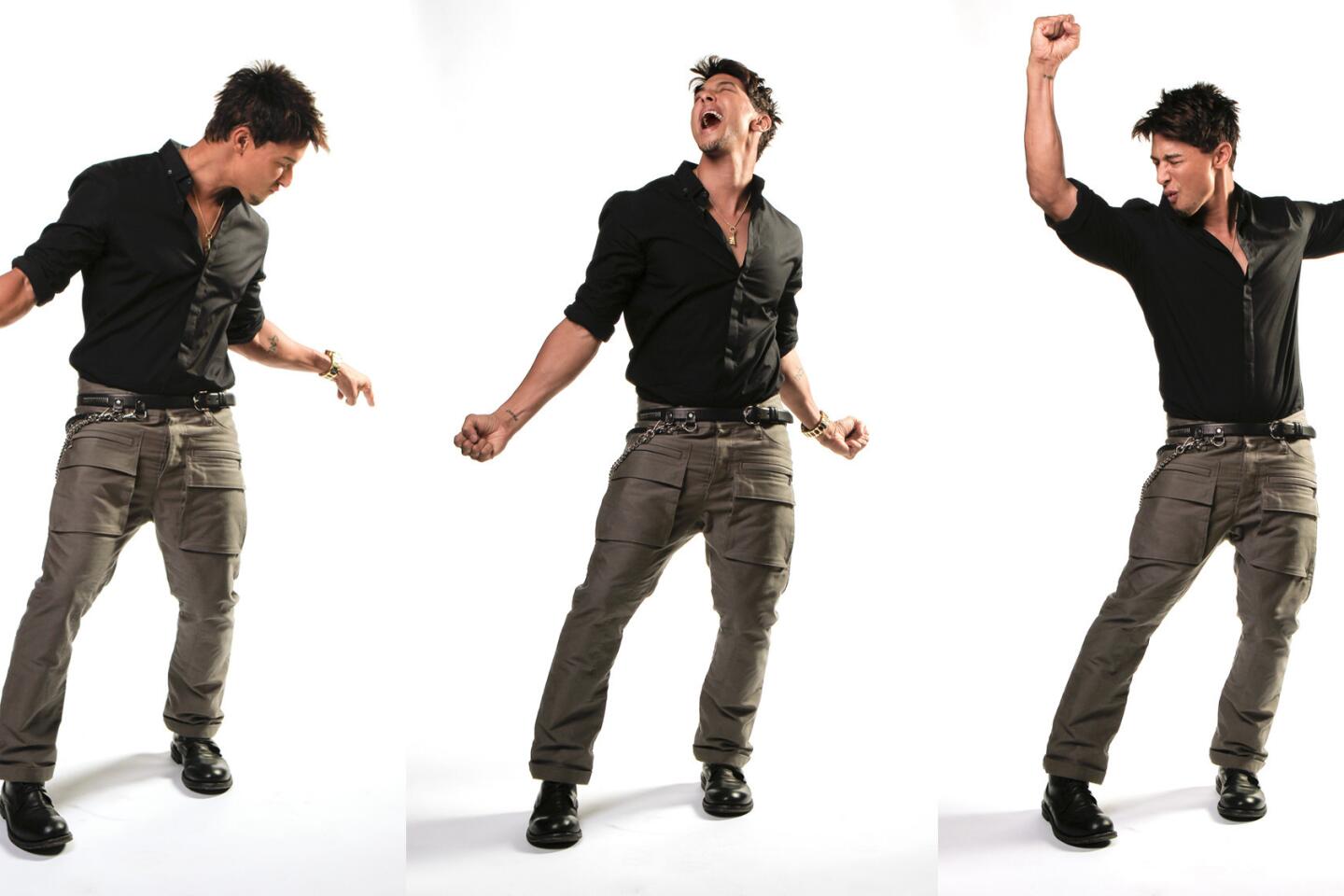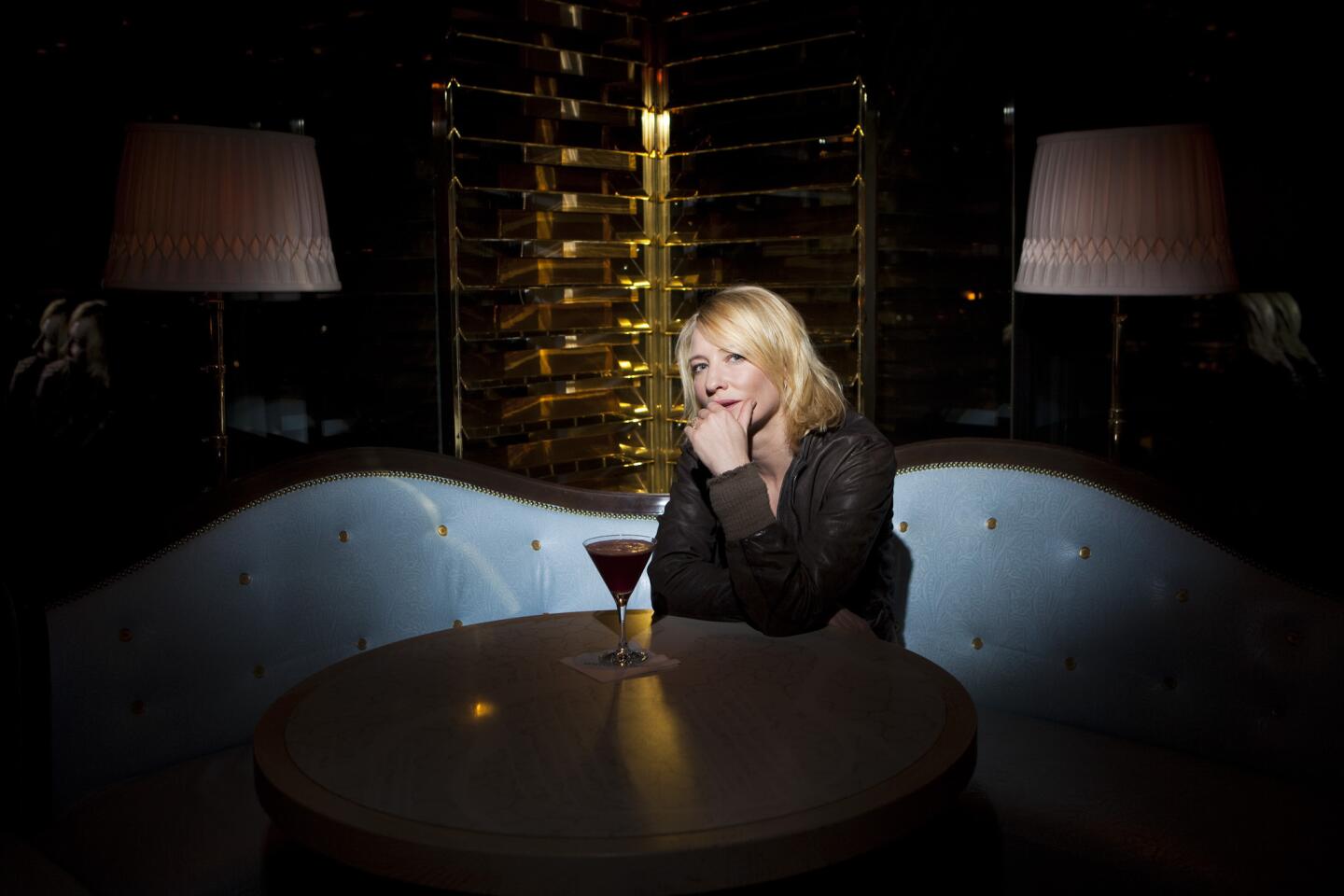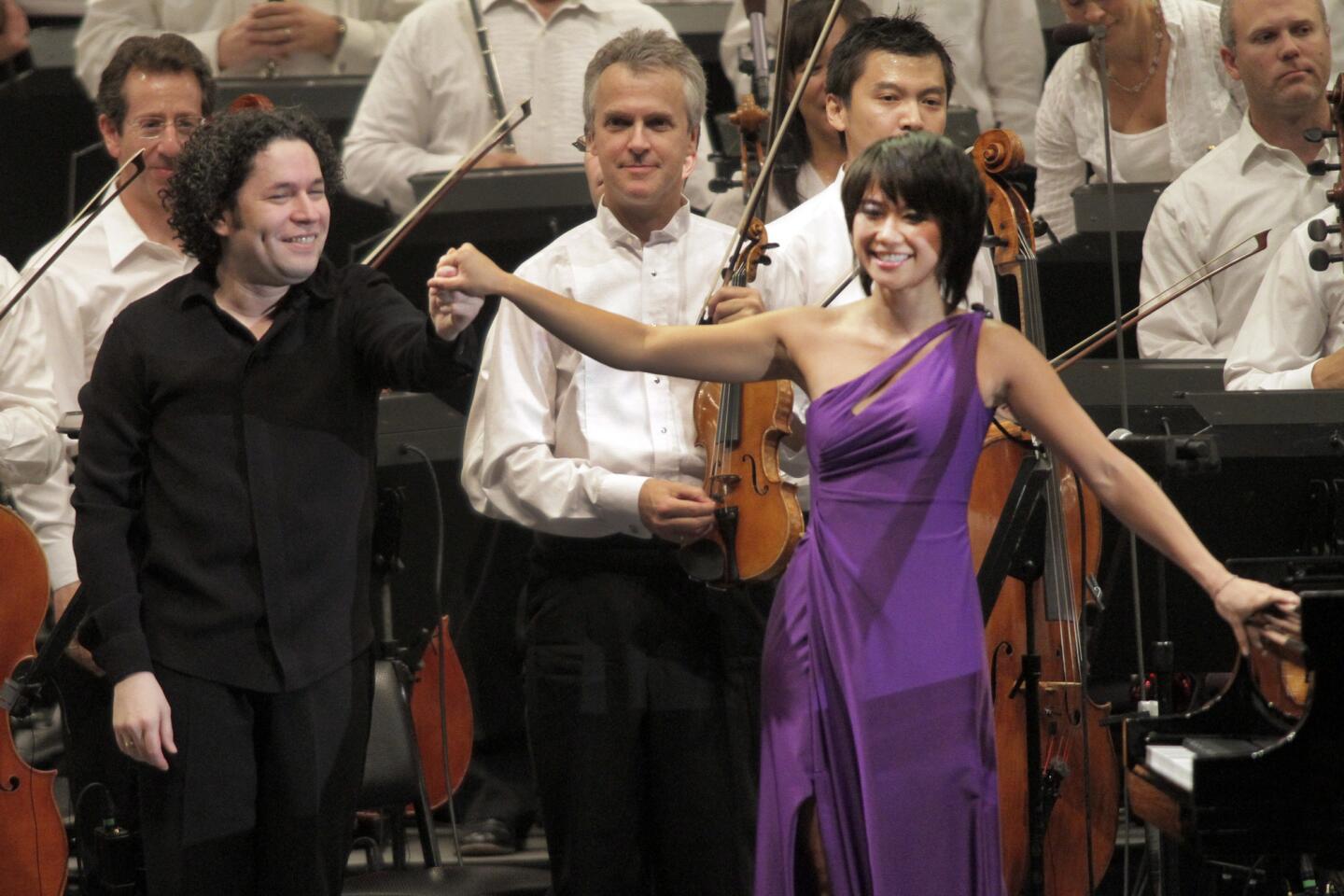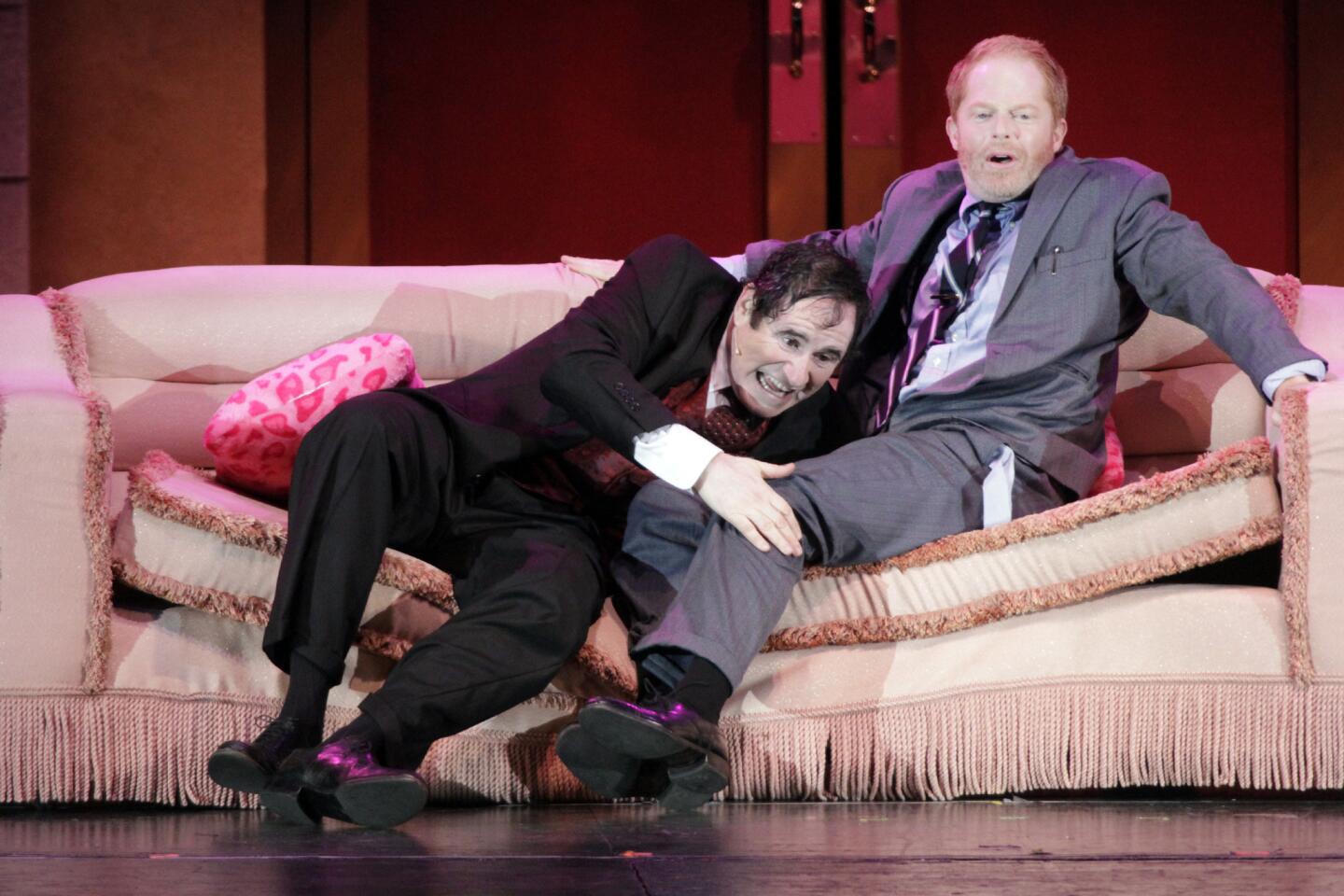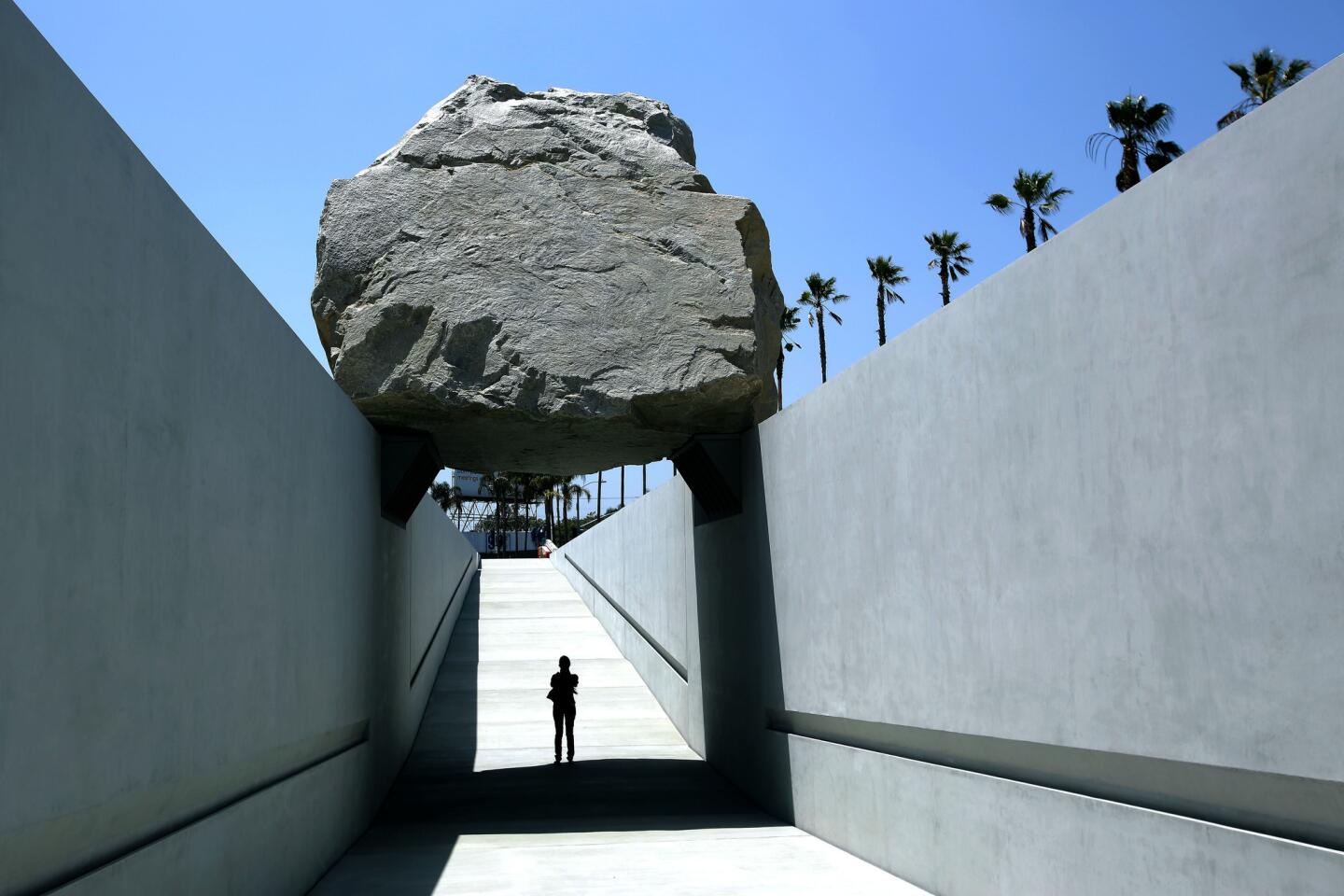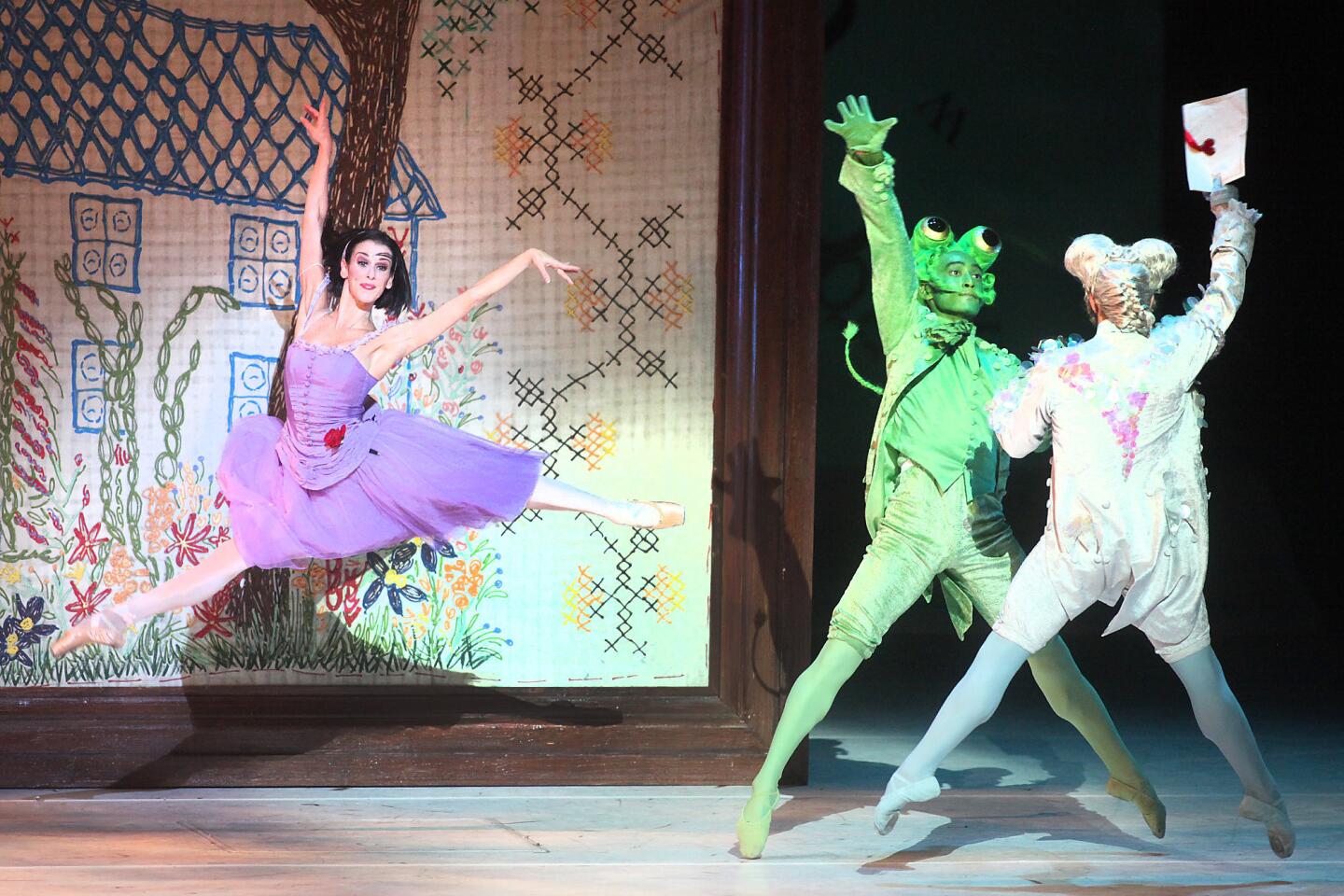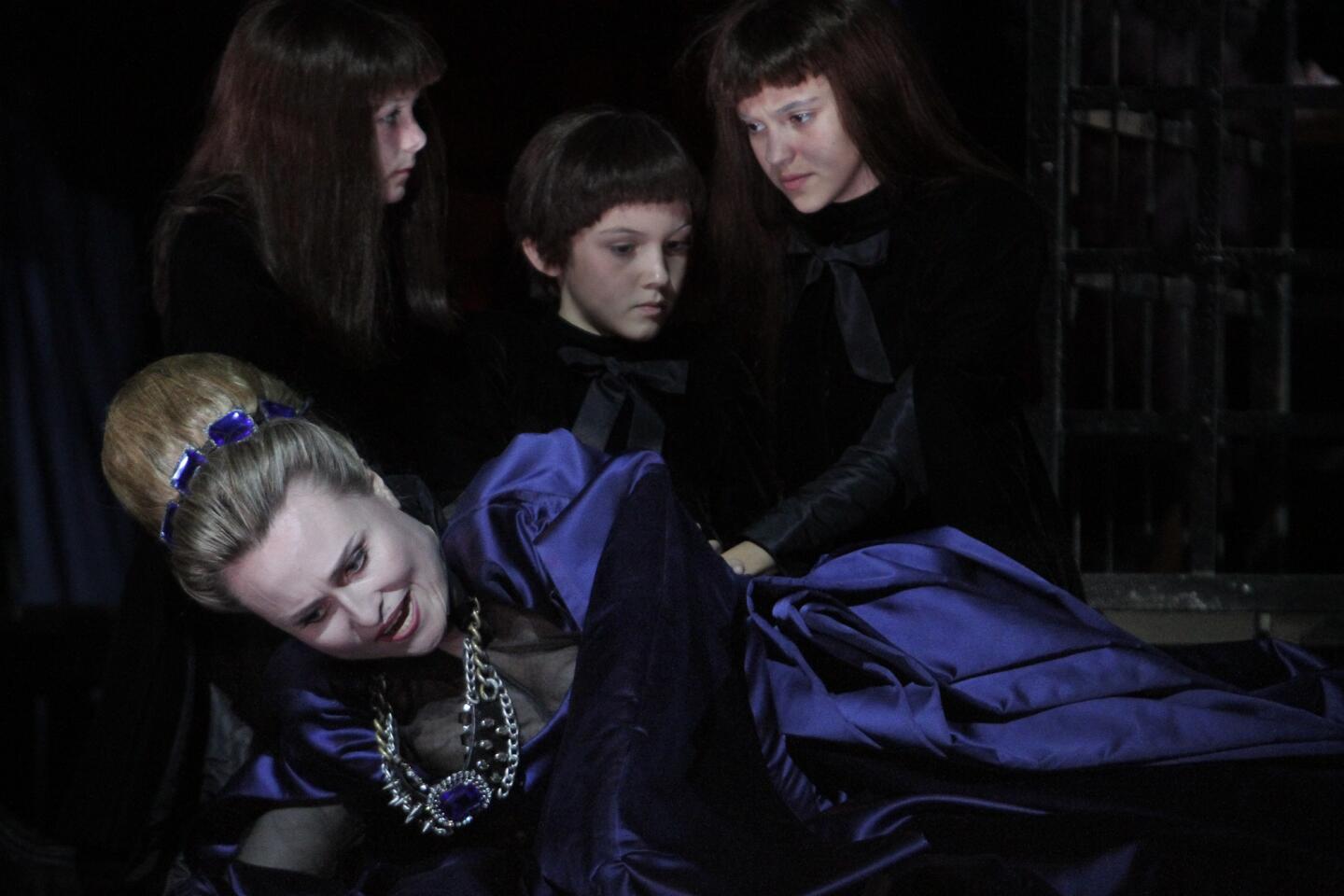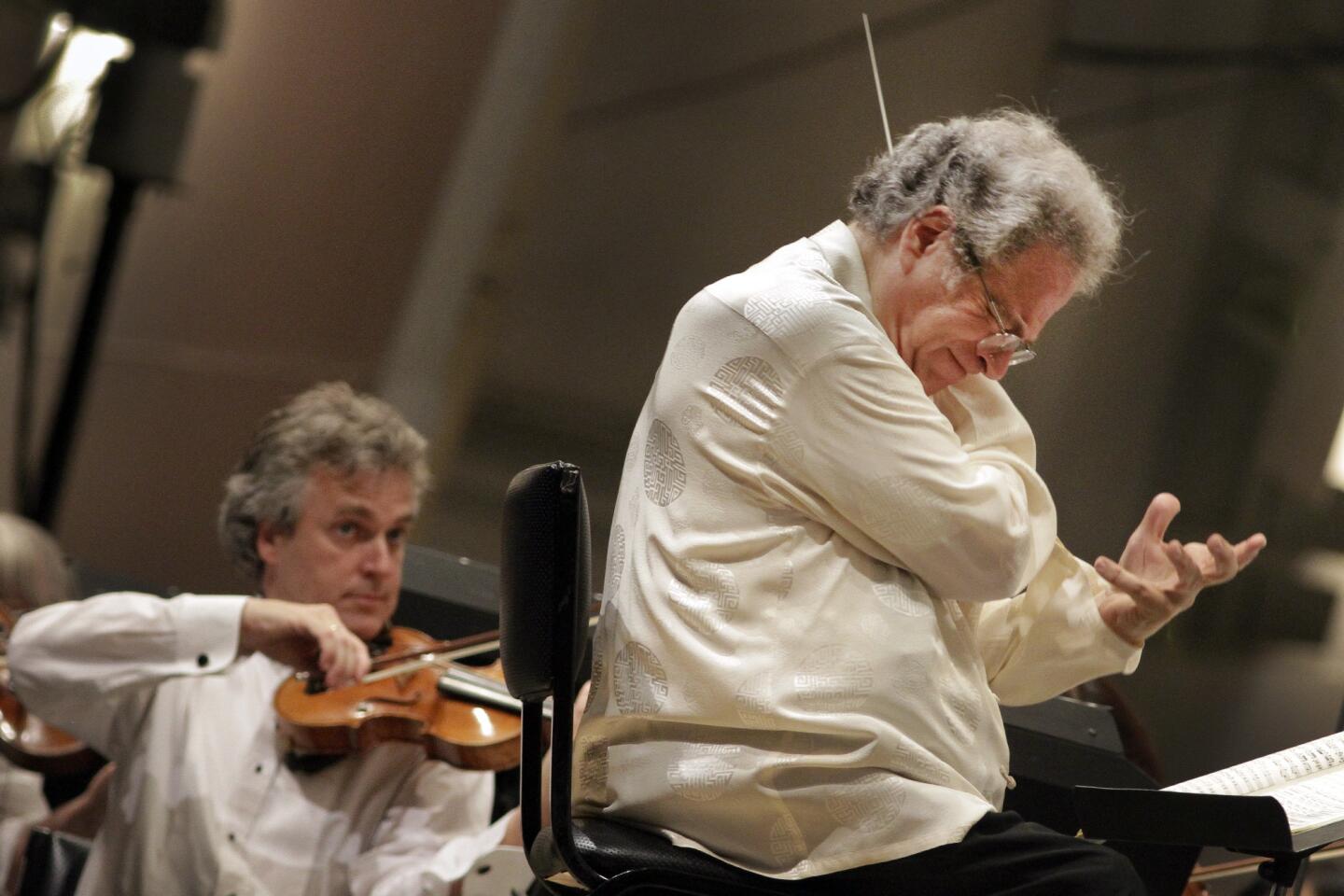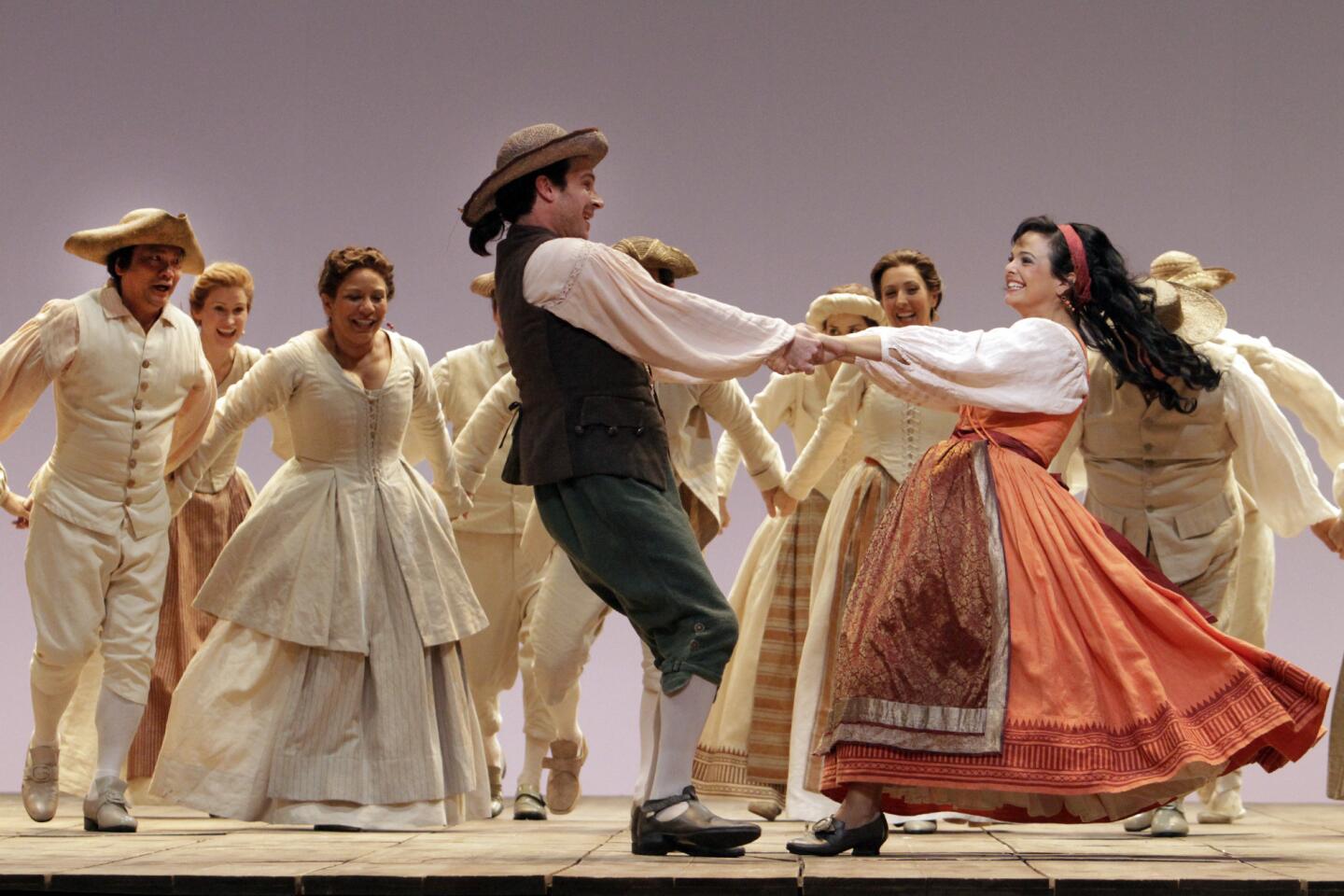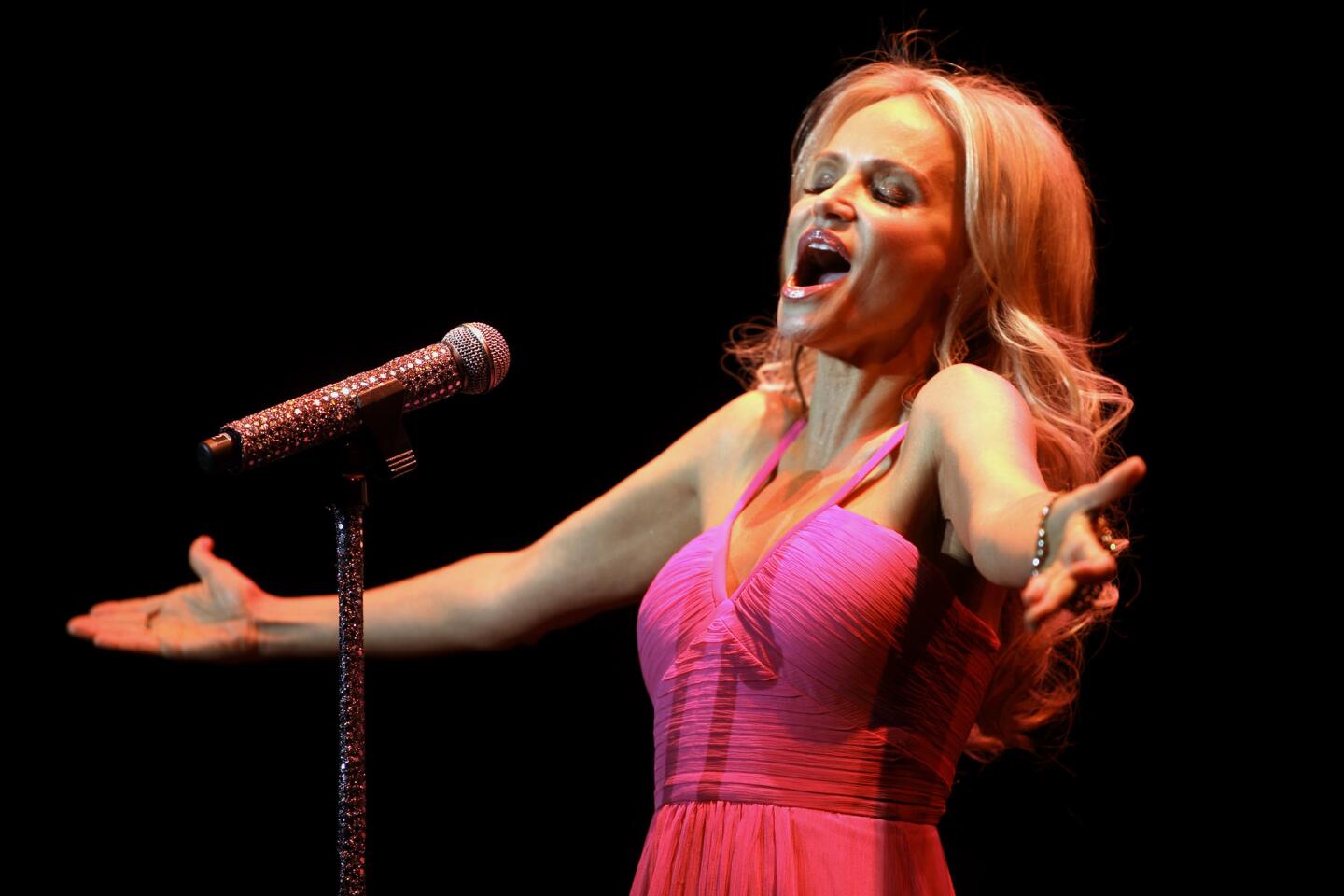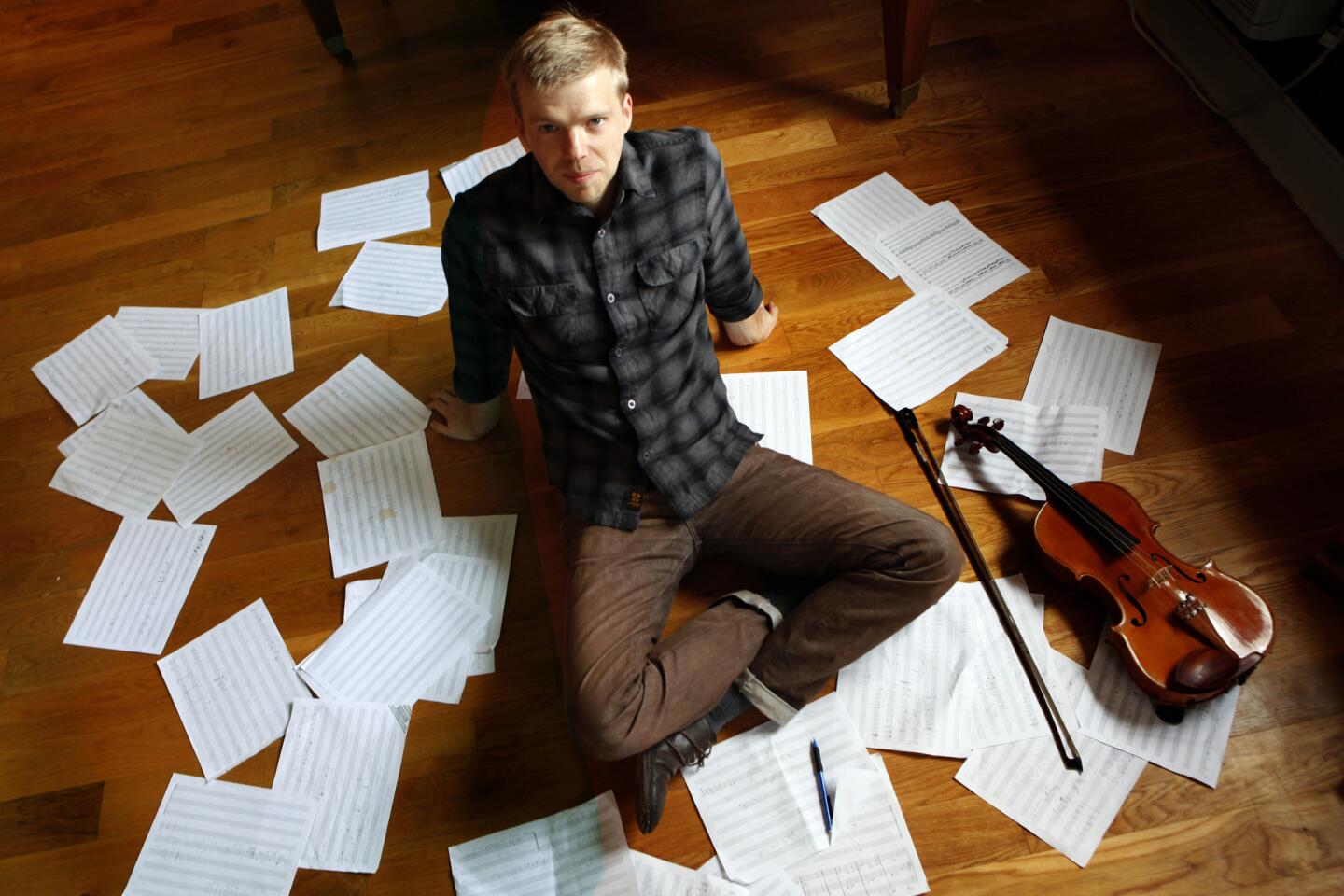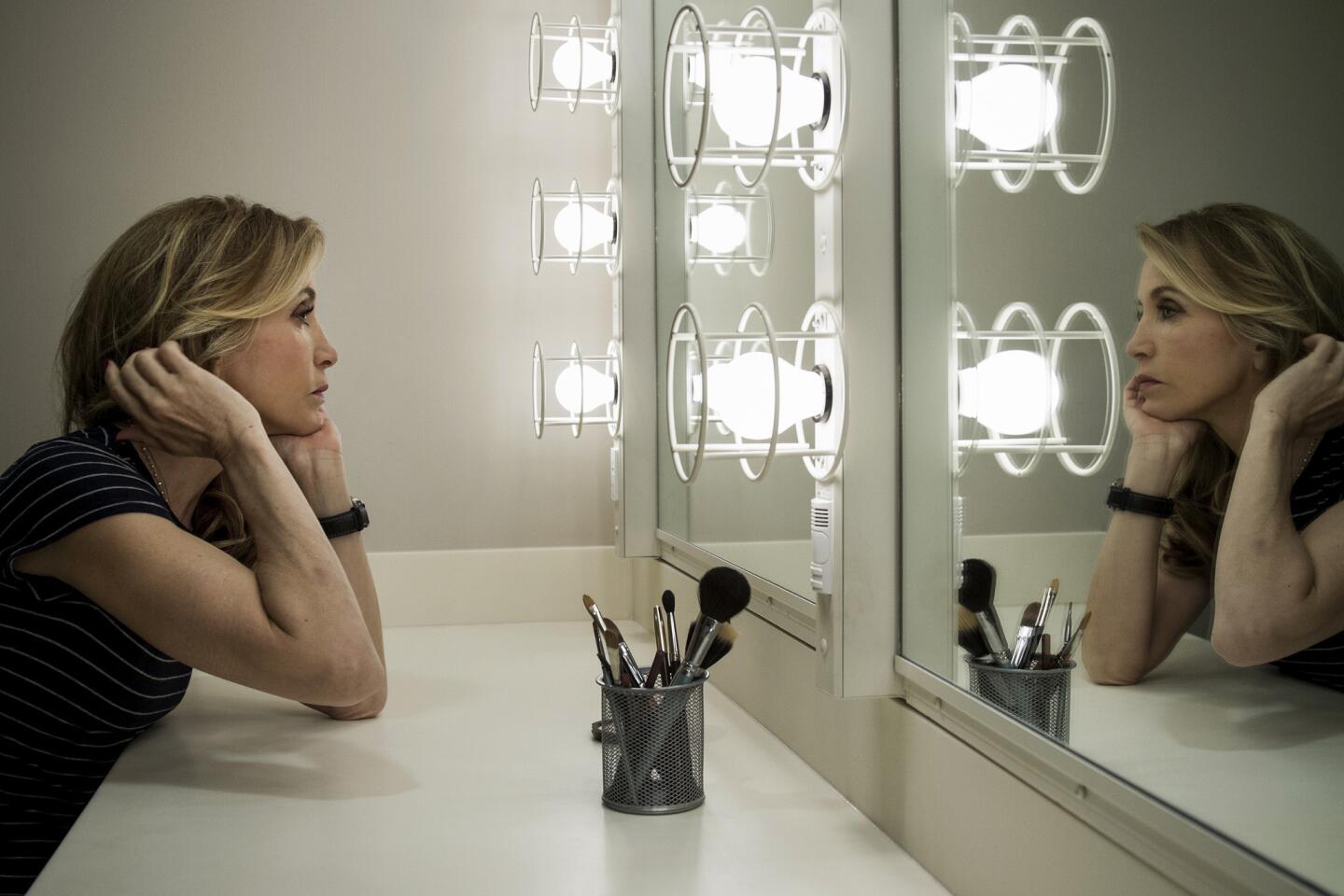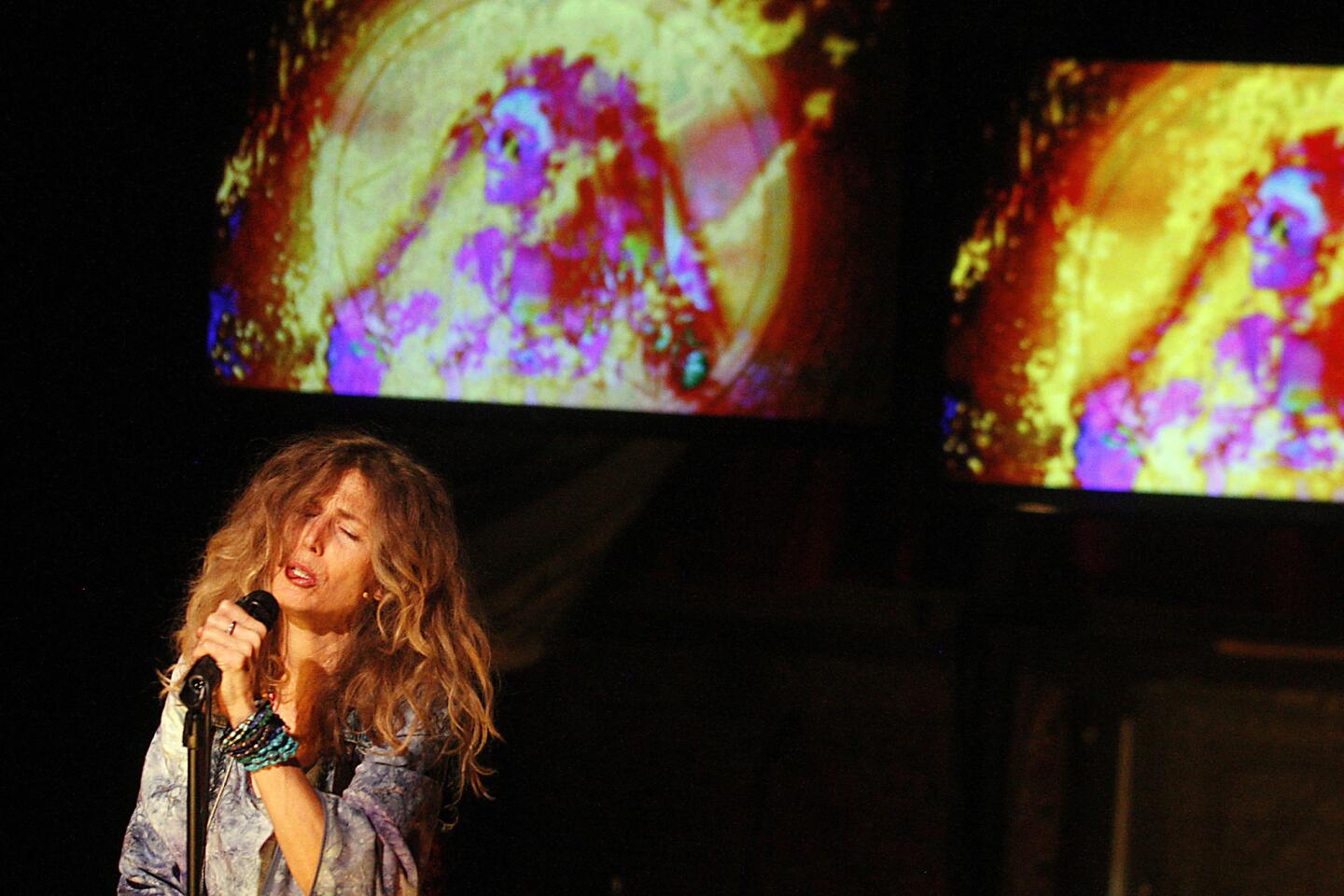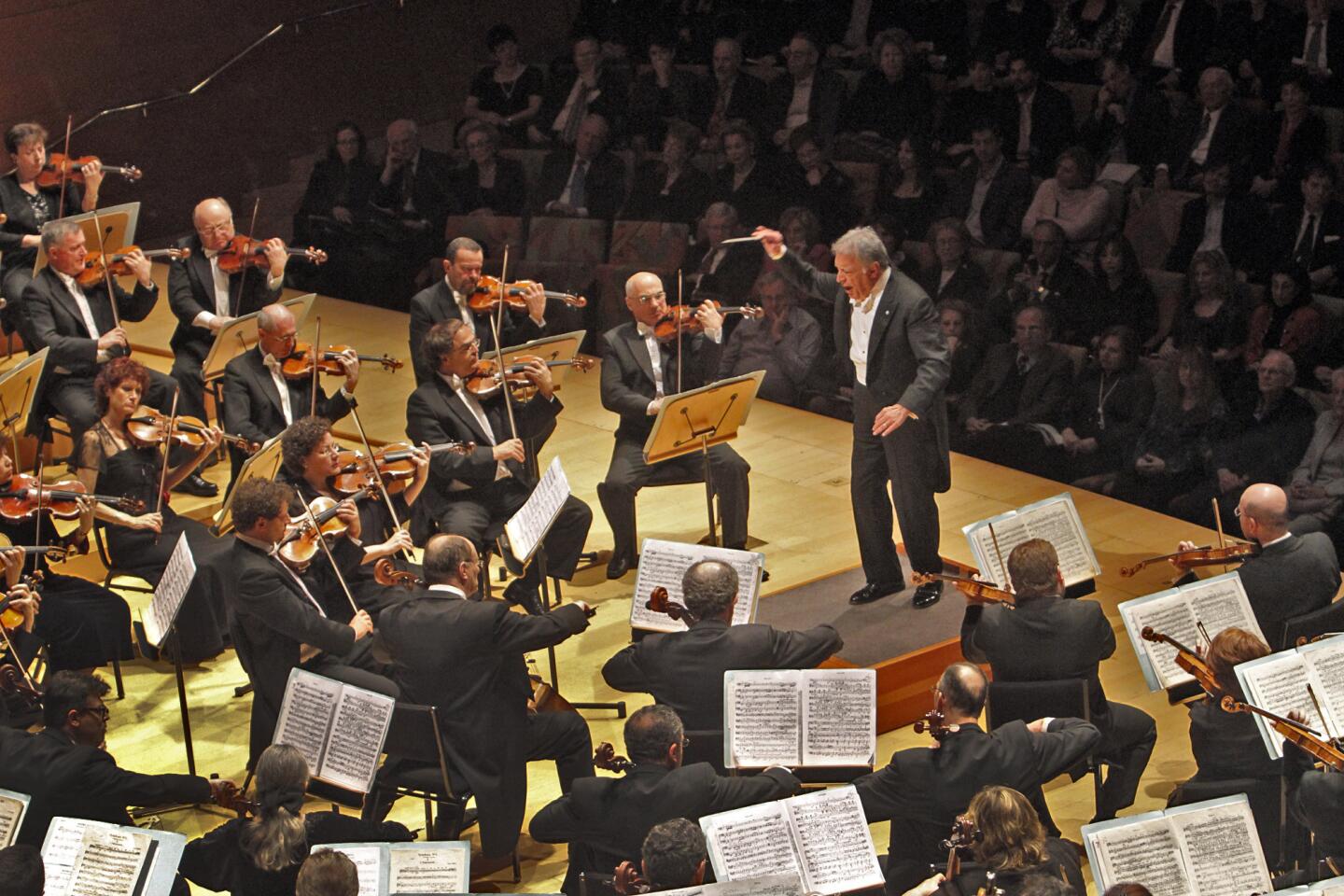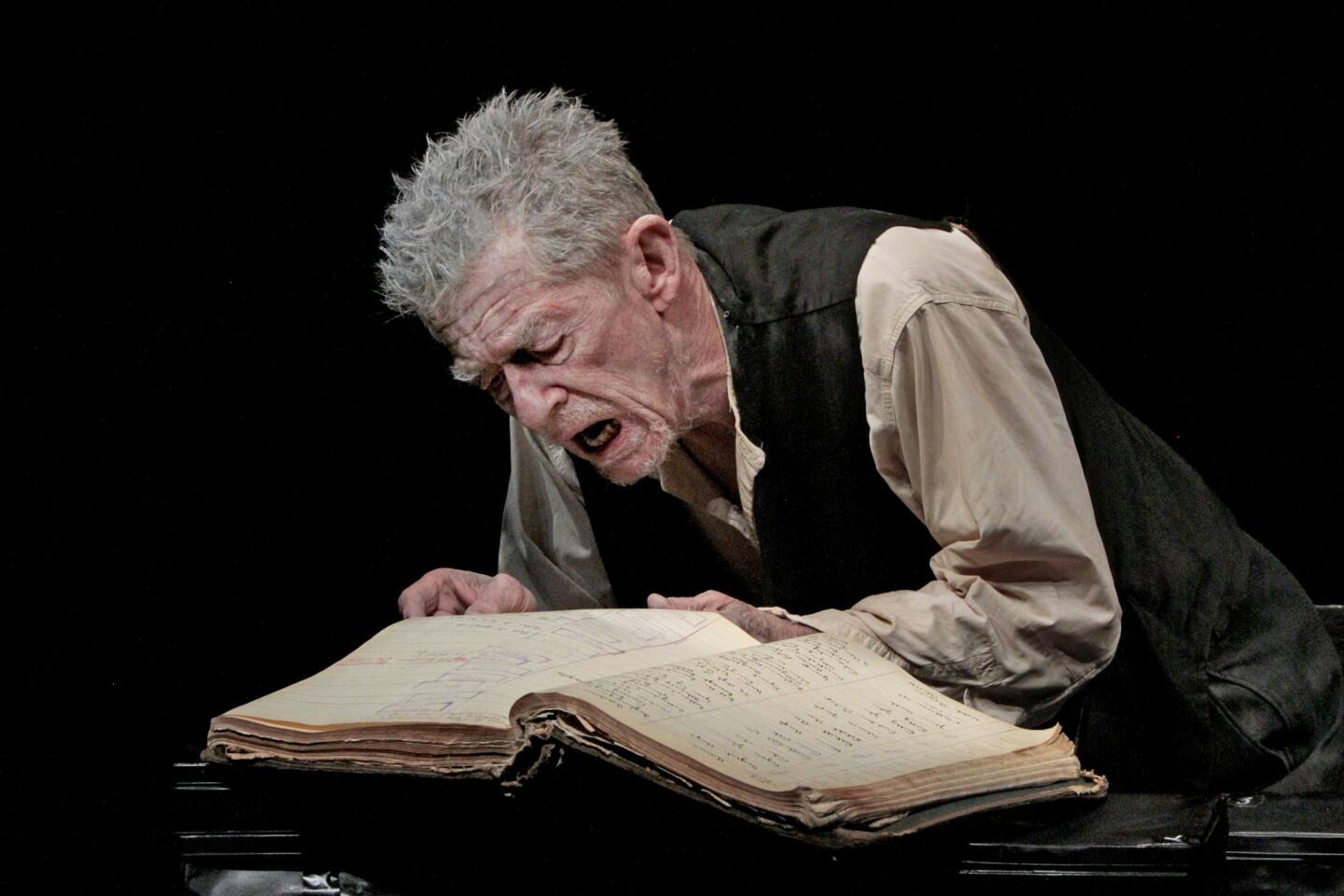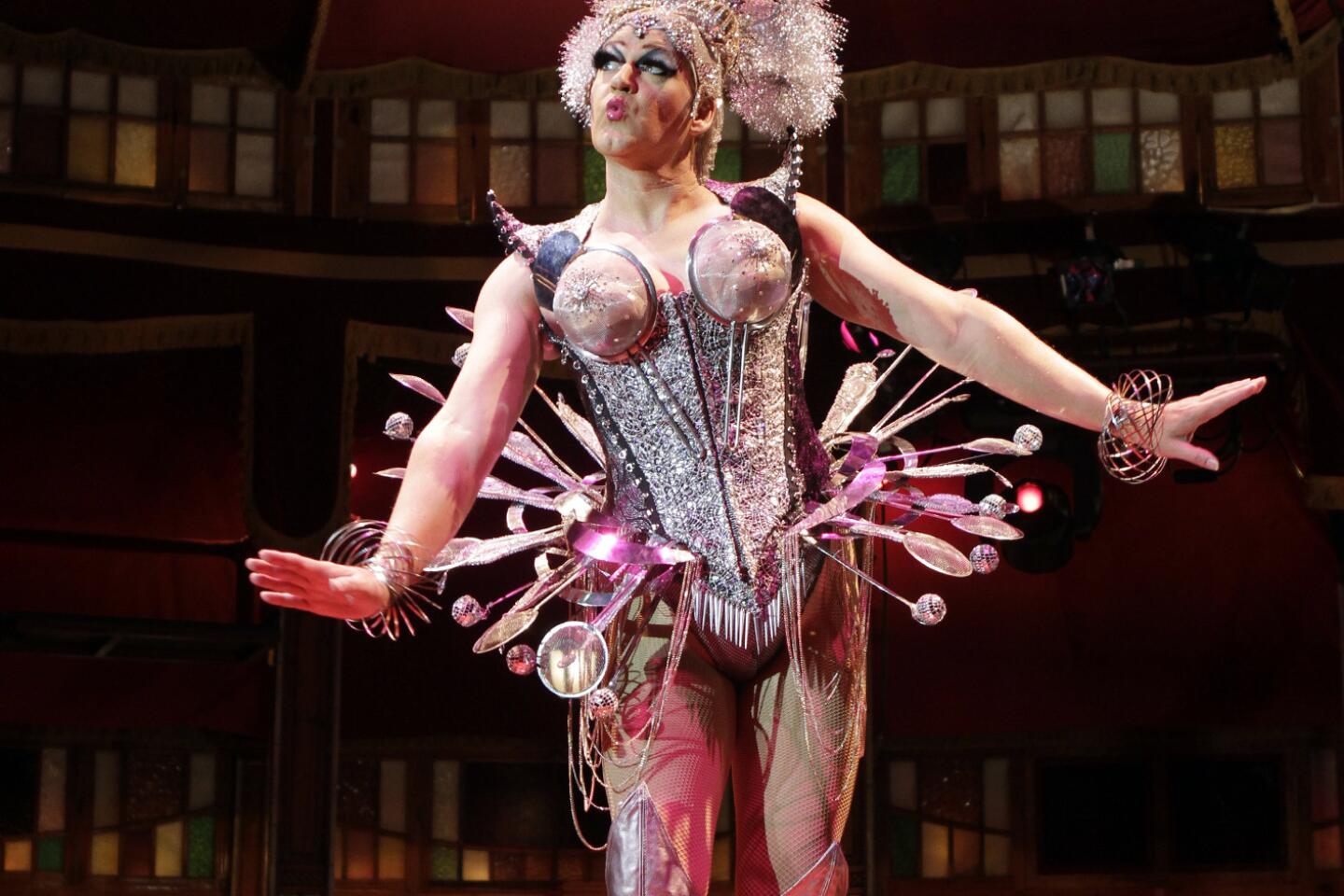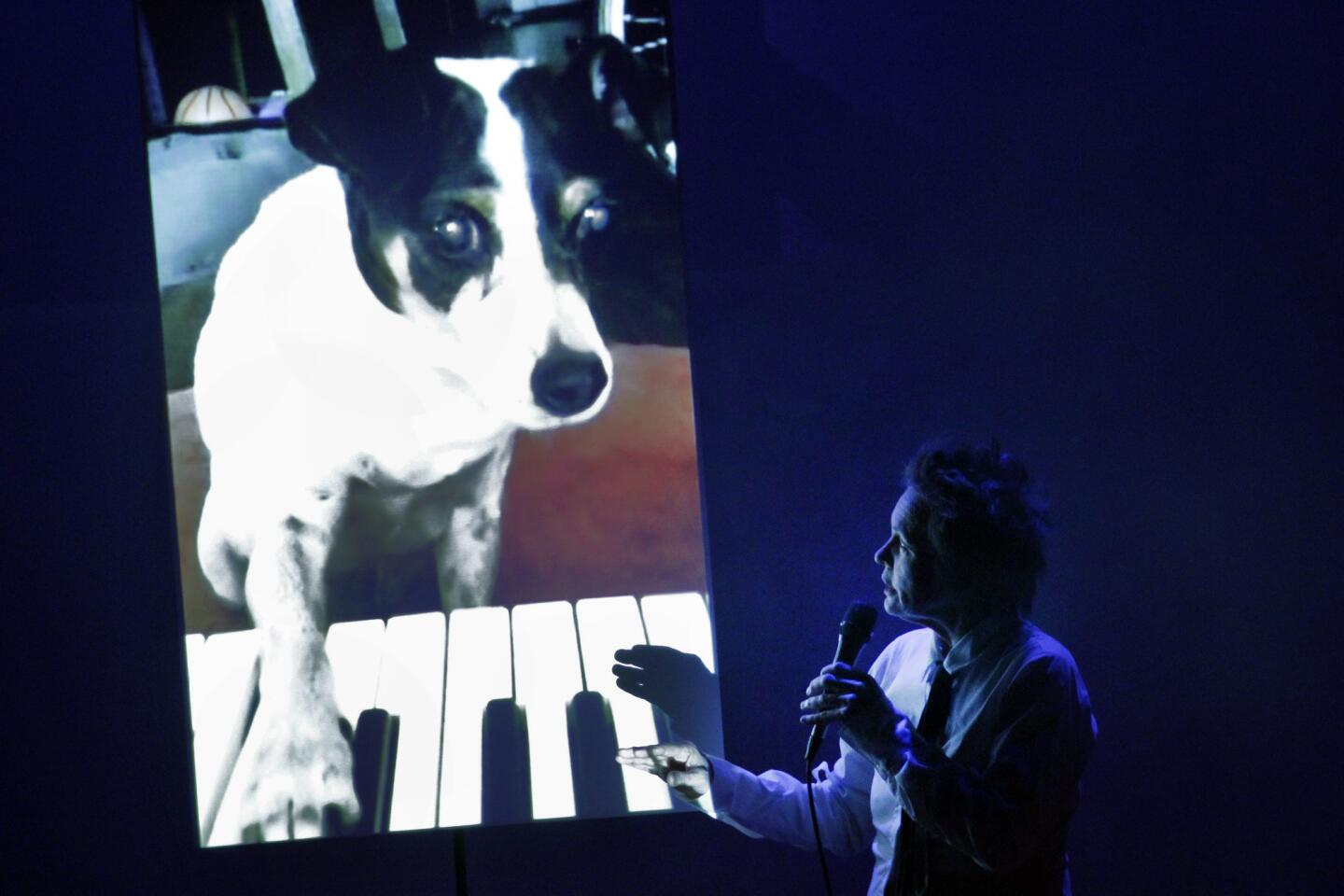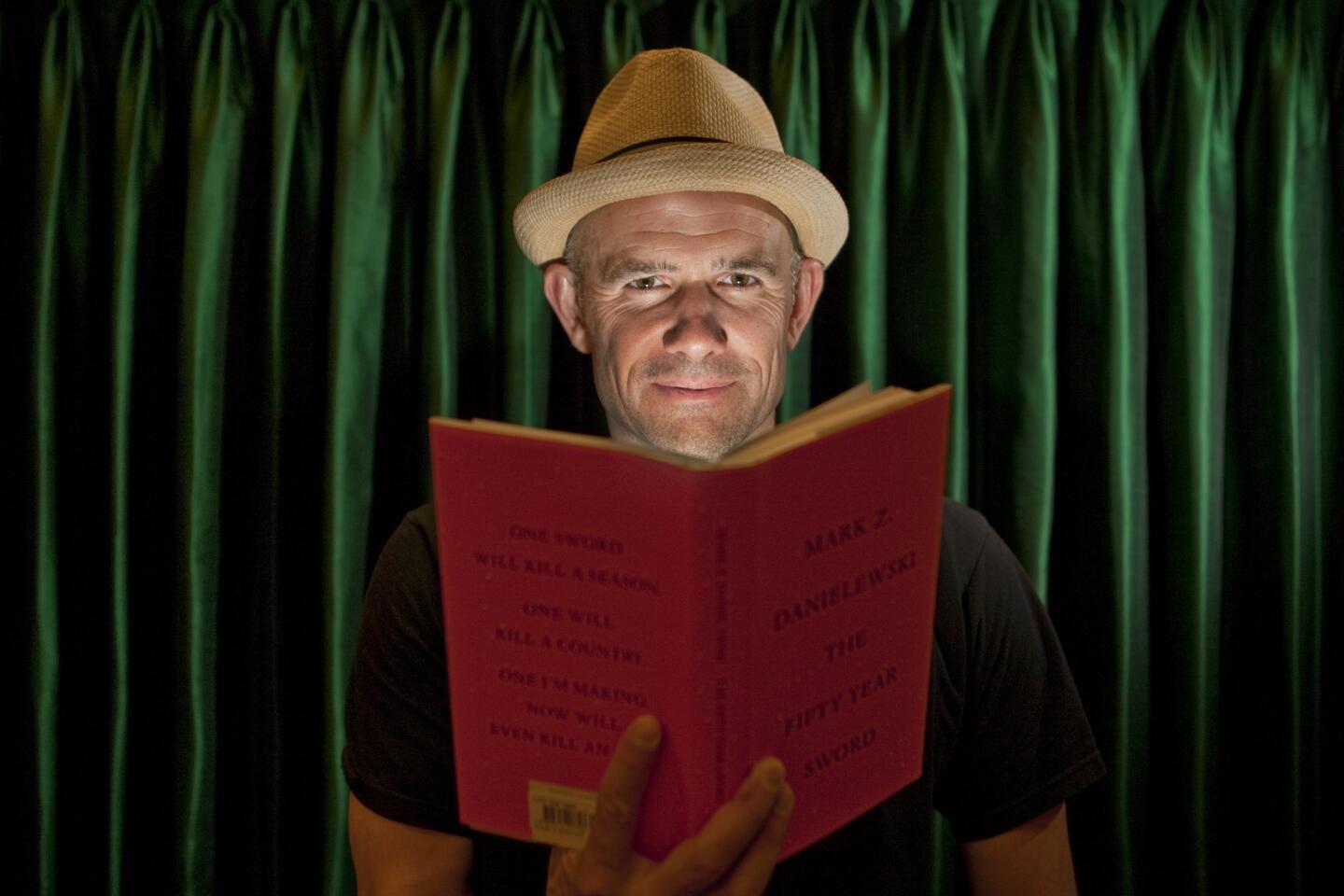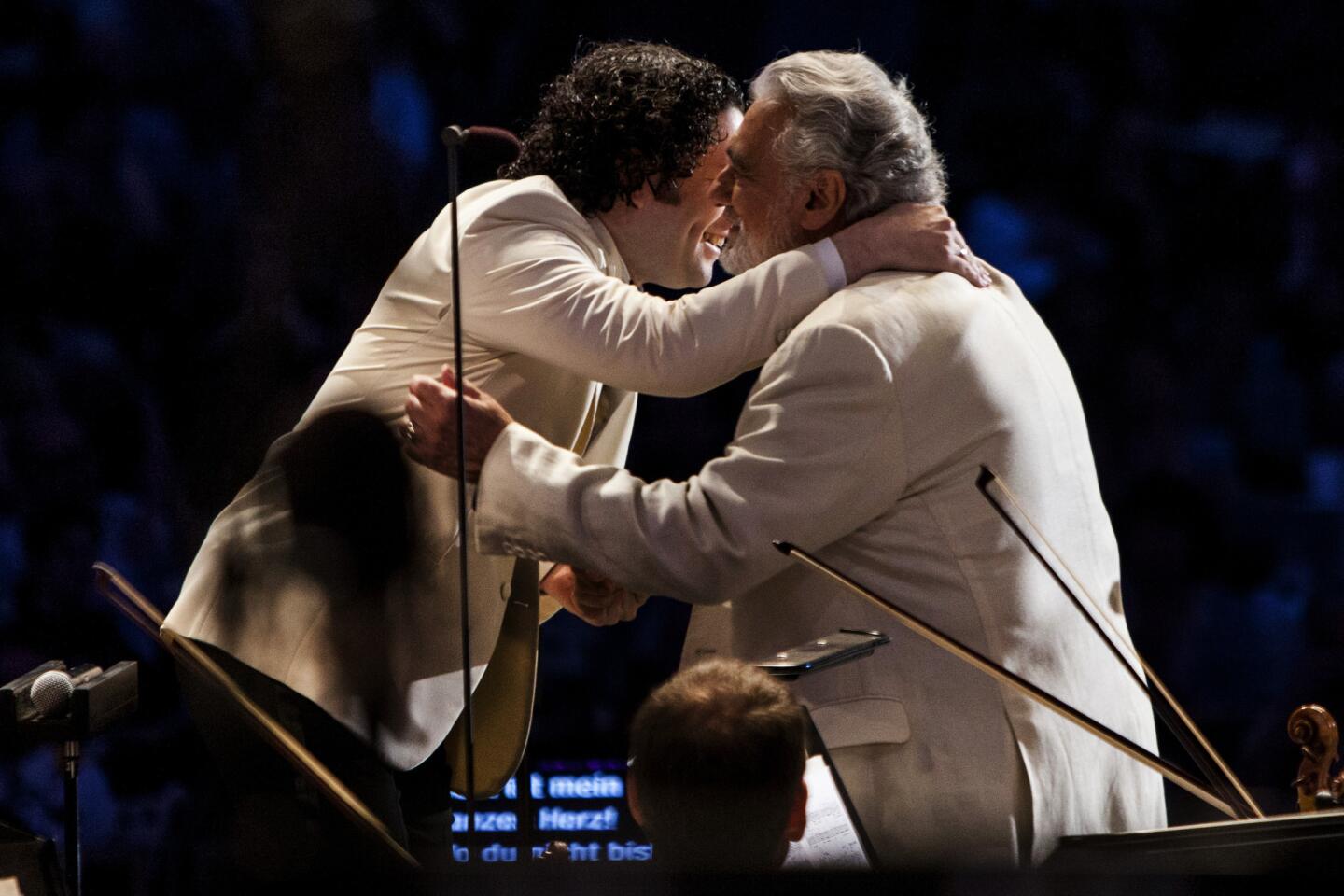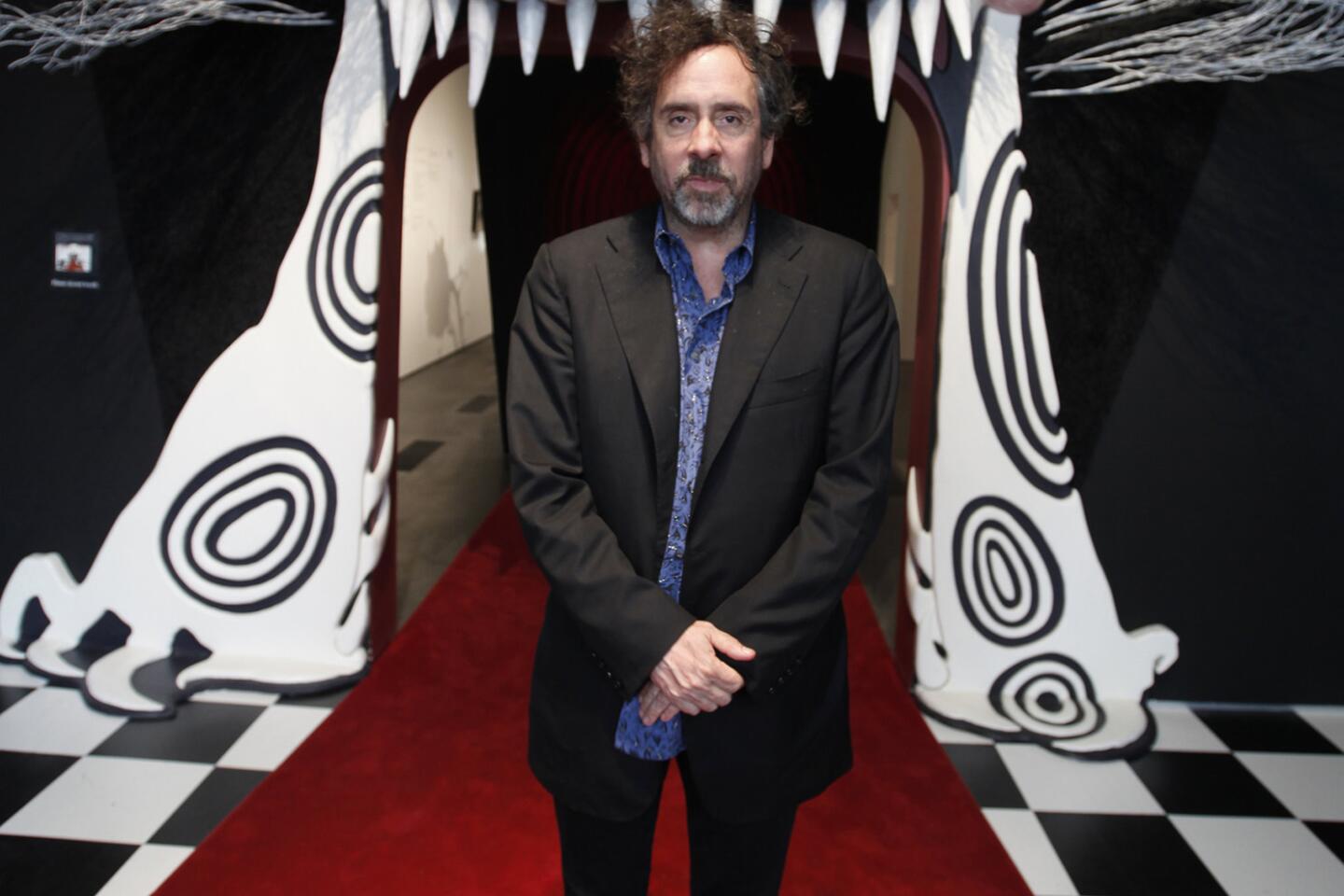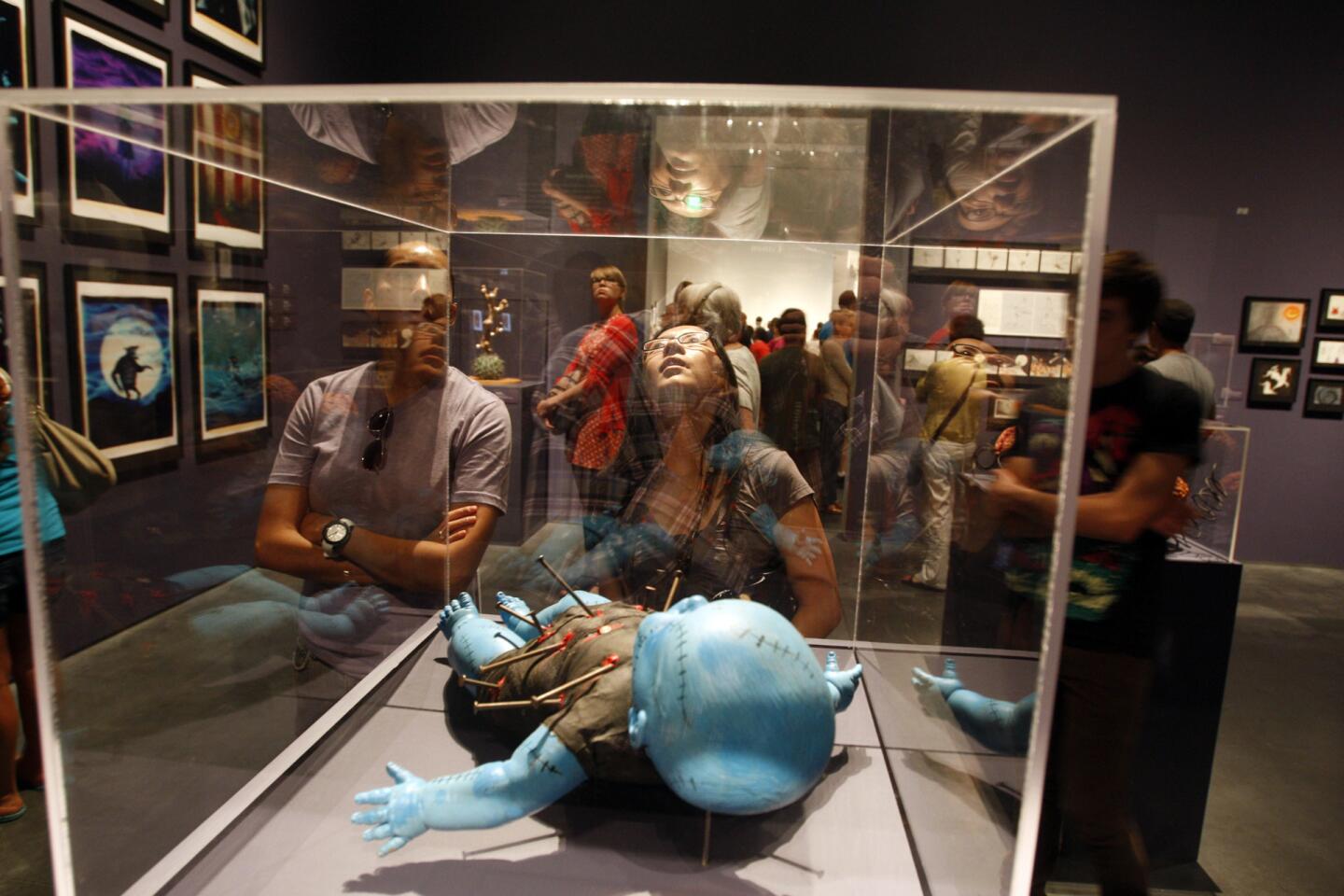Stewart Copeland finds synchronicity in writing operas
- Share via
Though it’s been 27 years since the Police disbanded, Stewart Copeland, its American drummer, remains best known for his nine years with the seminal British rock band. But that doesn’t mean he hasn’t been busy beyond the Police’s 2007 reunion tour. From the mid-1980s through the mid-2000s, Copeland was a prolific composer of movie and TV scores. More recently, he’s been writing operas and ballets.
On May 11, his fourth and latest opera, “The Tell-Tale Heart,” based on Edgar Allan Poe’s short story of the same name, receives its American premiere at Long Beach Opera, on a bill with another one-act opera. Copeland’s work, with a cast of six, was commissioned for a small performance space in London’s Royal Opera House, where it debuted two years ago.
“The thing that drew me to Poe is his language,” the silver-haired Copeland, 60, said in a February interview. He was sitting at his home studio in Brentwood, a large, high-ceilinged room, various percussion instruments flanking a central recording console and books filling shelves and ethnic art lining the walls.
PHOTOS: Arts and culture in pictures by The Times
“Poe’s work is deeply Americana, but he’s dark, so that’s anomalous,” he said. “I like that. It’s cool. There’s also the thumping part, by the way” — a sly reference not only to the unnerving sound of a beating heart in Poe’s story but also to Copeland’s lasting reputation as a great drummer.
The composer crafted the libretto himself, though he is modest about that achievement.
“Poe wrote very musically,” he said. “So as far as the libretto went, it was just a question of adding a few ‘ands’ or ‘buts’ and a bit of melisma. But there are certain things in the structure that bear my stamp, like having two protagonists — one telling, one doing. One is called Edgar; the other is Alan [an altered spelling of Poe’s middle name]. It’s tempting to see the story as an autobiographical reverie.”
The premiere opened to mixed critical reaction in London. Reviewing for the Independent, Edward Seckerson wrote that “Copeland shrewdly blurred the boundaries between speech and song,” adding that he “perpetuated the stentorian tone of melodrama [by] underscoring it with a febrile piano and percussion-led combo whose louche jazz inflections accentuated the sleaziness.”
Andreas Mitisek, Long Beach Opera’s artistic and general director, will conduct the double-bill — with Michael Gordon’s “Van Gogh” — which he is also directing and designing.
Mitisek had known of Copeland’s work generally, but not until a company patron and neighbor of the composer suggested to Mitisek that Long Beach present the opera did he take a closer look.
“It’s fascinating,” he said. “It’s a very small band, yet it’s really great what colors he creates from strings, piano and percussion. I really like the eeriness and, of course, the rhythmic drive. It’s half an hour from beginning to end, and it’s a thrill ride.”
Fans of the Police should not expect music reminiscent of that band — nor are there plans for Copeland to sit in during the work’s four performances through May 19. In fact, percussion doesn’t play an especially prominent role in his operas.
“Not at all,” he said. “In my film scores, I eventually went against rhythm. I was struggling against typecasting. I wanted legato strings — to show I could do it. The composer dude and the drummer dude are almost unrelated.
PHOTOS: Hollywood stars on stage
“It’s two different missions, and they bring different sides of one’s nature to the fore. When you get to be my age, you realize you can struggle against human nature or use judo on such factors and make them work for you.”
Despite his zest for the form now — he’s considering new operas based on books by Anthony Burgess and Philip K. Dick — Copeland wasn’t always an opera fan. He dates his transformation to seeing David Hockney’s production of Wagner’s “Tristan und Isolde” at Los Angeles Opera in 1987.
“At first, I hated opera,” he said. “What’s with the vocal Olympics? I couldn’t discern a melody through all that shrieking. But that changed with Hockney’s production. Though I’m not quite the Wagnerian I once was, I still really enjoy it.”
“The Tell-Tale Heart” is actually the second Poe story Copeland has adapted. The first, “The Cask of Amontillado,” which he calls “a two-hander for baritone and tenor,” had its premiere in Barbados in 1993. Like the new opera, the earlier one is short (only 25 minutes). Abruptly, a thought strikes the composer: “One more and I’ll have a whole evening,” he said. “And the third one should be obscure.”
Pressed as to whether a trilogy of short Poe operas is likely, Copeland hedged, changing the subject to his own, hitherto unpublished, short stories. “They’re in the cookie jar,” he said. “I have a lot of things in the cookie jar.”
-----------------------------------
‘Tell-Tale Heart’ and ‘Van Gogh’
Where: Long Beach Opera, Expo Arts Center, 4321 Atlantic Ave., Long Beach
When: 8 p.m. Saturdsay, 2 p.m. and 8 p.m. May 18, 7 p.m. May 19
Tickets: $29-$160.
Information: (562) 432-5934 or https://www.longbeachopera.org
More to Read
The biggest entertainment stories
Get our big stories about Hollywood, film, television, music, arts, culture and more right in your inbox as soon as they publish.
You may occasionally receive promotional content from the Los Angeles Times.
